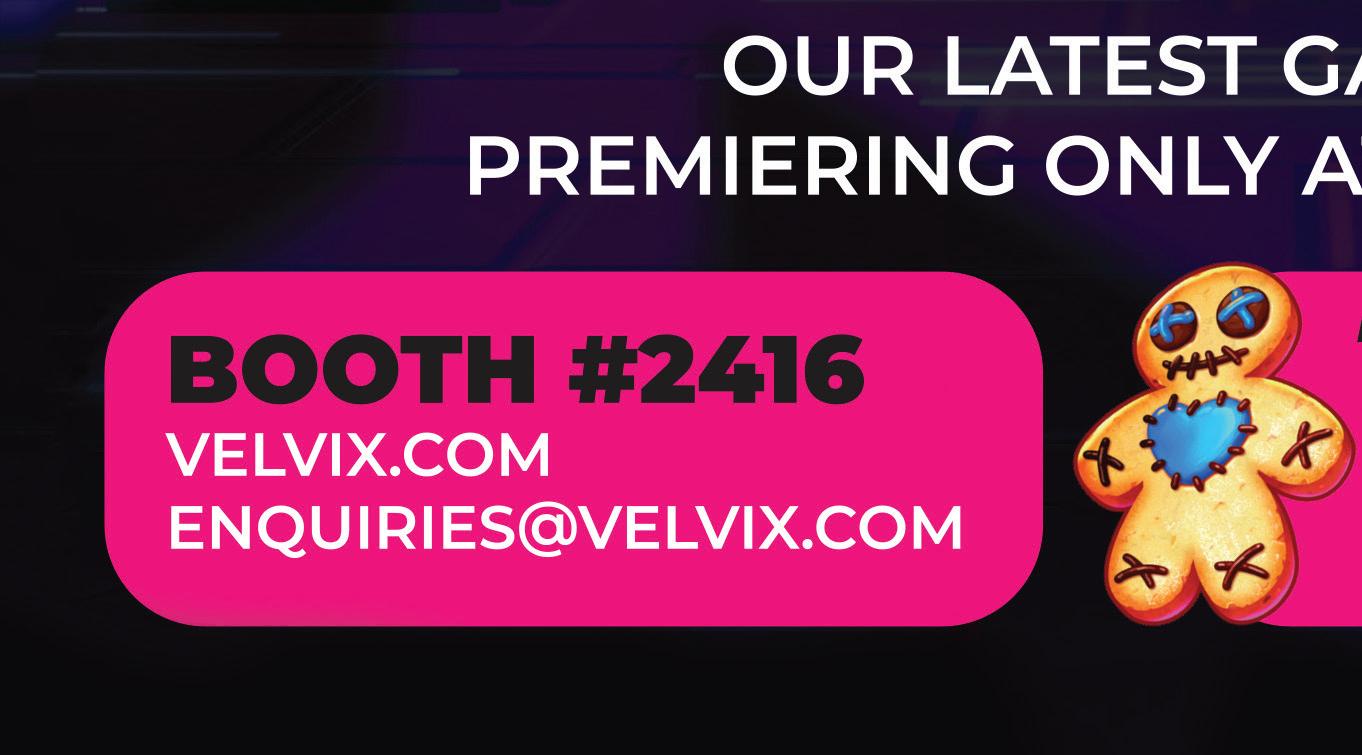THE CEO SPECIAL








We speak with (top row, from left to right), Lynn Valbuena, Michael Daly, E. Sequoyah Simermeyer, (bottom row) Jonathan Jossel, Mary Cheeks and Jason Guyot.

Dedicated coverage of gaming in the Americas Sep/Oct 2023





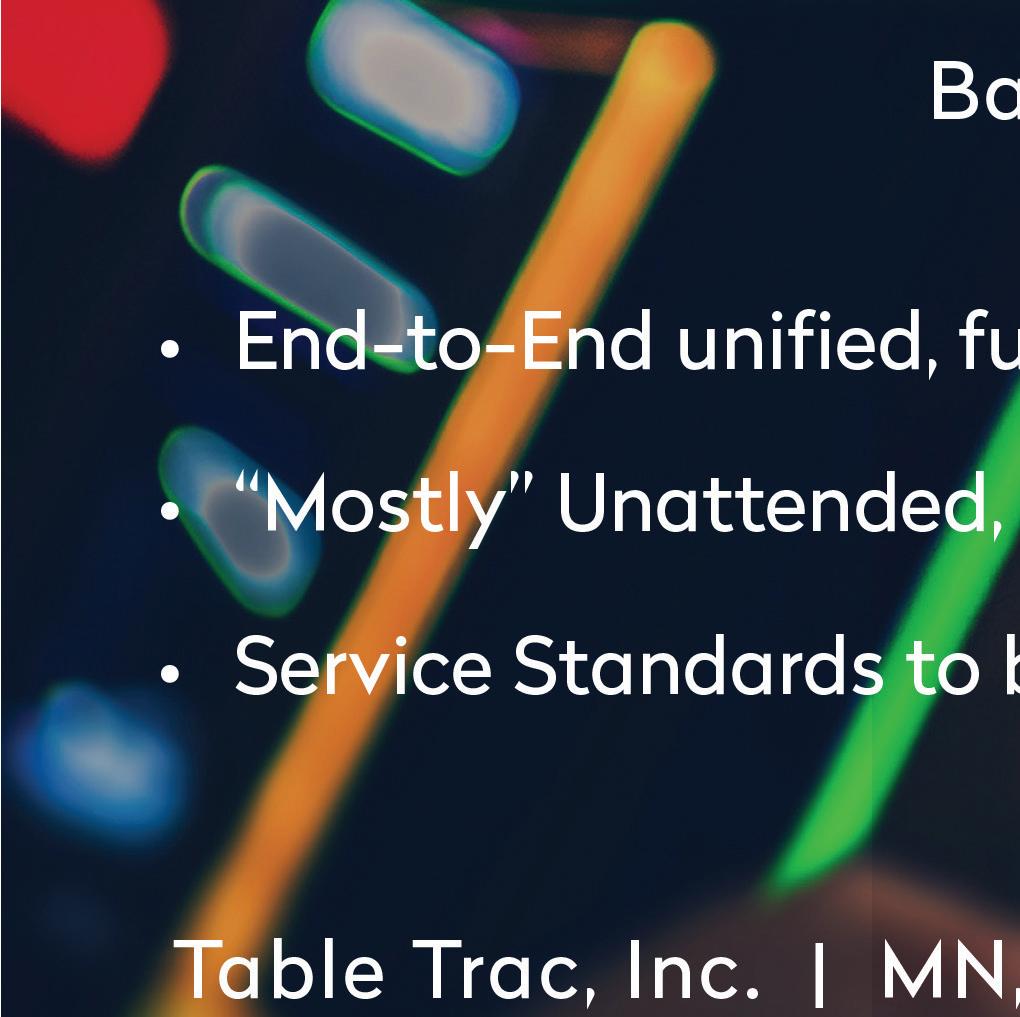
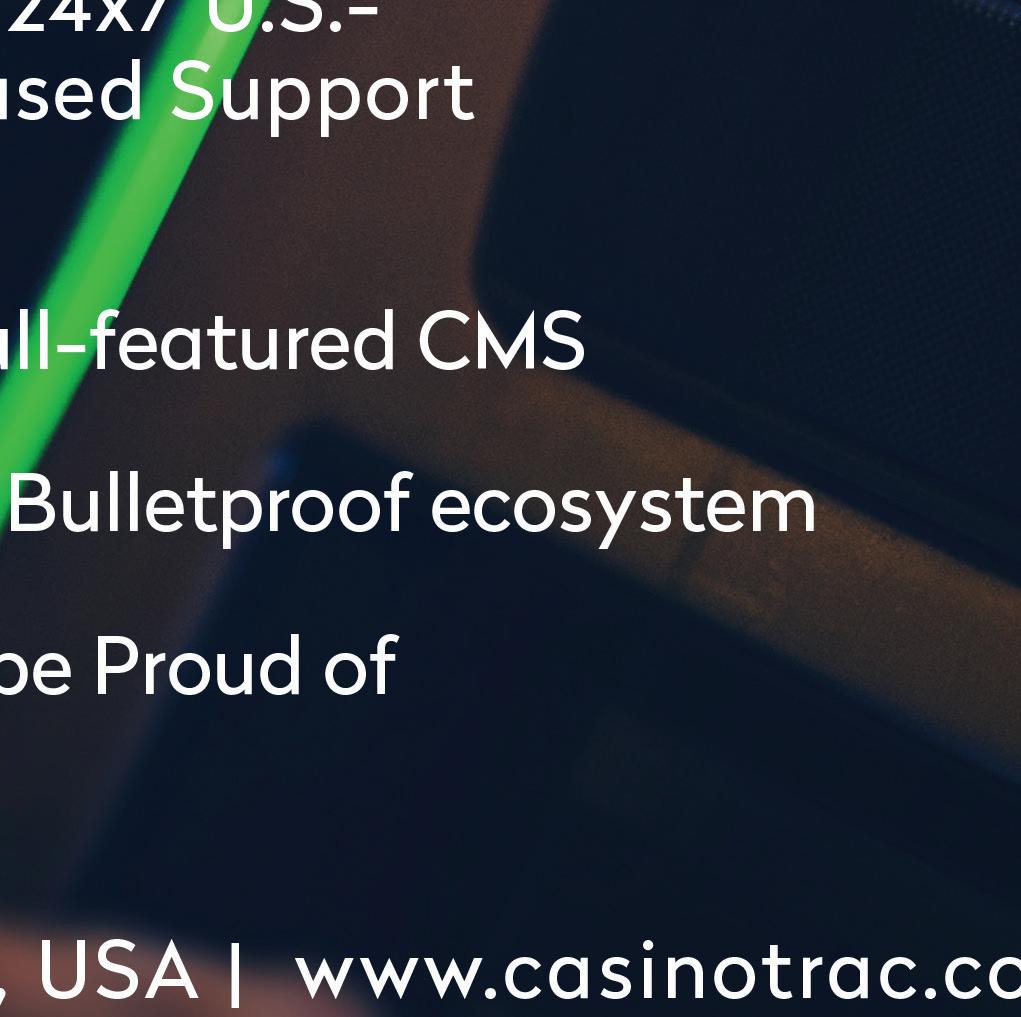





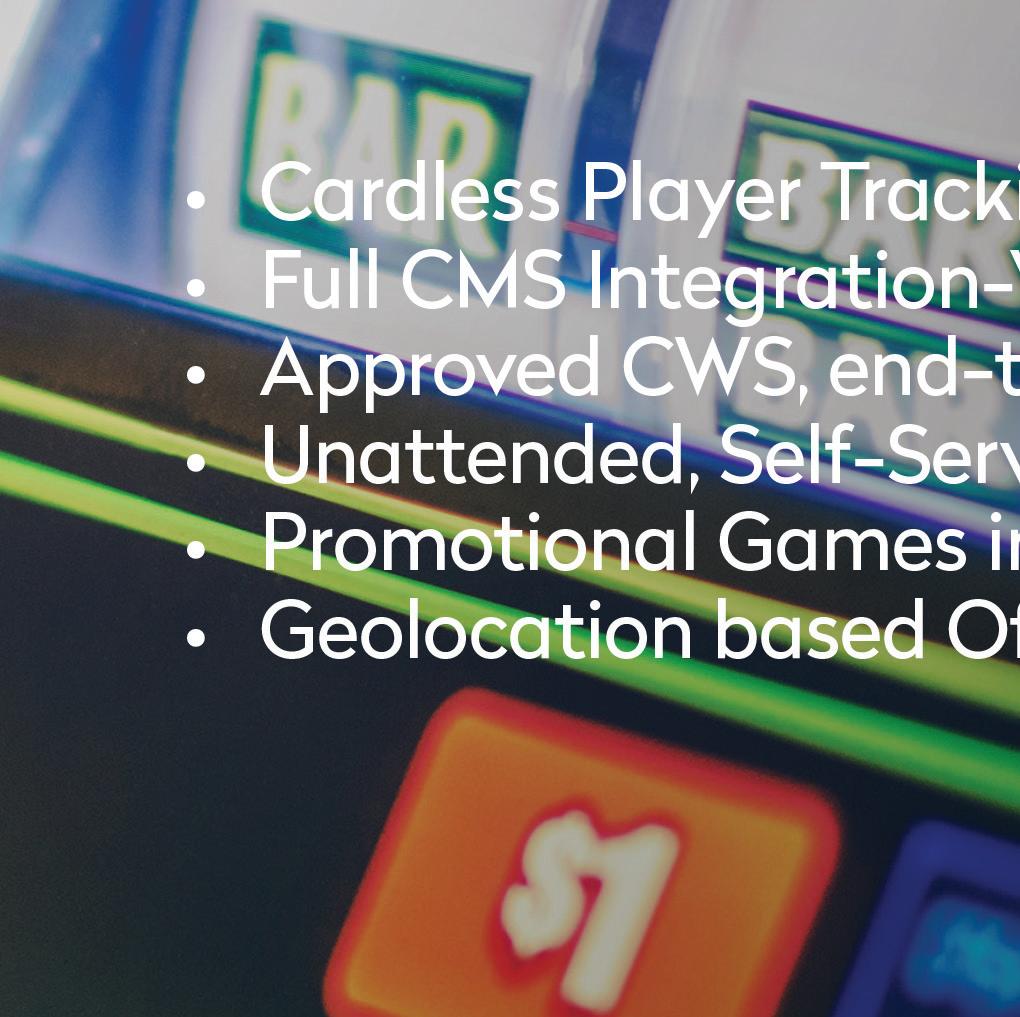



















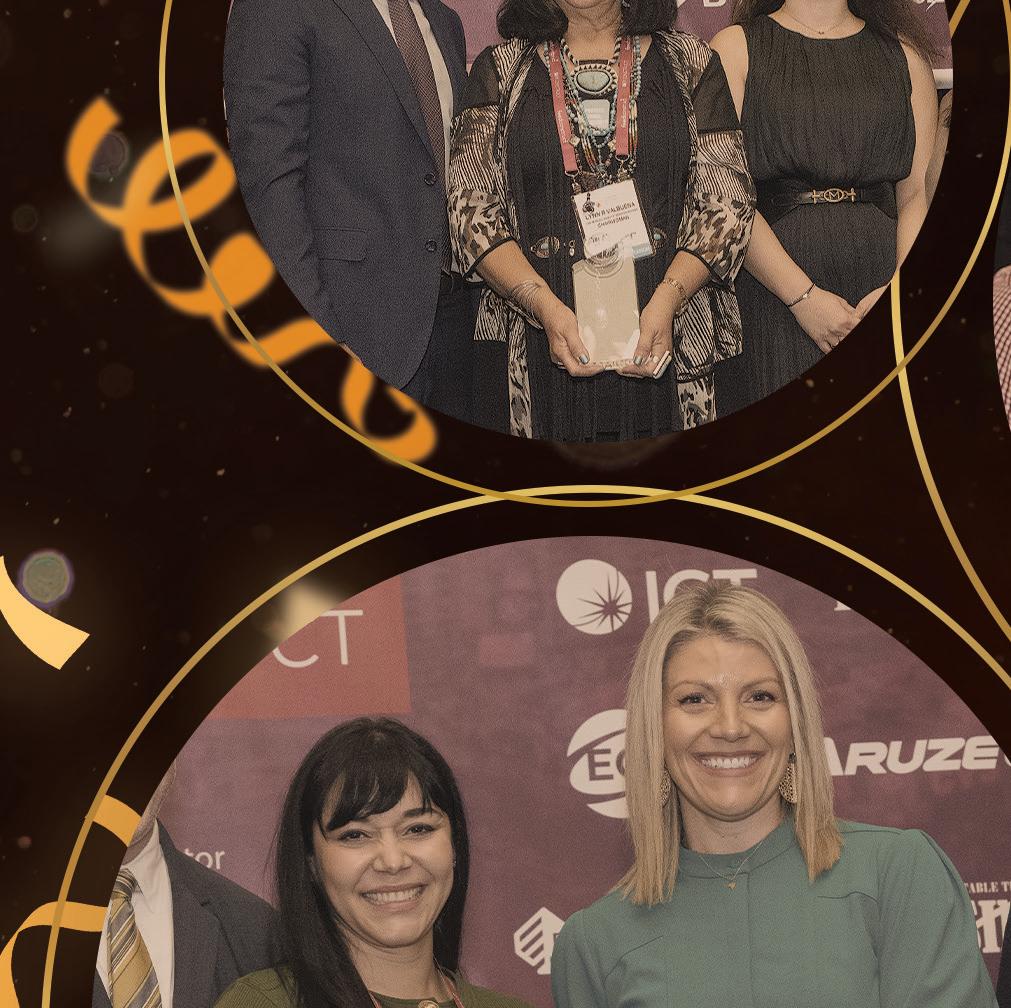
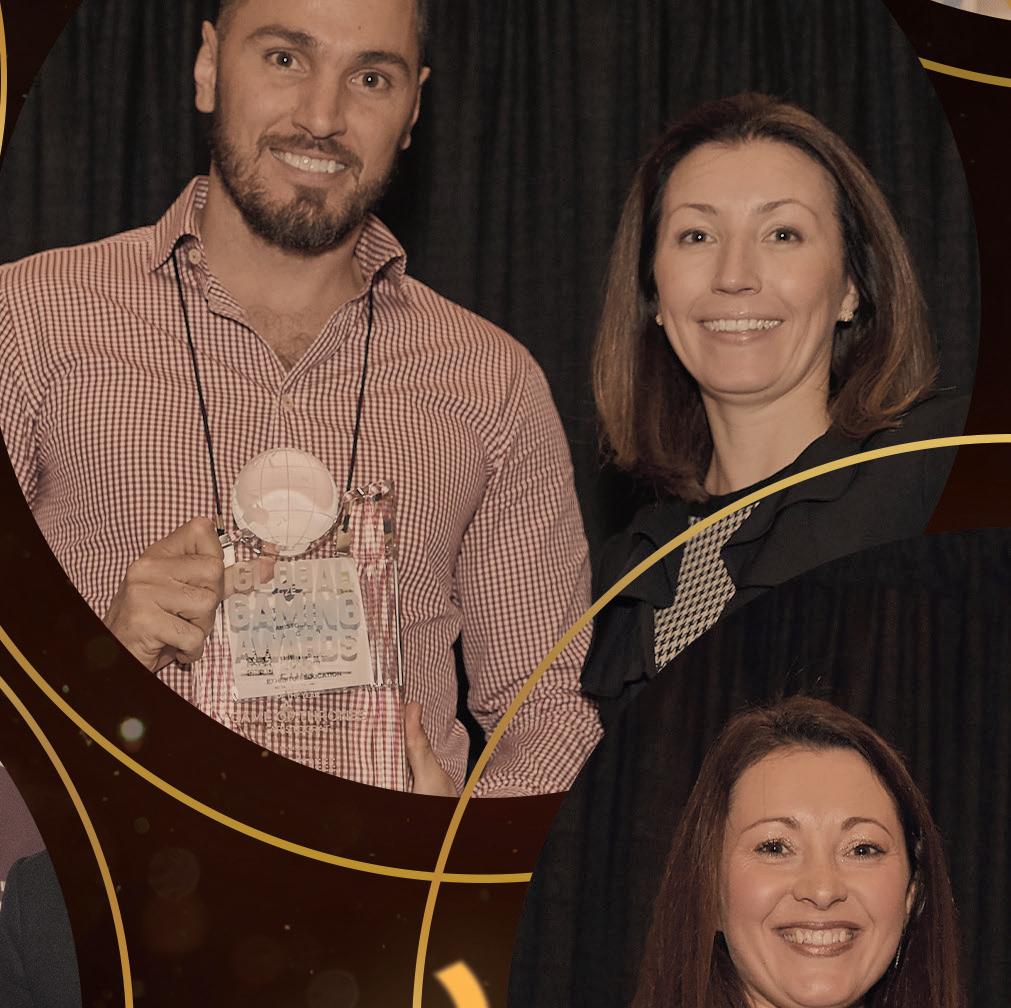
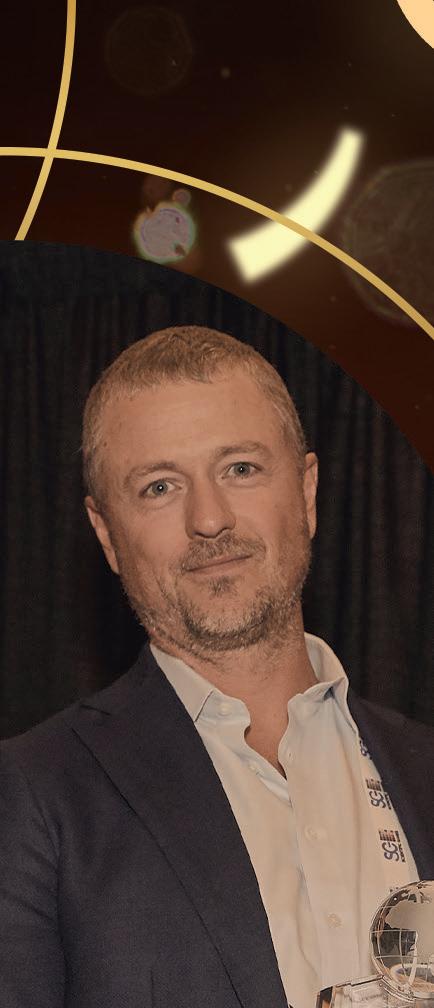

COO, EDITOR IN CHIEF
Julian Perry
STAFF WRITERS
Stephanie Feeley
Stephanie.Feeley@gamingamerica.com
Lucy Wynne, Laura Mack, Brian Joseph
LEAD DESIGNER
Olesya Adamska DESIGNER
Christian Quiling
DESIGN ASSISTANTS
Svetlana Stoyanova, Gabriela Baleva
MARKETING & EVENTS MANAGER
Mariya Savova
PRODUCTION CONTROLLER
Oleksandra Myronova
IT MANAGER
Tom Powling
COMMERCIAL DIRECTOR
Deepak Malkani Deepak@playerspublishing.com
Tel: +44 (0)20 7729 6279
SENIOR U.S. BUSINESS DEVELOPMENT MANAGER
Aaron Harvey
Aaron.Harvey@playerspublishing.com

Tel: +1 702 425 7818
ADVERTISING SALES EXECUTIVES
Ariel Greenberg
Ariel.Greenberg@playerspublishing.com

Tel: +1 702 833 9581
Tracy Robbison
Tracy.Robbison@playerspublishing.com
Tel: +1 702 485 3377
SENIOR ACCOUNT MANAGER
Michael Juqula
Michael.Juqula@gamblinginsider.com
Tel: +44 (0)20 3487 0498
ACCOUNT MANAGERS
William Aderele
William.Aderele@gamblinginsider.com
Tel: +44 (0)20 7739 2062
Irina Litvinova
Irina.Litvinova@gamblinginsider.com
Tel: +44 (0)207 613 5863
Serena Kwong
Serena.Kwong@gamblinginsider.com
Tel: +44 (0)20 3435 5628
ACCOUNT EXECUTIVE
Samuel Sud
Samuel.Sud@gamblingInsider.com
Tel: +44 (0)207 729 0643
CREDIT MANAGER
Rachel Voit
WITH THANKS TO:
John Connelly, Tom Ra erty, Jonathan Jossel, Michael Daly, Mary Cheeks, Jason Guyot, E. Sequoyah Simermeyer, Lynn Valbuena, Jacob Claesson, Mike Dreitzer, Christopher Justice, Oliver Lovat, Dr Kasra Ghaharian, Enrico Drago, Shivan Patel, Omer Sattar, Mark Larson, Chad Hoehne, Fiona Leung, Dan Schrementi, Steve Walther, Gerard Crosby, Laura Olson-Reyes, Aristocrat Leisure, Novomatic Americas, Eclipse Gaming & Ditronics. Gaming America
EDITOR’S LETTER
It is that time of the year again! October; NFL season; fall. But for gaming specifically, that means the Global Gaming Awards, G2E Las Vegas and our Gaming America CEO Special.
It is our great honor to interview some of the most influential figures within gaming as part of this annual feature – and this year we have broadened our leader scope to include Presidents and Chairs, equally notable and senior C-Level positions.
There is heavy Tribal representation, while we cover the land-based, digital, regulatory and affiliate sectors, celebrating the wide scope of our industry.
The full list of the six interviewees that feature on our cover and later in this magazine comprises: Jonathan Jossel, Plaza Hotel & Casino CEO, Michael Daly, Catena Media CEO, Mary Cheeks, President & General Manager of Jamul Casino, Jason Guyot, President & CEO of Foxwoods Resort Casino, E. Sequoyah Simermeyer, Chairman, National Indian Gaming Commission and Lynn Valbuena, Chairwoman of the San Manuel Band of Mission Indians.
Throughout our six interviews, it has been fascinating to learn so much about both our featured executives’ leadership styles and their personal lives. Daly was an officer in the US Navy for eight years; Guyot is himself a member of the Mashantucket Pequot Tribe that runs Foxwoods; Valbuena used to work in the police force. And those are just a few of the examples we explore, as we aim to create in-depth and meaningful profiles of the life and careers of those at the very top of our sector.
There is a shared love of animals, with more than one of the CEO's pets featuring! There are also recurring themes that are consistent across different interviewees –particularly the family connection shared by our Tribal leaders. We hear what it’s like to run a 9 million square-foot property in Connecticut, and what it’s like to run a 1,000-room property in Downtown Las Vegas.
Ultimately, there is a ‘people’ aspect to every one of our CEO’s journeys, whether they came from HR, finance, operations or even the military. We invite you to find out more about each and every one of them, and we hope – and believe – you will be richer for the experience.

and published by Players Publishing Ltd All material is strictly copyrighted and all rights reserved. Reproduction without permission is forbidden. Every care is taken in compiling the contents of Gaming America but we assume no responsibility for the e ects arising therefrom. The views expressed are not necessarily those of the publisher.
magazine ISSN 2632-766X Produced
CHECK OUT GAMINGAMERICA.COM FOR THE BEST IN BREAKING NEWS
JULIAN PERRY, COO, Editor-in-Chief









10 Global Gaming Awards

10
14

EXECUTIVE OF THE YEAR SHORTLIST
The prestigious Global Gaming Awards nominees.
A LIMITED RULING WITH WIDESPREAD IMPLICATIONS
Dennis Ehling and Gregory Bailey of Blank Rome explore the technicalities in the recent ruling that gives the Seminole Tribe an exclusive opportunity to provide online sports betting in Florida.
16
OH, HOW THE ELECTRONIC TABLES HAVE TURNED
John Connelly, Global CEO of Interblock, talks M&A, R&D and how he hopes the company's new product could one day go from 'Table Game of the Year' to 'Table Game of the Decade.'
20
OPTX Q&A

Gaming America recently caught up with OPTX Co-CEO Tom Rafferty, who shared with us a few company highlights and what new products are in store for the coming year.
24
THE CEO SPECIAL JONATHAN JOSSEL

The Plaza CEO meets Tim Poole to reflect on risks taken at a young age, which led him to Las Vegas, redeveloping the Plaza, helping transform the surrounding area and building a Downtown “community.”
32
MICHAEL DALY
As online continues to expand in the US, we speak with the CEO of one of the biggest affiliates in the sector, Catena Media. Daly tells us about life in the Navy, his time at Shuffle Master and Bally, lessons learned at GAN and much more.
38
MARY CHEEKS
Stephanie Feeley speaks to President and General Manager of Jamul Casino, about how family guidance and her passion for math led to always putting her team and guests 'FIRST.'
44
JASON GUYOT
The Foxwoods Resort Casino President & CEO speaks to Tim Poole about the joys – and challenges – of running a 9 million square-foot casino resort owned by the very Mashantucket Pequot Tribe Guyot is a member of.
50 E. SEQUOYAH SIMERMEYER
In conversation with Gaming America, the Chairman of the NIGC discusses the steps that took him from an appreciation of Tribal government and values, to a career based firmly around them.
56
LYNN VALBUENA
Stephanie Feeley speaks to the Tribal Chairwoman of California's San Manuel Band of Mission Indians, about why the Tribe chose gaming and how it has completely changed the lives of people on the reservation and beyond.
8 | GAMINGAMERICA GAMING AMERICA | CONTENTS
62 Jacob Claesson
62
LIVE DEALER AND RNG IN THE USA
Evolution's North America CEO, Jacob Claesson, discusses the current and future US iGaming landscape with Gaming America.



66
REWARDING THE FAITH
Gaming Arts CEO Mike Dreitzer speaks with Gaming America about what the supplier has planned for gaming fans in the near future.
68
KEEPING THE 'FLYWHEEL' MOVING
Christopher Justice, CEO of Pavilion Payments, speaks to Gaming America about the importance of digitization and the evolution of payments.
72
A LONG WAY TO GO
Regular contributor Oliver Lovat explores how Las Vegas desegregated and made way for diversity in the gaming industry.
76
USING DATA FOR GOOD
Dr Kasra Ghaharian, Postdoctoral Research Fellow at the University of Nevada, Las Vegas' International Gaming Institude, provides perspectives and insights on academic-industry research.
78
RG AND THE ENVIRONMENT
Enrico Drago, CEO of IGT PlayDigital, speaks to Gaming America about its gameplan for expansion in 2024, and what sets IGT apart.
80
AMERICAN EXPANSION
Gaming America spoke with Pariplay North America VP Shivan Patel for an inside look at the company’s 2023, with a view to 2024.
82
84
DRIVING CASHLESS TECHNOLOGY
Omer Sattar, CEO of Sightline, speaks to Gaming America about the future of cashless casinos.



HAVE IT YOUR WAY
Mark Larson, CEO of Dynamic Gaming Solutions, sees personalization and localization as two of the most critical components of success in today’s gaming industry.




86
THE FUTURE IS CASHLESS
Table Trac President Chad Hoehne discusses the future of cashless and mobile gaming, as well as reflecting on gaming's journey to date. In some ways not much has changed; in others, everything has...
88 VIEWPOINTS


Gaming America speaks to Fiona Leung (Velvix), Dan Schrementi (Incredible Technologies), Steve Walther (AGS) and Gerard Crosby (Konami).

94
PRODUCT REVIEWS
As always, Gaming America looks at what's new on the casino floor.

GAMINGAMERICA | 9 CONTENTS | GAMING AMERICA
66 Mike Dreitzer
88 Fiona Leung
AMERICAN EXECUTIVE OF THE YEAR 2023
Ahead of the 10th Global Gaming Awards Las Vegas, Gaming America brings you the 25 Shortlisted candidates for American Executive of the Year. Who will take the Award home?
Lead Partner

Category Sponsor


CATH
BURNS, COO, ANAXI
Cath Burns has been with Aristocrat for over three years, establishing the Customer Experience Solutions (CXS) business enablement strategy and playing an instrumental role in the building of the third business pillar of the company – Anaxi, as it made an entry into online RMG.
JOHN CONNELLY, GLOBAL CEO, INTERBLOCK

John Connelly is a highly respected and proven leader, with over 30 years of experience in gaming and a distinguished track record of business development, innovation and M&A. His extensive background within US and international markets has played a pivotal role in increasing Interblock’s market share, development and profitability over the past eight years.
HEIDI GRANT, EXECUTIVE OFFICER OF GAMING & HOSPITALITY, CHOCTAW NATION
Heidi Grant has been an integral part of the Choctaw Nation gaming business, and was instrumental in the growth and expansion of more than 22 casino renovations and new construction projects for the Tribe, including the recent luxury expansion at Choctaw Casino & Resort – Durant.
ADAM GREENBLATT, CEO, BETMGM
Adam Greenblatt is driving the evolution of BetMGM. He has managed to turn the
company to profitability in H1 2023, a quarter earlier than originally projected. His expertise in omnichannel gaming puts BetMGM in prime position to capitalize on its partnerships with MGM Resorts International and Entain.

JORDAN LEVIN, CEO, OPENBET
Guiding the OpenBet team seamlessly through its acquisition by Endeavor, CEO Jordan Levin’s unrivaled leadership skills and M&A experience proved vital during the past year. Under his leadership, OpenBet increased its revenue by 28% in 2022, celebrated 58 launches and was the only provider with zero downtime during the Super Bowl LVII, remaining the market leader in the US and Canada.
PETER ARCEO, CHIEF GAMING OFFICER, SAN MANUEL BAND OF MISSION INDIANS
Earlier this year, Peter Arceo assumed the Chief Gaming Officer Role for the San Manuel Band of Mission Indians, after serving as the CMO, Casino COO and, most recently, General Manager of the Tribe’s flagship Yaamava’ Resort & Casino in Southern California.
AMY HOWE, CEO, FANDUEL
As CEO of FanDuel, Amy Howe is responsible for the strategic direction and performance of the company’s core commercial functions across its sportsbook, casino, racing and daily fantasy units. Within two years in the CEO chair, Howe has guided FanDuel to
phenomenal growth. Under her leadership FanDuel cemented itself as the US market leader in online sports betting, and as of Q2 2023 holds 47% market share.
OMER SATTAR, CEO & CO-FOUNDER, SIGHTLINE
Omer Sattar continues to be one of the leading innovators in gaming. Under his co-leadership, Sightline became Nevada’s first fintech unicorn and is leading the way in gaming’s digital transformation, developing the processes, systems and network for a more modern payments infrastructure for the industry.
JOE LUPO, PRESIDENT, THE MIRAGE HOTEL & CASINO
After four years as President of the Hard Rock Hotel & Casino Atlantic Cit, last year Joe Lupo was tasked to run the Mirage Hotel & Casino Las Vegas as it transitions into Hard Rock Las Vegas. Under his leadership the property has already been driving up gaming volume by adding more slot machines, small pits and ETGs to the casino.
BENJIE LEVY, HEAD OF PENN INTERACTIVE AND PRESIDENT & COO, THESCORE
Levy leads all day-to-day operations at theScore, as well as strategy and corporate development across its integrated media and gaming businesses. He has been integral in leading the evolution of theScore into a technology driven, mobile-first company that uniquely integrates media and betting.
10 | GAMINGAMERICA GAMING AMERICA | GLOBAL GAMING AWARDS











GAMING AMERICA | GLOBAL GAMING AWARDS

RACHEL BARBER, SVP AND CTO, GLOBAL GAMING, IGT
At IGT, Rachel Barber is involved in the development and deployment of all of IGT’s land based casino, VLT and lottery products and naturally, has been instrumental to the company’s success.
ALEX DIXON, CEO, Q CASINO AND DUBUQUE RACING ASSOCIATION
Alex Dixon leads a very unique property – the Q Casino, one of only two non-profit casinos in the country. Under his leadership Q Casino is now well positioned to begin a $75m-plus renovation and expansion project.
SAL SEMOLA, CEO, GUN LAKE CASINO
Sal Semola, the CEO of Gun Lake Casino, has a clear vision for the future of the Gun Lake Tribe, and his leadership and forward-thinking approach will benefit the Gun Lake Tribe for years. A few recent examples include: a $300m expansion, with which Semola aims to create a world-class resort destination.
DOUG FALLON, GROUP DIRECTOR CONTENT, BRAGG GAMING
Doug Fallon is directly responsible for the rise of Bragg Studios brands in the US, including premium slots studio Wild Streak Gaming, founded by Doug in 2015 and acquired by Bragg in 2021, Spin Games and two new brands Atomic Slot Lab and Indigo Magic.
JENNY HOLADAY, PRESIDENT, ENCORE BOSTON HARBOR
In 2021, Jenny Holaday became the first woman to run a casino in Massachusetts… not just any casino but the Encore Boston Harbor – one of the most successful and popular destinations in the Northeast for hospitality, gaming and dining.
THOMAS A. JINGOLI, EVP & COO, KONAMI GAMING
Thomas A. Jingoli is an officer for the Association of Gaming Equipment Manufacturers (AGEM) and has served on the Board of Advisors for the Nevada Council on Problem Gambling; UNLV
Board of Trustees; and Advisory Board for the William F. Harrah College of Hotel Administration.
SETH SCHORR, CEO, FIFTH STREET GAMING
A seasoned gaming and hospitality executive, Seth Schorr has been leading Fifth Street Gaming in serving the Hispanic and Latino community in the US for over 15 years now. In 2021, Schorr founded FSG Digital, a multimedia and entertainment brand focused on engaging the Latino audience in the USA and in Latin America.
JASON ROBINS, CEO, CHAIRMAN & CO-FOUNDER,
DRAFTKINGS
Jason Robins oversees DraftKings’ strategy and operations, while also driving financing and strategic initiatives. Under his leadership DraftKings’ reach continuously expands across numerous platforms through wide-ranging, forward-thinking strategic relationships.
LINDSAY SLADER, SVP COMPLIANCE, GEOCOMPLY
Lindsay Slader has provided expert testimony on regulatory compliance, geolocation technologies, and her gaming industry expertise at several state and federal hearings throughout the years; and is frequently a public speaker on these topics.
ANIKA HOWARD, PRESIDENT & CEO, WONDR NATION
Anika Howard leads the digital entity of the Mashantucket Pequot Tribal Nation. She develops the company’s overall mission and culture, and leads the daily operations and




ongoing initiatives, bringing a fresh approach to what’s next for the gaming sphere.



RAY PINEAULT, PRESIDENT & CEO, MOHEGAN
Ray Pineault drives the overall success of Mohegan alongside the Tribal Council. He creates and executes the operator’s global vision, strategy and direction. Under his leadership, Mohegan increased its online presence with the launch of digital gaming in Ontario last year, and is nearing the completion of its IR in Incheon, South Korea.
SHEILA MORAGO, EXECUTIVE DIRECTOR, OKLAHOMA INDIAN GAMING ASSOCIATION
Sheila Morago has worked in the gaming industry for over two decades. She often speaks at industry events on Tribal gaming matters and, together with OIGA, actively promotes the general welfare of the Oklahoma Indian Tribes, educating Tribal, federal and state governments, and the general public on issues relating to Tribal government gaming.
DEREK STEVENS, OWNER & CEO, CIRCA RESORT & CASINO
Over the past few years, Derek Stevens has played and continues to play a huge role in revitalizing Downtown Las Vegas, by bringing a new casino and sports betting experience, and as of last year – meeting and conventions.
MATT WILSON, PRESIDENT & CEO, LIGHT & WONDER
Matt Wilson took over the CEO role at Light & Wonder at a time when the supplier was going through significant change, having divested its lottery and sports betting businesses and undergone a rebrand.
KIMBERLY PEARSON, CEO, OSAGE CASINOS
At the end of last year, Kimberly Pearson was appointed CEO of Osage Casinos, becoming the first woman to lead the seven-property gaming and entertainment enterprise, which serves as the primary funding source for critical Osage Nation programs.
12 | GAMINGAMERICA
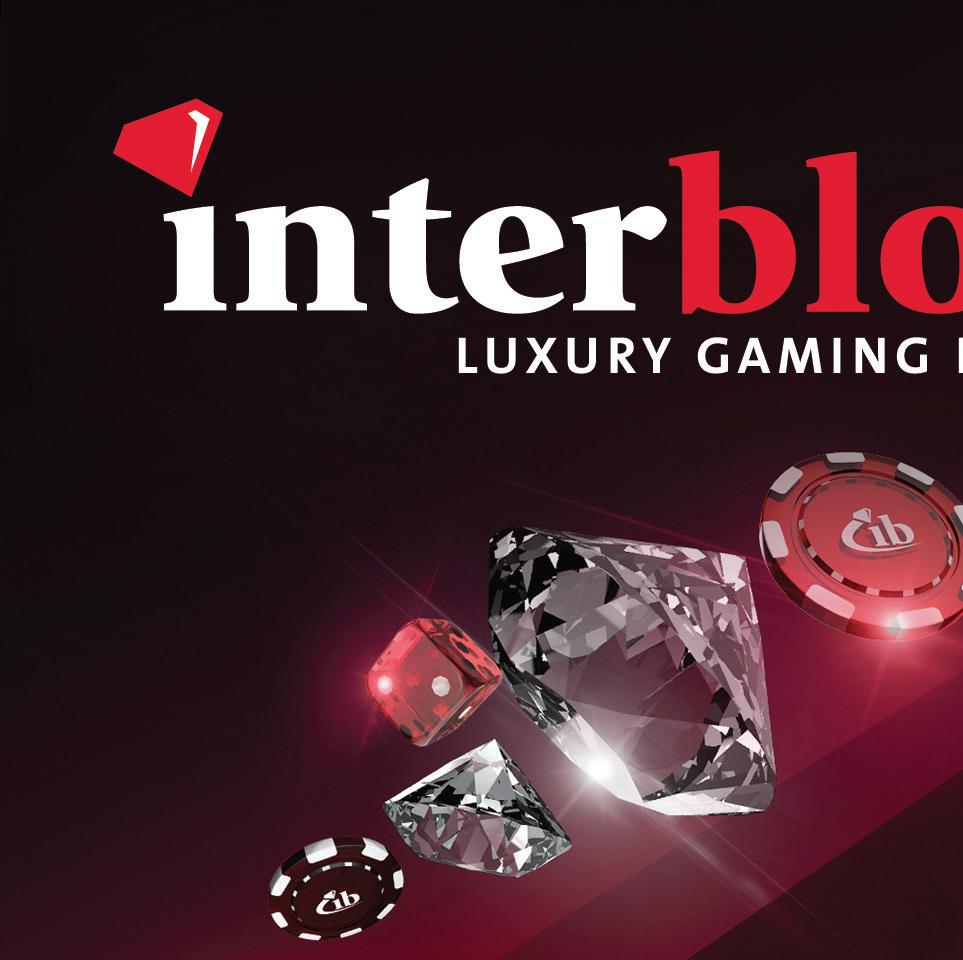





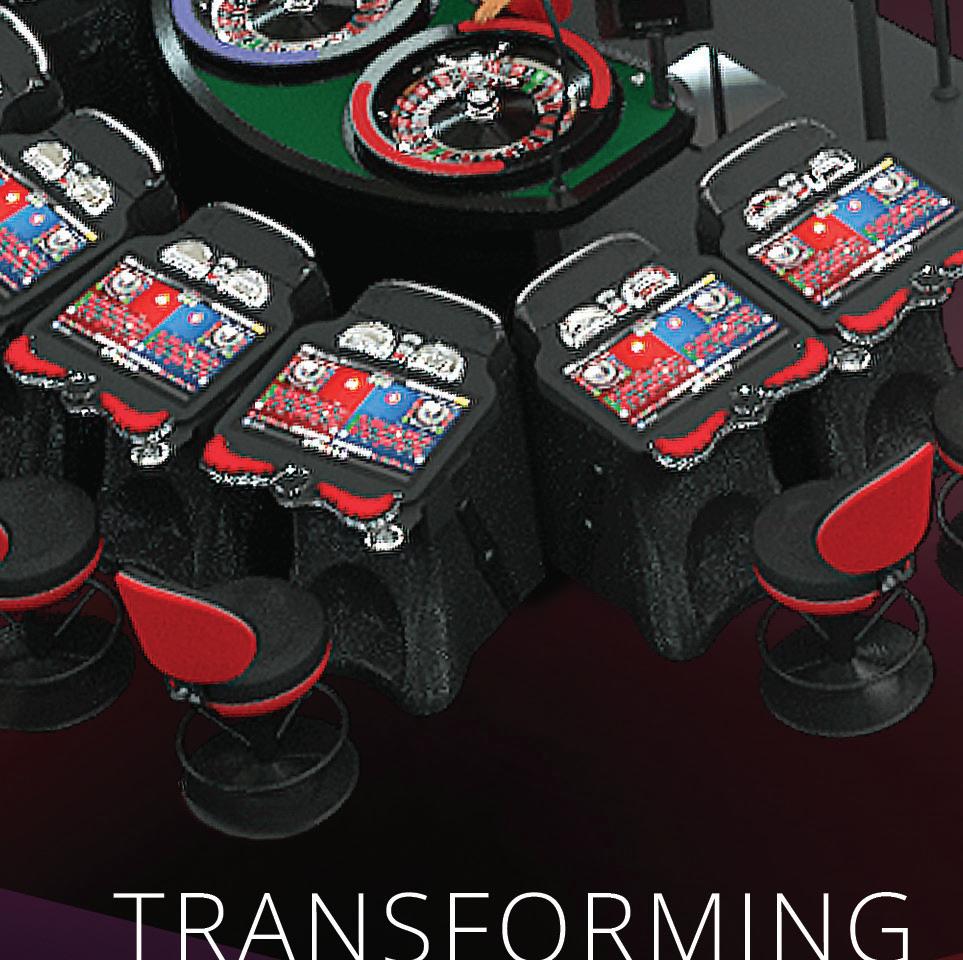




WIDESPREAD IMPLICATIONS





Dennis Ehling and Gregory Bailey of Blank Rome discuss the ruling for the Seminole Tribe's exclusive online sports betting rights in Florida.

On June 30, 2023, the District of Columbia Court of Appeals issued a ruling in West Flagler Associates, Ltd. v. Haaland, allowing the Seminole Tribe to offer sports wagering in Florida. The decision upholds the 2021 Gaming Compact signed by both the Seminole Tribe and state Governor. The DC Circuit did not rule the Compact legal under Florida law, or authorize online play outside of Seminole land, but instead opined that the Compact could authorize sports betting and online play on reservation land.
The Compact - that deemed bets placed online from anywhere in Florida to take place on Seminole land - allows the state and Tribe to avoid violating Florida’s constitutional limitations on gambling expansion. As such, the state and Tribe slipped statewide authorization for online sports betting into an existing exception in Florida’s constitution for gaming on Tribal lands, approved under the Indian Gaming Regulatory Act (IGRA). However, IGRA neither creates nor governs any authorization of gambling outside Seminole land. The DC Circuit held that questions on gaming outside the reservation are best suited for Florida state courts.










EFFECT OF THE COMPACT

The Compact specifies that wagers placed within Florida must use the Seminoles’ computer servers. The DC Circuit held that any activity occurring outside of Indian lands is not within IGRA’s scope. This view is consistent with Michigan v. Bay Mills Indian Community, 572 U.S. 782 (2014) where the Court found that the IGRA cannot authorize or regulate gaming outside of Indian lands. As clearly stated by the Supreme Court in Bay Mills, IGRA’s overall scope is limited to “Indian lands and nowhere else.”
The DC Circuit noted that the Compact deemed wagers outside of Tribal land to still be made where the server is located. The court held that Secretary of the Interior, Debra Haaland’s, approval of the Compact did not provide an imprimatur to any gaming activity occurring outside Tribal land. The DC Circuit concluded that the “nowhere else” scope of IGRA means IGRA neither authorizes, nor restricts, what Tribes do off reservation land. To the DC Circuit, any gaming outside Indian lands directly relates to the activity authorized by a compact and thus appropriately falls within the scope of IGRA provision 25 U.S.C. § 2710(d)(3)(vii).
LITIGATION IN FLORIDA COURTS?

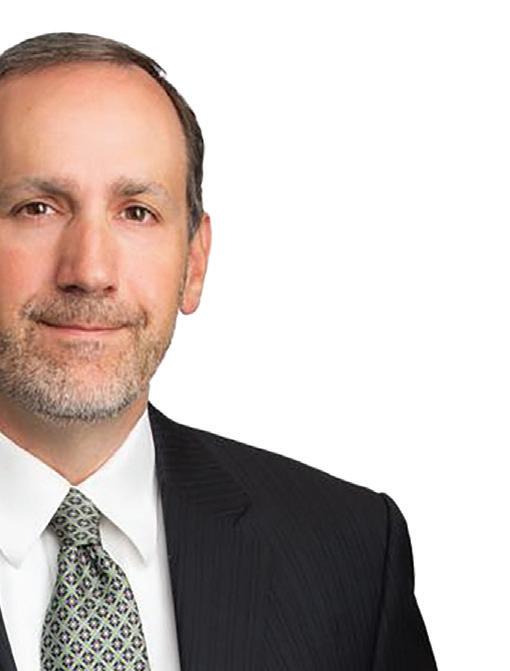


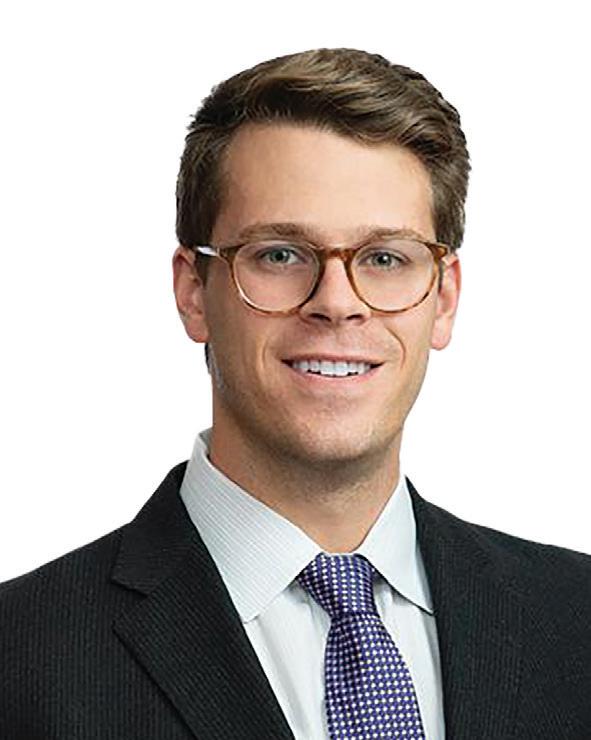
The DC Circuit put questions to Florida state courts, including whether the legislature or Governor could legally authorize the Seminoles to accept wagers placed by Floridians outside the reservation. In 2018, the Voter Approval of Casino Gambling Initiative passed, which amended the state constitution to require a ballot initiative to authorize expansion of certain gaming operations, unless the gaming occurs on Tribal land as approved by IGRA (Fla. Const. Art. X, § 30(c). Existing Florida law already provides that Class III gaming activities “authorized under this subsection and conducted pursuant to a gaming compact ratified and approved under subsection (3) do not violate the laws of this state.” (F.S. XIX § 285.710(13)(b).
The DC Circuit concluded Haaland’s allowance of the Compact does not “approve” anything occurring off-Tribal lands. Rather, the Secretary simply won't intervene to prevent the terms of the Compact discussing activity outside the reservation.
Haaland’s allowance occurring off-Tribal lands. simply won't intervene to the discussing activity
Retail casinos opposing the Compact filed a petition for rehearing en banc by the full DC Circuit. Petitioners argue the Compact’s effective permitting wagers off-reservation land was “an abuse of IGRA to bypass a state constitutional requirement.” Federal approval of the Compact, petitioners assert, could be claimed as proof that the Fla. Const. Art. X, § 30(c) had been satisfied, even though the Secretary could not approve gaming off reservation lands. Petitioners argue further that Bay Mills’ “nowhere else” language limits what the Secretary can approve and the DC Circuit ruling departs from precedent: If the petition for rehearing is not granted, petitioners could appeal to the United States Supreme Court. It seems clear this matter could end in Florida’s state courts.
In the meantime, the DC Circuit’s opinion clears the Seminole Tribe’s path to offer sports wagering throughout Florida, based on the legal presumption that online sports wagering occurs “exclusively” where the server processing the bet is located – on Seminole lands.
GAMING AMERICA | FLORIDA
Gregory Bailey Associate
14 | GAMINGAMERICA
Dennis Ehling Partner










OH, HOW THE ELECTRONIC TABLES HAVE TURNED
John Connelly, Global CEO of Interblock, talks M&A, R&D and how he hopes the company’s new product could one day go from Table Game of the Year to ‘table game of the decade.’


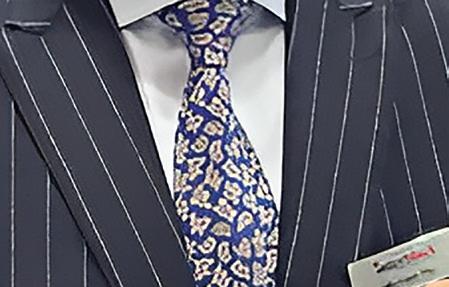


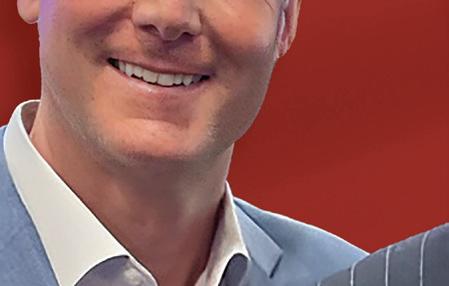


According to the American Gaming Association's revenue tracker, sports betting and online gaming have overtaken traditional table games. How do you feel electronic table games (ETGs) and their potential differs from traditional table games?
I don’t think this should be a surprise. Going back over 15 years, we used to run analysis as to the propensity of online players to play table games versus slots. What we found was that, with the demographic aged above 40, 90% were playing slots. With 35 years of age and under, over 95% were
playing table games online. Even as online gaming was proliferating across the world, online table games definitely seemed to resonate with a younger demographic. Now those players are getting older and there’s millions of new players coming online that are 35; I don’t think those statistics have changed very much. Seeing online table games grow, for a lot of people, was a foregone conclusion. As a result, you see some very successful, powerful online gaming companies focused on table games.
Interblock originated from something similar. We looked a more antiquated

way of playing table games and built a company predicated on technology, innovation and automation. We started our company close to 30 years ago and the past seven years have been doubledigit compounded annual growth.


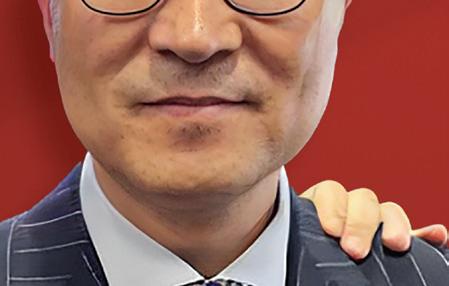


I think even in the traditional gaming space, there was a demand that people didn’t realize for alternative forms of table games. Many people are intimidated to go up to a table game; I think that pushed a lot of people online. A lot of traditional casinos were losing that revenue. Fast forward to today: you now have tens and tens of thousands of ETGs positioned around the world, doing incredibly well, because they’re catering to a different demographic than in years past. I think they realize now that it’s an increased profit center; much more efficient.
The next step is: how do you take what Interblock has been extremely successful at creating in the traditional gaming sector worldwide? Do we start to see the online and traditional gaming spaces come together in a in a more unified, bestpractices fashion, cross-pollinating both the players and product offerings? The answer is ‘yes.’ We are going to be launching into the online space, if not the end of this year, probably Q1 2024.





Who do you see playing Interblock games the most? And why do you think they resonate with that demographic?


We talk about it internally on a regular basis. When I joined Interblock in 2015, the industry was predominantly a







16 | GAMINGAMERICA GAMING AMERICA | ETGs
Global CEO, John Connelly, and President of Interblock Asia Pacific, Michael Hu, hold the Table Game of the year Award from the Global Gaming Awards Asia-Pacific 2023




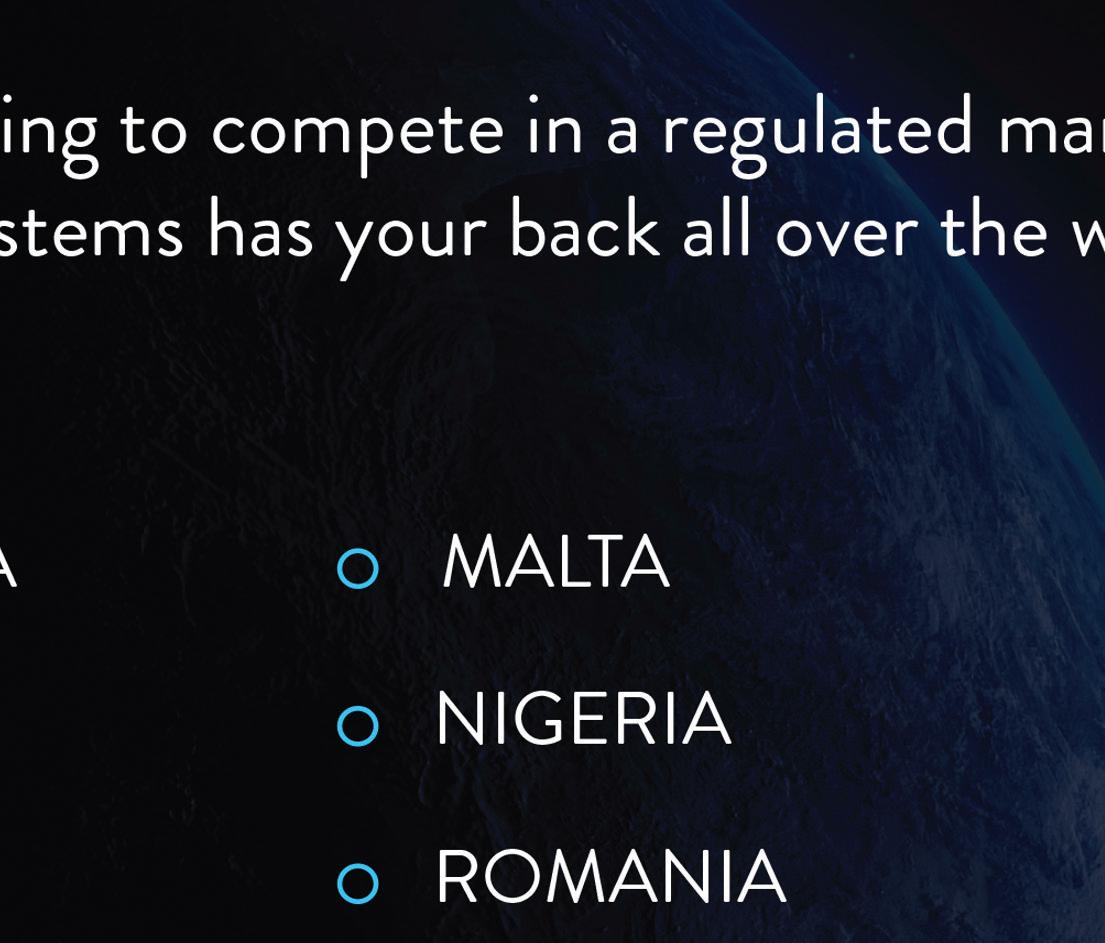





mechanical roulette with no live dealers. Quite frankly, if you asked what an ETG was, the majority of the industry would say a mechanical roulette. We didn’t really understand who played it, why they played it or where to put it on the floor. From then until now, we have learned that the table game segment of our business is very similar, demographically, to the slot business. You need dozens of offerings to cater to dozens of demographics. Today, if you visit Interblock at G2E in Vegas, we will have over 30 different products and 60 different features designed for different demographics.
When you go down the Las Vegas Strip and look at each product, you can really tell there’s a different demographic playing different product offerings. We’re actually launching a fourth product category in our company. The first, standalone, is more or less mechanical or video ETGs without a dealer, where multiple players can sit in a social environment and play. The second category was the stadium concept, a more social environment, to attract new players onto the floor who have been in a casino for a show, or for the hotel stay or nightclubs, etc. We have close to 200 stadiums installed now and it's climbing on a weekly basis. When you sit at a product, you generally are playing a single game (roulette, blackjack or craps), whereas in a stadium you can be playing craps and in the seat next to you, they’re playing roulette. Then we came up with the third product category called the Universal Cabinet; I really wanted to give ETGs the ability to compete with a slot machine. Prior to the Universal Cabinet, it could take a minute for a single game, whereas slot machines go every six seconds. A slot machine had a huge advantage in generating handle and
decisions per hour. Universal Cabinet can also go six seconds, so that product has taken off as the fastest-growing area of the company. Finally, this year at G2E we will be launching the fourth product category, catering to yet another demographic.

Speaking of products and exhibitions, how was your Pick 2 Win Craps received at IGA?
It’s actually gotten a lot of attention. Full disclosure, we are rolling it out in the 60 days before the G2E show, and are very interested in seeing the player reception to that product. It’s unique; it’s incredibly innovative. The team’s done an amazing job and the feedback from the industry has been overwhelming. A lot of people that I respect feel that, whether you like to play dice or not, it’s a relatively easy game to understand and it’s relatively unintimidating and very fun. We’ll be launching tournaments, which has been one of the most sought-after components the industry has been asking for. I think we have three new games coming on the Universal Cabinet segment.

Interblock’s Smart Pit won Table Game of the Year at the Global Gaming Awards Asia-Pacific.
What are your hopes for the products in North America as well?

Well, you’re kind of stealing my thunder, because that is the fourth category we’ll be launching. It really was fascinating to me; I was in Singapore for that. We’re going to have it on the Strip and in probably eight casinos, before G2E. We think it’s going to be the biggest demographic growth potential in the history of our organization. We won the Award on a concept that, quite frankly, only 25% of had been launched. The craps
product had been doing incredibly well, but the roulette, blackjack and baccarat components had not yet been launched. To win the Award before people have even seen it in totality was very motivating and exciting for our company; because if people were impressed with just what they knew at that point, we think it could be literally revolutionary. And this doesn’t just come from me, this comes from the largest operators in the world.




The analogy I use is, when you check in at the airport today versus 15 years ago, it’s very different. When you think about live table games in the next 5-10 years, it will change dramatically, because of what I call a ‘technology umbrella’ that we’re going to put over live table games to empower these dealers to be more efficient, give better customer service, attract both existing and new players and increase profitability for casinos.
You’ve also recently acquired Aruze’s table game assets. What about their games made you want to acquire them?
We’re always doing competitive gap analysis inside our company. I wouldn’t have admitted this before the acquisition, but when I looked around the world at innovation and who myself and my executive team felt was heading in the right direction, we considered Aruze a company to keep our eye on. They had a roulette concept which I’ve always loved. I always wondered, why didn’t they place more of those?
After buying the company, I’ve realized they just didn’t have the capital. The products seem to be so synergistic we couldn’t have asked for more; their Sic Bo product fits perfectly in with our Sic Bo categories; their roulette product fits in very nicely with our roulette portfolio. It’s incredibly complimentary and rounds out our portfolio, and probably gives us close to 80% market share in North America – probably higher percentage in Asia-Pacific. It took us to a level where we can consider moving into online gaming, continuing to invest in R&D and innovating at even a faster rate.


18 | GAMINGAMERICA GAMING AMERICA | ETGs
"WE HAVE CLOSE TO 200 STADIUMS INSTALLED NOW AND CLIMBING ON A WEEKLY BASIS."









OPTIMIZING THE OUTCOME










Gaming America spoke with OPTX Co-CEO Tom Rafferty, who shared 2023 highlights and what new products are in store for 2024.
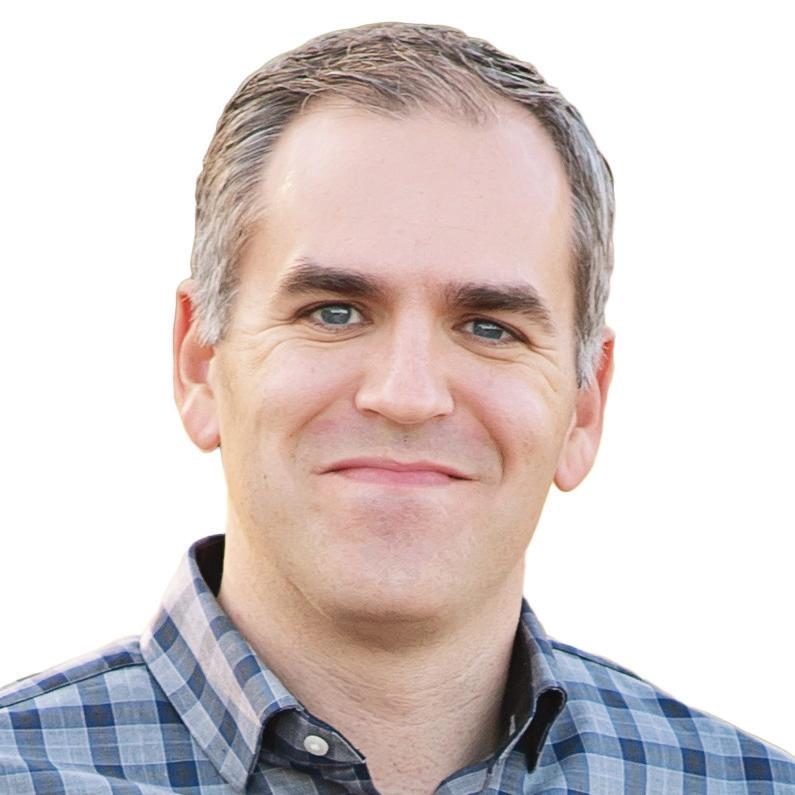
OPTX was founded in 2019 by casino executives, and provides recommendations and player data to casino operators. Rafferty spoke to Gaming America on the impact of OPTX’s growing customer base on the company’s expansion.
OPTX had a great H1 in terms financial stability. What growth have you experienced as a result?

We have seen a tremendous increase: over the past 12 months, we have seen tripledigit growth in signed customers. So, we are expanding exponentially. Our customers operate some of the highest performing properties in the country, which continues to validate the accretive value that the OPTX platform has for our customers.
What has been OPTX's biggest challenge in 2023?

















































Our biggest challenge has been keeping up with the incredible demand and scaling operations to meet customer aspirations. We’ve been privileged to see a surge in the adoption of our products and services, which I think is a testament to the hard work our team has put into innovation and quality assurance. To address those challenges of growth, we’ve invested in our infrastructure, bringing in the best talent and streamlining our processes. We’ve focused on fostering an internal culture of continuous learning and adaptation as well as on collaborating closely with our customers. We can, not only identify and adapt to what their needs are, but also find opportunities for our product to really deliver. We’re really grateful for the trust and the support from our customers.
Tell us more about the learning opportunities you've made available. Internal

learning opportunities make sure we are not just educating individuals, but
educating our entire team on the product and how it’s impacting our customers: where their usage is, where they’re finding efficiencies and where they are not. By educating the whole team, it really fosters this culture of innovation, because you’re establishing a rapport with your team. Everybody’s a contributor. We need each team member to know these things, because we believe they have valuable input to provide. It’s something that we’ve always done that gets more important the faster we grow. We are working with lots of different feedback and lots of new customers. The only way to address those challenges is with the contribution of everyone on the team.
What is OPTX's highlight of the year in terms of software development?
















































Every aspect of our platform continues to improve. We have a broad platform with multiple modules attached; those modules are what we provide to customers. We’re always working to bring out new modules,












like OPTX dispatch and OPTX slots. We’re also tirelessly working to bring enhancements to our current products and invest in AI models.






















How has OPTX tailored its 2023 technology to make day-to-day casino operations more effective?

We’re excited to announce advancements slated for release later this year at the heart of our next generation slot department software. It's an advanced AI driven recommendation engine, trained on vast data sets and fine-tuned to understand the nuanced needs and patterns of slot operations. This technology will empower operators and customers with actionable insights to make data-driven decisions faster and more effectively.
What sets our platform apart is the seamless integration of AI recommendations with actionable tools. Once the AI presents a call to action, operators won’t be left with the suggestion; they’ll have the actual tools and features at their fingertips to execute on that recommendation immediately. We believe that the synergy between human decision making and AI-generated insights will revolutionize the way slot departments operate. Our new platform aims not just to inform but to actively assist in driving optimized outcomes, ensuring that operators are always a step ahead in this dynamic environment. That thesis travels across all of our products, not just slots.
What software updates and new products are in the works for 2024?
We will have many new products in 2024, which will help operators efficiently from everywhere across the entire the entire range of operations for a casino. So, we have lots of new products coming, but they’re going to be focused on execution and operation, like our core products.
20 | GAMINGAMERICA GAMING AMERICA | AI SOFTWARE
TOM RAFFERTY OPTX Co-CEO




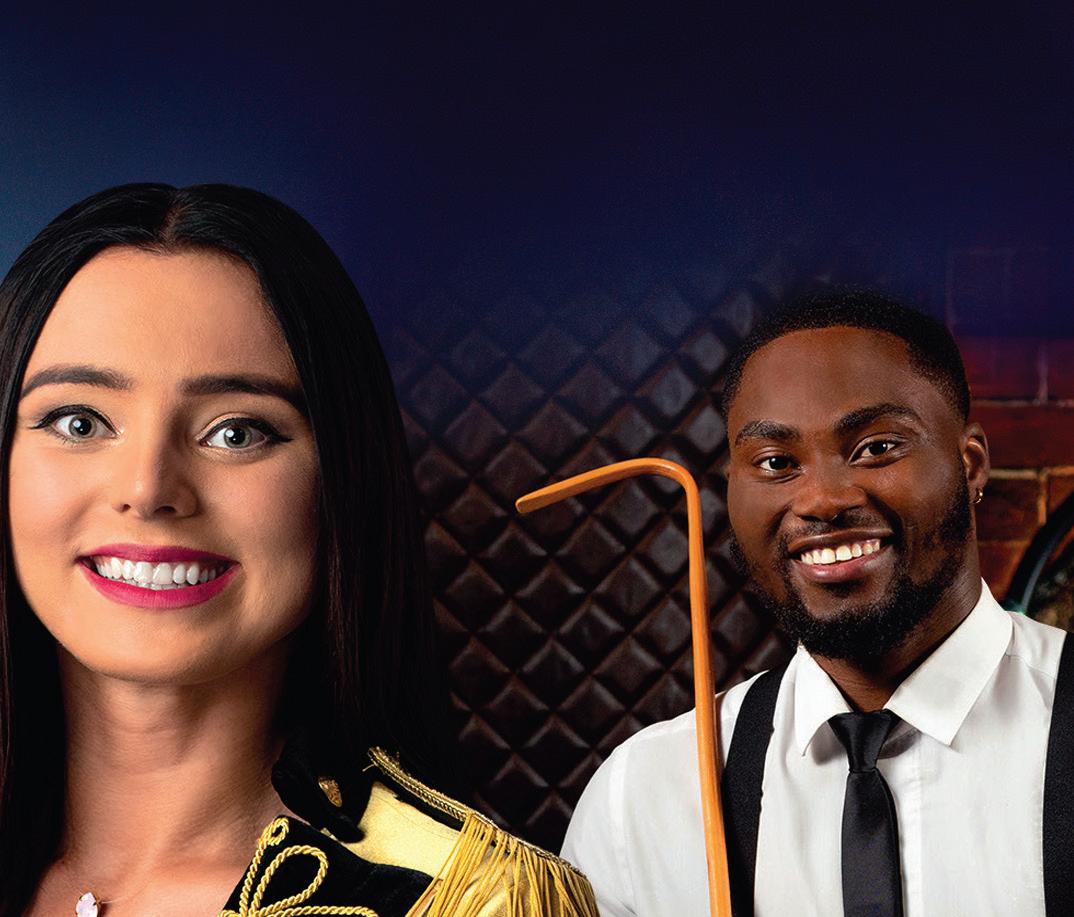
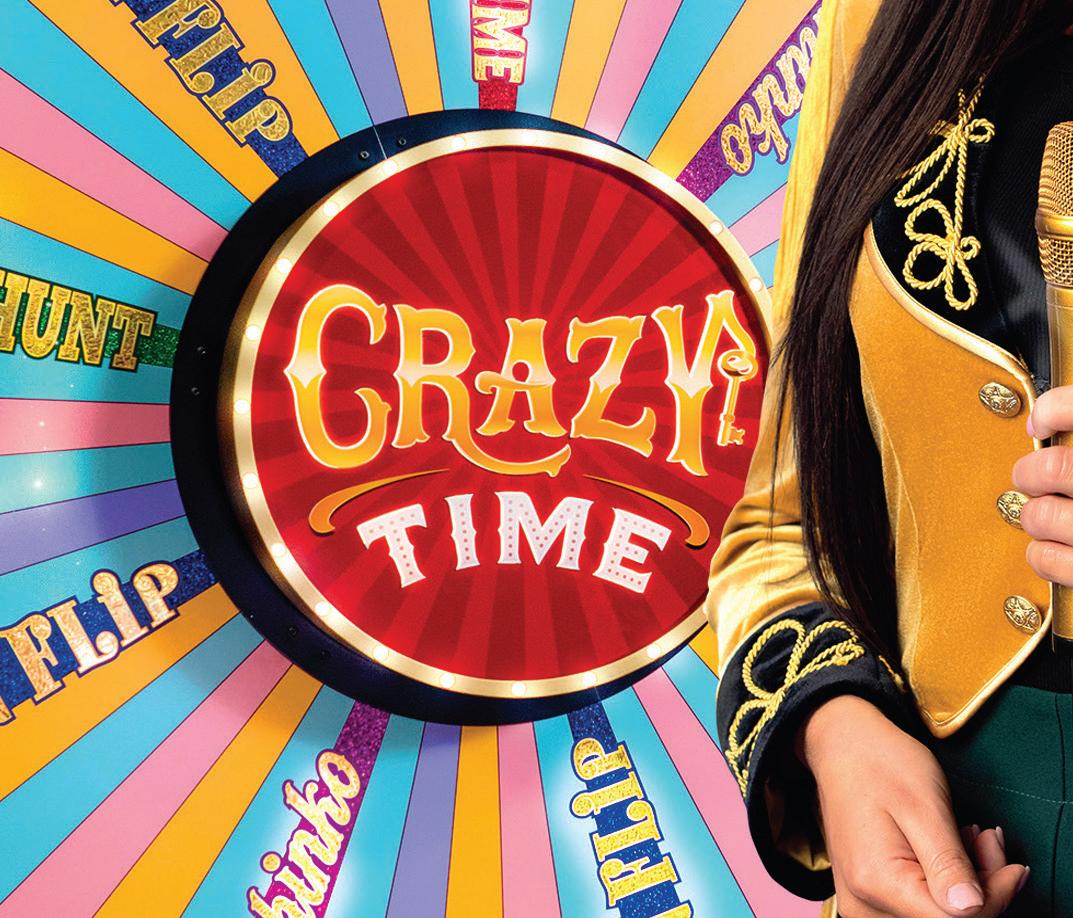




THE CEO SPECIAL













Gaming America speaks with (from left to right), Jonathan Jossel (page 24), Lynn Valbuena (page 56), Jason Guyot (page 44), Mary Cheeks (page 38),
E. Sequoyah Simermeyer (page 50) & Michael Daly (page 32).


GAMING AMERICA | CEO SPECIAL
22 | GAMINGAMERICA



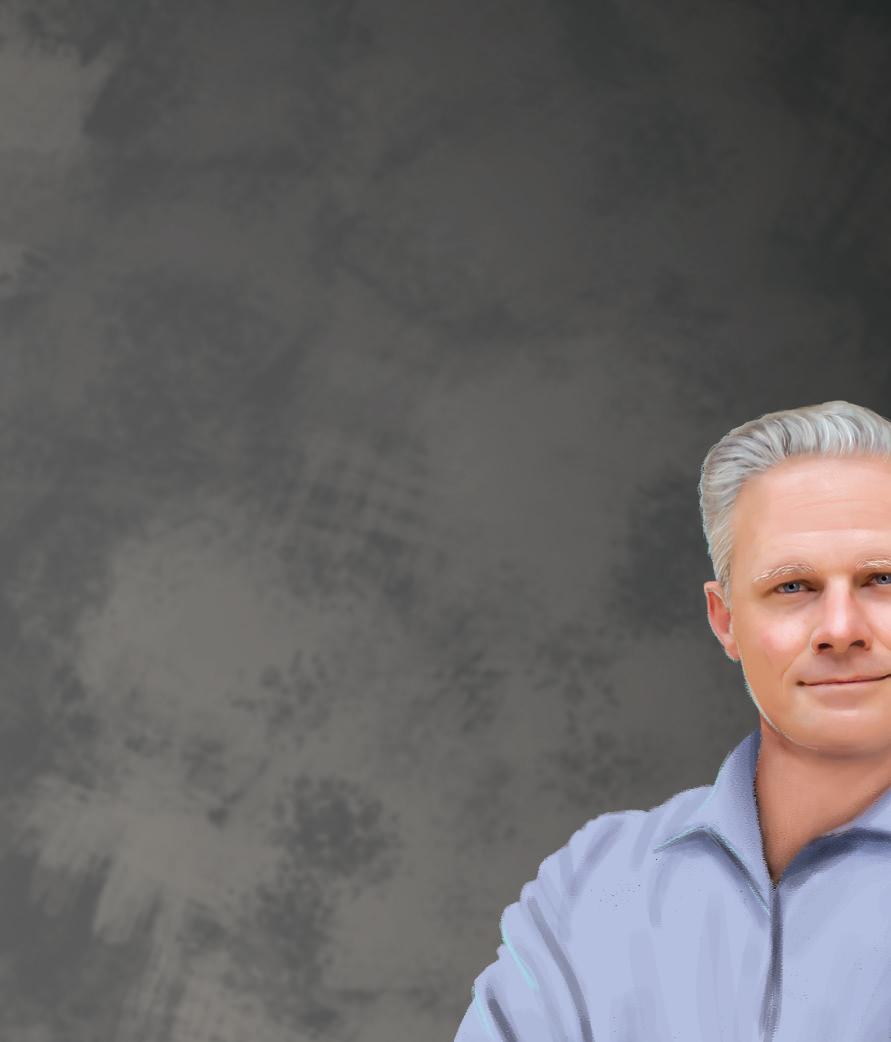







CEO SPECIAL | GAMING AMERICA GAMINGAMERICA | 23
“IT’S NOT JUST A JOB – IT’S A LIFESTYLE”
Plaza Hotel & Casino CEO Jonathan Jossel meets Tim Poole to reflect on risks taken at a young age – risks that led him to Las Vegas, redeveloping the Plaza and building a Downtown “community.”
“People are often afraid to try things because they already have this notion of how things will end up. There’s this idea of day one: everything is day one. You try things, you keep that energy and you stay humble. Because actually, that’s when you keep learning and keep being open to new things, as opposed to thinking you know everything better.”
For the CEO of the Plaza Hotel & Casino, Jonathan Jossel, being the youngest ever gaming license holder in Nevada was not a daunting prospect. Instead, the executive focused on his advantages. Rather than being weighed down by what could easily have been branded a lack of experience, Jossel has – throughout his career – brought youth and energy to Las Vegas. “The area we were in needed fresh ideas,” he states. “Downtown Las Vegas was an area that had been forgotten over the years. In my position, I wasn’t clouded by any previous experience. That’s the one thing which being young gives you the benefit of: you’re not restricted by any limitations.”
A PASSION FOR THE INDUSTRY
As we sit down to speak with the Plaza CEO during one of his visits to London, Jossel tells Gaming America that, even at an early age, he very much envisioned a future in gaming. “I don’t know if I would have picked the job of a CEO, but I saw myself in the gaming industry,” he says. “I always had a passion as a consumer, understanding the psychology of it, so I was always interested in gaming. The opportunity to actually get into the business side of it was very fortuitous – and that is what led to me being here. But I always was passionate about the industry.” That “fortuitous” entry is one Jossel describes as a “blessing, for sure” – but not one that came without risk. Indeed, born in
South Africa, Jossel’s family left for the UK when he was six years old. At just 23, however, he was unafraid to move again, deciding to leave home and move to Las Vegas by himself –a new city in a foreign country where he knew no one. That scenario might frighten a seasoned executive at the peak of their career – let alone a 23-year-old. “I was doing my thesis in the gambling industry in the UK in the early 2000s,” he recalls. “There was this time in the UK when they were talking about bringing mega, Las Vegas-style casinos to London. I was studying the socioeconomic impacts of that, the pros and cons, and one day I met a gentleman through that, who had just invested in Downtown Las Vegas. I told him I was doing my thesis on the gambling industry in the UK and he told me he’d just bought six casinos.”
The chance meeting (with Poju Zabludowicz, Chairman of Tamares Group) led to an understandably fascinating conversation for Jossel. That dialogue concluded with Jossel asking for work experience in the Silver State. Downtown Las Vegas in 2005, though, was in Jossel’s words “a little rough,” with “not much going on.” Four weeks of work experience were therefore more than enough for the young executive. Little did Jossel know back then this would be just the start of his Downtown adventure. After university, his work took him back to the region, with a visit from his employer showing a new side to the area: there was momentum, investment and support from Las Vegas Mayor Oscar Goodman. It was enough to persuade Jossel, single back then, that the timing (in 2007) was right. In his words, he “genuinely saw that there was the opportunity for some young people to make a difference Downtown, both on the real estate and casino side.”
24 | GAMINGAMERICA GAMING AMERICA | CEO SPECIAL - JONATHAN JOSSEL



























“YOU’RE CRAZY. YOU’RE 27!”
Yet the macroeconomic climate had other ideas for Las Vegas, much as it did the rest of the world. Momentum was checked across the globe, and the mortgage crisis and Great Recession of 2007 meant a number of developments Jossel and co. were working on had to cease with immediate effect. This resulted in the young exec quickly having to learn the operations side of the casino business, given how much money was being lost in that climate. According to Jossel, it was a “great time” to learn during those formative years. “If you can learn to run the business in tough times, it’s much easier in the good times,” he tells Gaming America
If there was ever one ‘big break’ for Jossel – it came in 2010, as he closely observed the significant remodeling of the Plaza Hotel and Casino – one of the main casinos within the Tamares Group’s portfolio. Here, Jossel saw “the good and the bad of management – what works and what doesn’t.” It prompted him to phone his employer with a rather bold claim… “I called up and said ‘hey, I think I can run this place.’ And Zabludowicz said, ‘you’re crazy. You’re 27!’ But I backed


myself – and he backed me. I ended up going forward for the licensing process and, when you get the license, you pretty much become the CEO by default because you’re now the responsible person of the entire operation.” From start to finish, the process of learning the business, gaining a non-restricted gaming license (making Jossel the youngest person in history to hold this license) and become CEO of the Plaza took no less than seven years.

DOWNTOWN VERSUS THE STRIP




When Gaming America asks Jossel what separates being CEO of a Downtown property from, say, running a casino resort


on the Las Vegas Strip, his enthusiasm for the ‘underdog’ of the two comes right across. He explains, “There are quite a lot of differences; the obvious one with Downtown is the fact that our property only has 1,000 rooms, which is massive by any other city or country. But by Las Vegas standards, 1,000 rooms is almost routine. These are not 5,000-room properties. So we have the opportunity of getting to know our customers and taking that time to meet people, to be more hands on. It’s much harder when you have 10,000 employees versus 1,000 or 700 employees. So we really get to know our team members – and our customers – better. Then there’s also the benefit of being in Downtown, that we really are all working together to make the area better. We’re not actually competing with each other as much as one might think. As Downtown gets better, we’re all going to independently do better, so the focus is actually on the neighborhood. For us, the best thing that can happen is a new casino opening across the street, more development, high rises and entertainment.” Derek Stevens is one man who has brought eyeballs to Downtown’s modernization, especially since the opening of Circa Resort & Casino in October 2020. Jossel is understandably keen to give him credit, though he feels “equal credit” is due to Tony Hsieh, known as the Mayor of Downtown Las Vegas. Hsieh sadly passed away in 2020 but his legacy as the man who saved – or at the very least helped transform – the area was heavily publicized. Jossel also credits those who have been “believers in Downtown from day one,” likes James Trees from Esther’s Kitchen

26 | GAMINGAMERICA GAMING AMERICA | CEO SPECIAL - JONATHAN JOSSEL
Plaza CEO Jonathan Jossel
WE HAVE 1,000 ROOMS. THESE ARE NOT 5,000-ROOM PROPERTIES. SO WE HAVE THE OPPORTUNITY OF GETTING TO KNOW OUR CUSTOMERS AND TAKING THAT TIME TO MEET PEOPLE, TO BE MORE HANDS ON.

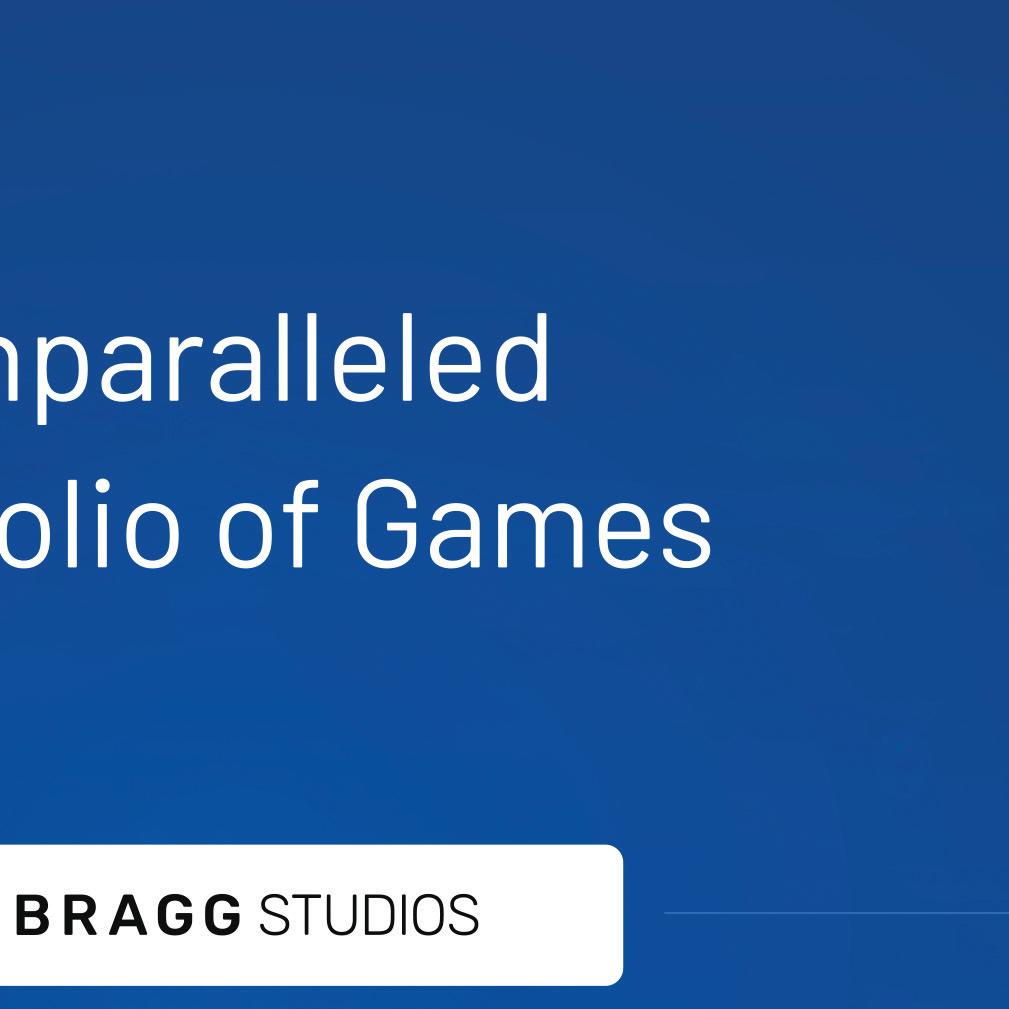




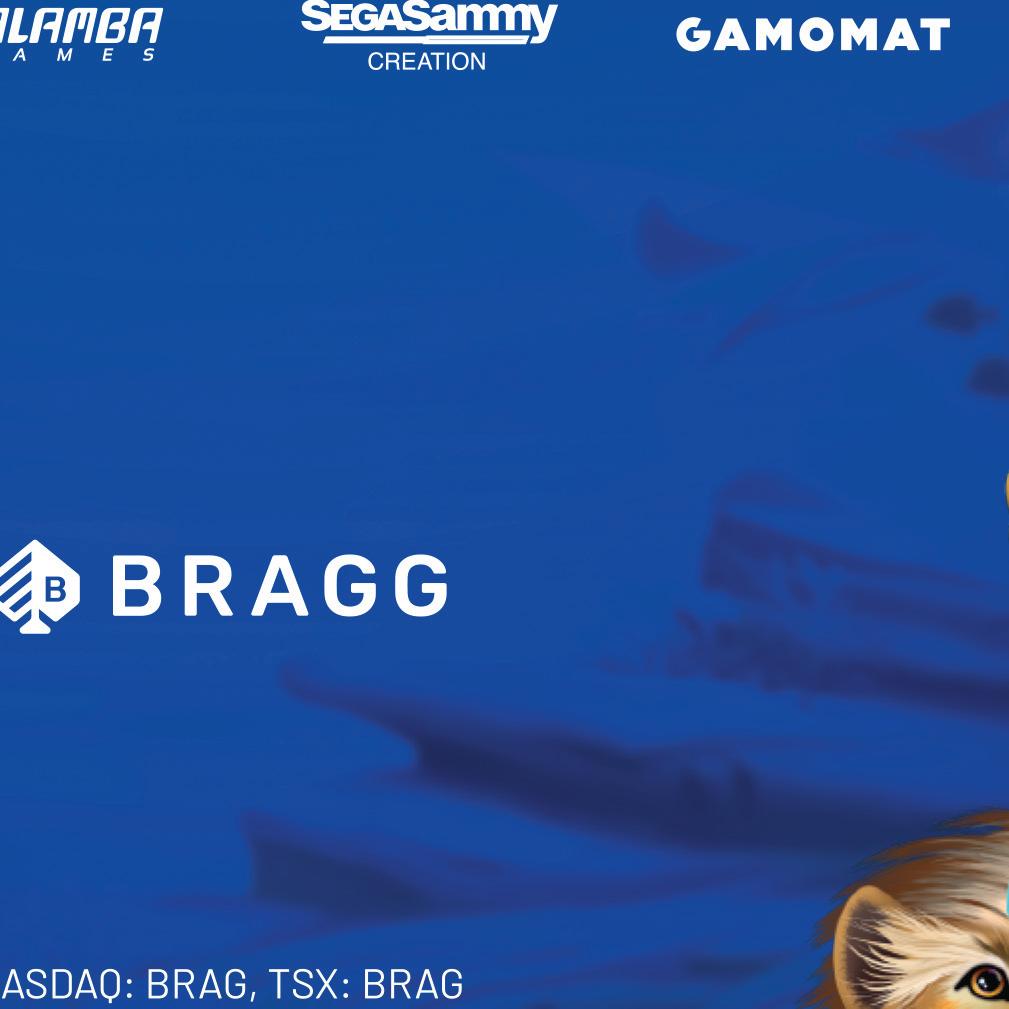


and other smaller, independent operators, alongside the bigger operators a lá Stevens and co. “Everyone has to be there to make this neighborhood better and contribute. You have the Smith Center for the Performing Arts, the Discovery Children’s Museum... All these things wouldn’t be possible if everyone else wasn’t doing what they’re doing too.”
CHANGING THE LANDSCAPE


Another individual familiar to both Jossel and Gaming America is regular contributor Oliver Lovat, who met the now CEO while Lovat was teaching at Cass Business School. Lovat is a huge advocate of the work that has both already been completed and is currently underway for the renovation of Downtown. And the Plaza Hotel & Casino has played a central role in that process. Sitting on 17 acres of land, it is the biggest hotel Downtown by land size. Jossel describes it as a “very iconic” property on a “strategic piece of land.” Plaza visitors can experience the older hotel casinos, as well as Symphony Park, and the long-term plan is to develop the 17-acre site with a new hotel, new entertainment and new projects.
We decided: no, this is a great historic brand. It’s a great location and it’s got good bones for the future.”


That persistence with the property has since seen the Plaza totally remodeled and redesigned. All 19 elevators are brand new, along with a new pool deck and convention center – while all 1,000 rooms have been redone. The list of upgrades also extends to the property’s new Carousel Bar, Pinkbox Doughnuts and a new patio for Oscar’s Steakhouse. Jossel adds, “Our approach has been to, one by one, go around this building and upgrade it every day, making it a little bit better. At the same time, we’ve been working long term on the future development of those 17 acres –because that’s where we think we can really change the landscape of downtown.”





THE PLAZA FAMILY







When Gaming America risks using an old cliché by asking if Jossel feels































































protective over the Plaza, as though it were his ‘baby,’ the CEO is keener to talk up the part played by his team as a whole. “It’s something the customers and team members define,” he responds. “But in terms of the way we’ve gone about remodeling, it has certainly been a team: a core team that’s been with us from day one.” That collective has shared the same vision, a vision that will also now involve more F&B options and greater entertainment choice – finding ways to “keep the building interesting and relevant,” while maintaining the basic functions of cleanliness. The Plaza is, though, a “direct reflection” of how Jossel and his team treat customers and aim to make them feel.
“We’re



















“We’re very proud because many people told us a decade ago to knock it down and start again,” the CEO recalls, “We took a different approach.









Jossel loves “every day” of his life at the Plaza but, when asked to single out the best aspect of his role, he points to the freedom it brings – a freedom that public-owned companies might not emulate – to work from a “blank slate.” He explains, “We wanted to try to create something new and there are no limitations. We can do a rodeo, a pickleball tournament. We can put art on the building. We can open new concepts.
there are no limitations. We the open new concepts.






GAMING AMERICA | CEO SPECIAL - JONATHAN JOSSEL
28 | GAMINGAMERICA
very proud because many
The Plaza Hotel & Casino










We really aren’t constrained by any preconceived notion of what it’s meant to be or what it has to be. We have a great team, a great ownership that allows us to be creative and try new things. And so the creativity and the opportunity are second to none. That is the best thing.”
Yet there is a flipside to this very approach, as Jossel freely admits. He remarks, “We’re like a big family, so it’s a blessing because it’s great that everyone feels comfortable. But at the same time, you lose some of the things you may need in a corporate structure and traditional corporate America. Those things probably exist for a reason. But we’re just more of a family operation. We had an ex-employee that went to work somewhere else and they told me it’s crazy – that they wore so many hats in the Plaza and that, at their new company, everything is very structured. That’s just the way we are: we’re a family.”
DOWNTOWN VERSUS THE STRIP –THE SEQUEL?
The family aspect Jossel describes is a world apart (although not geographically) from the likes of Caesars CEO Tom Reeg, MGM Resorts CEO Bill Hornbuckle and other public-company Las Vegas CEOs. They attend quarterly conference calls, are answerable to global shareholders and form a central part of the “corporate American” culture Jossel refers to. But could the Plaza CEO see himself as the leader of a Las Vegas Strip property one day? “Not to say there haven’t been opportunities like that… but right now, I think the opportunity is just so big here in Downtown as a whole,” he affirms. “Going to the Strip or a bigger project and starting something new there, it’s just not what I’m looking to do because I love the difference that we’re making here. In the future, you never know. But I would be very cautious about giving up the freedom and creativity to do what you believe in, versus being constrained by public companies.”
Besides, Jossel is still able to pursue additional projects while CEO of the Plaza, for example his role on the board of online operator and Betway owner, Super Group.






He describes it as a “different opportunity” given it is a 100% online company. In the 12 months or so since he has taken the role, it has enhanced his understanding of the digital landscape and corporate governance. It, too, has opened up learnings for Jossel (that may well be applicable at the Plaza) on how consumers differ, the different rules that exist and where online and land-based can crossover.
Jossel’s interests in Las Vegas and beyond also include philanthropic projects. “I’m on Boards of a few other things to do with Las Vegas,” he tells Gaming America. “The Fremont East Entertainment District – I’ve done that from day one. We have some buildings in East Fremont, so I’m very passionate about our neighborhood and helping with that. I’m on the Board of the Nevada Resorts Association; the Board of Young Jewish Professionals. There’s one other charity I’m very passionate about because of our connection at the Plaza with pickleball: I’m on the Board of Inspiring Children, which is a charity for sending underprivileged kids through school using tennis; and now we’re hosting pickleball events to help benefit the charity as well.”

THE DOWNTOWN COMMUNITY


For Jossel, all of these roles represent contributions to Las Vegas – and underline something very important to him: that he and his team are part of the wider Downtown community. It’s a community the CEO wants to be part of “in everything he does.” The aforementioned pickleball is another example, a variation of padel – the Mexican tennis-like sport (which our Gambling Insider CEO Special earlier this year revealed is played by NeoGames President Tsachi Maimon!). Jossel describes pickleball as “like if tennis and table tennis had a baby.” In short, all roads lead to Rome for the executive – or in this case Las Vegas. Jossel is based in Vegas with his wife, three children and pug-beagle Snorkel. Ultimately, being Plaza CEO is not just a job – it’s a lifestyle. He concludes, “Before I had children, a big part of my life was understanding the
way people move through these buildings, the way people experience these buildings and casinos. I would often spend late nights and early mornings at the Plaza to see what people were seeing and experiencing, meeting the different teams on the different shifts. Because we’re a 24-7 business – so we have different employees, different shifts every single day, spending that time there late night, early morning. Getting to know the people and the buildings is what helps you form the ability to ultimately improve and remodel them, because you understand what the building is. So it’s a lifestyle. Now we open our new bar… It’s being in there, hearing the music, seeing what the guests are experiencing when they come in, what they see in different areas. All these things are lifestyle, not just a job.”
GAMING AMERICA | CEO SPECIAL - JONATHAN JOSSEL
30 | GAMINGAMERICA
Snorkel (Jossel’s family dog)










Autonomous leadership
Gaming America gets an honest response when we ask if a young Michael Daly ever thought he would end up a gaming CEO. “Probably not.” Born on a farm in New Hampshire, Daly lived most of his youth in the inner-city Boston area of Massachusetts. As a boy, the now Catena Media CEO’s first passion was “space and the like.” More specifically, volcanology and plate tectonics were of great interest – even providing a basis for Daly’s college education. A far cry from the gaming boardroom, Daly initially considered studying nuclear engineering, although he was persuaded by his freshman advisor that “nobody is going to build a fusion reactor” in his lifetime. Indeed, Daly was advised a better bet might be mechanical engineering, in which he now holds a degree.
Daly ended up at the world-famous MIT (the Massachusetts Institute of Technology) on a naval scholarship, where he jokes that he gained his first exposure to gaming: the card-counting club at MIT, made famous by movies such as 21. Daly “didn’t get too involved” for fear of losing said naval scholarship! It was a wise choice, as eight years followed as a naval officer. There would not yet be any Q2 reports for Daly, nor any revenue-sharing agreements or CPAs. In the US Navy, Daly started on a ship and then toured with special warfare units and SEAL teams. “It was good for me. I became an officer thanks to the program in college. The time in service turned me from a punk-ass kid into an adult who understood a little bit about leadership.”
Part of Daly’s duties were “running around the world and jumping out of planes.” His passion for, and fond recollection of, these experiences comes across quite plainly in conversation. Eventually, however, he recognized that his mortality “might be a real thing.” He continues, “I had gotten some injuries and put my letter in to get out. I went to Utah for the 2002 Winter Olympics to do some work. Then they wanted me to go back to MIT. They were willing to do a deal where I went to Utah and didn’t
give them any more time, but did an MBA paid for by them. Once the Second Gulf War was declared over, I thankfully did not get recalled for the long, protracted policing action that followed.”
LIFE AFTER THE NAVY
While in Utah, Daly has an ex-girlfriend’s father to thank for pointing him towards gaming. He was recommended the industry as a post-military career choice and introduced to a certain Mark Yoseloff, CEO of Shuffle Master – the dominant force in shuffling machines and games patents. Shuffle Master had a small business refurbishing, and then selling, IGT machines – but it was a “disaster.” During his meeting with Yoseloff, Daly was offered the job of cleaning up that division, to either later be sold or shut down. Shuffle Master wanted someone with “a little backbone” because it “wouldn’t be an easy job.”
“I was brought into what I thought would be a short stint in the industry, to clean up and shut down a slot division,” he explains. “It was a mess; they thought they were getting out of electronic games and just going back to the shuffling machines. But meanwhile, they bought some patent rights from Sega around the concept of electronic tables. I sat in one meeting on those with the Head of Marketing. After what I saw, I went to the CEO and said ‘look, you’re going down the exact same path you did with the slot machine business.’ All the technology is the same and you don’t know what you’re doing.”
And so that became Daly’s next job: rolling out the concept of electronic blackjack tables in the US industry, before doing the same thing in Europe, and ensuring this process was carried out to the requisite standard. US and Europe was quickly followed by Australia, after the acquisition of Star Games, and here came a little bit of gaming history for Daly and co. This was essentially the introduction of the electronic gaming machine industry. And that Star Games brand? After combining with Shuffle Master, it later became Light & Wonder’s electronic tables division.
32 | GAMINGAMERICA GAMING AMERICA | CEO SPECIAL - MICHAEL DALY
As online continues to expand in the US, we speak to Michael Daly, CEO of one of the biggest affiliates in the sector, Catena Media. Daly tells us about life in the Navy, his time at Shuffle Master and Bally, lessons learned at GAN and much more.
DALY MICHAEL







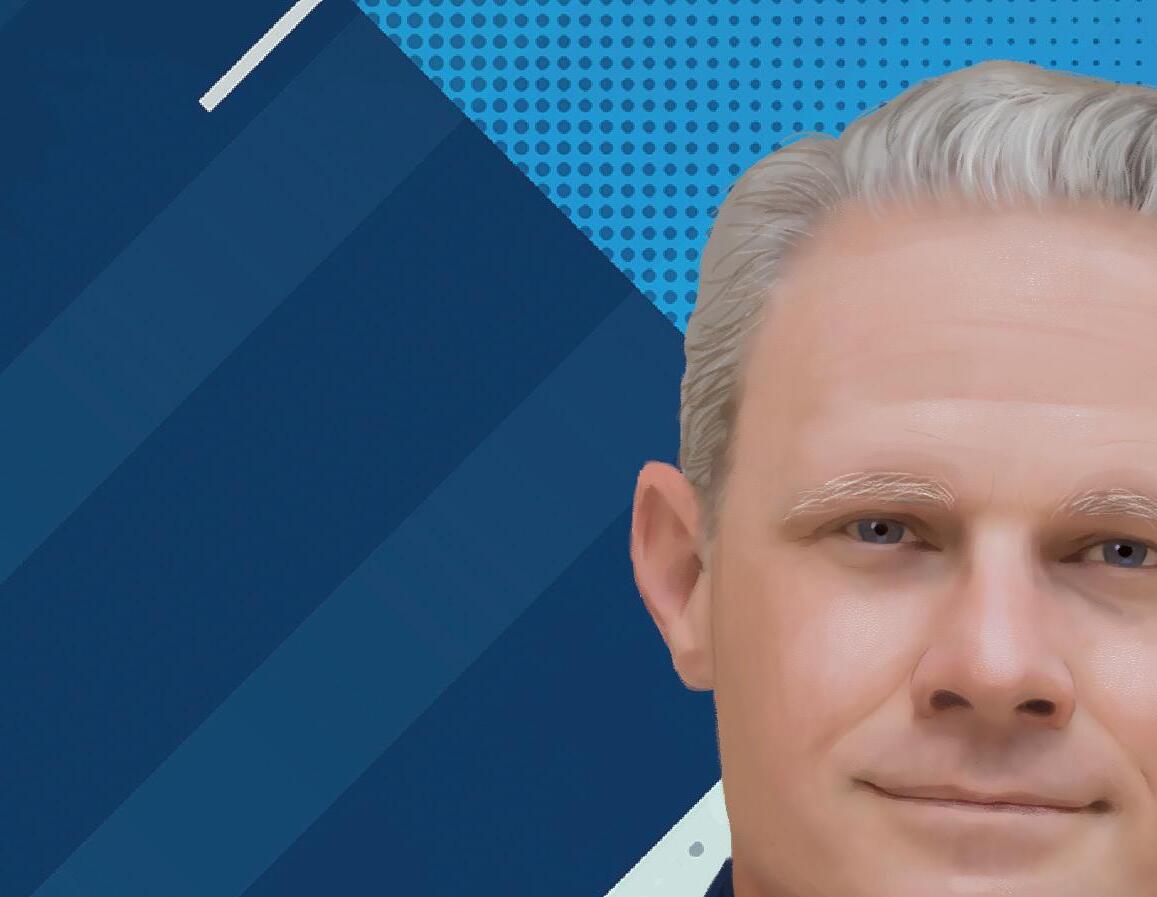




CEO SPECIAL - MICHAEL DALY |
AMERICA
GAMING
BALLY AND GAVIN ISAACS



Daly’s next concrete move was to join Bally Technologies – but not without a certain degree of legal rigmarole in between. While business was “going very well” in Eastern Europe and the Spanish arcade markets, Shuffle “liked to sue a lot of companies related to trademarks and patents.” Indeed, that is how the company “basically kept the shuffle industry monopolistic.” One such case involved Casinos Austria, where a dispute had surfaced over the operator’s new shuffling machine – argued to contain patent infringements. The resolution of that dispute was Shuffle Master’s purchase of Casinos Austria’s Research and Development business; and, more directly, the appointment of Daly as the company’s Managing Director of Europe.
Daly subsequently began to learn German – and even got married to allow for a Austrian spouse Visa. But two weeks before the exec was due to fly out, auditors alerted Shuffle that the supplier would have





















to pay “an inordinate amount of money” to hire a non-Austrian in a role that could technically be filled by an Austrian native. That job therefore “came off the table,” meaning Daly would regularly spend one alternating week in the US and one in Europe – not to mention frequent visits to Australia due to Star Games. Spent, Daly decided to ‘Shuffle’ his cards – and accepted a job offer from Bally.

There, Daly would oversee the first widescreen gaming slot machines, coming to the realization he now had one firm objective: to become CEO of a small to mid-sized gaming company. Remembering his conversation with that ex-girlfriend’s father all those years earlier, Daly was advised there was a dearth of mid-level management talent within gaming. So opportunities out there definitely existed – and Daly’s desire to do more was recognized by Bally’s new COO: industry veteran Gavin Isaacs. “He knew I wanted to do more, so he helped me start to move around the organization,” he recounts. “I moved to field operations and we were implementing agile manufacturing. So that helped me understand how those sorts of processes work in a business and really drove that in the company; we took slot machine manufacturing time down from 16 weeks to two weeks.
“It was just revolutionary to me to see how this was being applied. From there I went into business development, at that point looking at online gaming. We made some acquisitions and stopped some acquisitions that had been in the prior administration. I asked at that point if I could run that division rather than stay in biz dev and was given that opportunity, so I started to do remote gaming servers in Europe and running teams in
UK and Gibraltar. I was really fascinated by the online gaming side of things.”






























COMMAND AND CONQUER

















You could say Daly’s next move saw him move backwards to go forwards. Indeed, Isaacs proceeded to leave Bally and become Shuffle Master CEO, bringing Daly with him after his non-solicitation period. Daly’s new job was to run Shuffle’s startup online division and, in his own words, it was “more appealing” to work for Isaacs than his current boss. He would now report directly to the CEO (Isaacs) as well as Board Member and Head of Strategy, Louis Castle. For Daly – an avid video gamer (more of which later) – working for Castle was an inspiration, as he was the Founder of Westwood Studios, the creator of strategy-based phenomenon Command and Conquer.
“Louis was the guy who could see Point Z when no one could figure out point B,” Daly recalls. “My job worked well because I could help him figure out how to get through points B, C and D, which was not his speciality. So it was a very good pairing and I learned a lot from him. He was one of the most talented people; I went to MIT with a lot of talented people but Louis was on a different level. On one hand he would be a programmer and coder, but on the other he understood finance and had a sketchbook with Renaissance art. I learned how to dream a little bigger, which was never quite my forte.”
Daly’s gaming career to date had served up a near-three-year stint at Shuffle Master, over six years at Bally and then nearly two further years at Shuffle. Perhaps perfectly encapsulating the ever-consolidating nature of our industry, Bally then decided to buy





GAMING AMERICA | CEO SPECIAL - MICHAEL DALY
Daly’s cat Betty White
IT’S BETTER TO HAVE A LEADERSHIP TEAM THAN A LEADER. YOU GET A LOT MORE ACCOMPLISHED AND YOU GET A LOT BETTER DECISION MAKING, BECAUSE IT’S NOT JUST ONE PERSON’S VIEW.
34 | GAMINGAMERICA

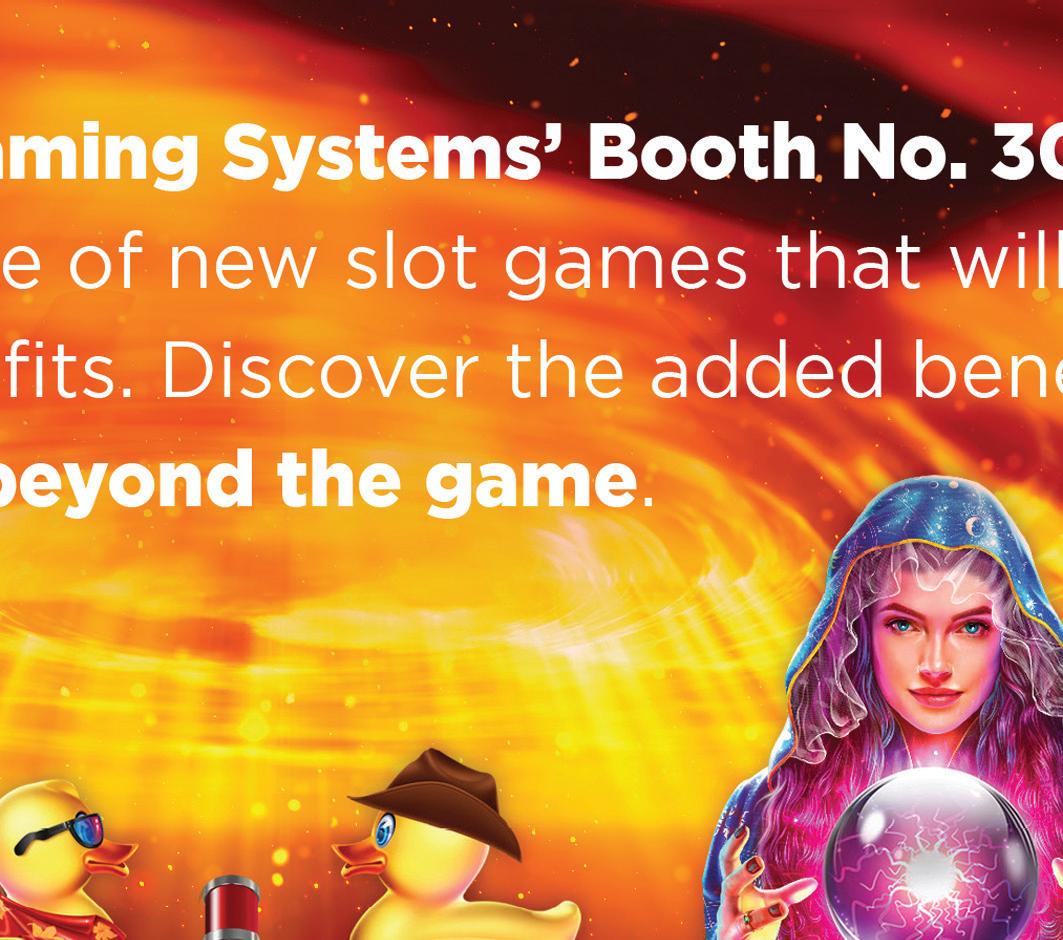








Shuffle. Understandably, after so long at both companies, Daly decided it was time for something else. An under-two-year stint at Automated Cash Systems followed – a payments/ATM machine start-up where Daly eventually agreed to disagree on the direction of the business. Then came a quick return to gaming, with Daly receiving a call from Game Account Network (GAN). Previously, its only US partner was Foxwoods Resort Casino (whose current CEO Jason Guyot also features in this edition) and Daly’s job was to change that.
A LEARNING CURVE
The aim at GAN was very straightforward. Yet, in reality, Daly’s journey with the business was far from it. From June 2015, Daly worked with a “good team” to prove a theory that social casino could precede real-money casino gaming. Daly’s time at GAN, though, would not exceed two and a half years. Daly tells Gaming America the story, “Myself and some others had a deal in place where, if the company reached profitability, it would change the amount we were making – because I was making less at GAN than I previously had been. We reached that goal in December 2017. So the company declared that, besides the Owner’s actual expenses that he took out of the business, we were EBITDA positive. This was the triggering point.
“So we all went on holiday... And when I came back, I was let go for cost reasons. There were some lessons there. It was unexpected but in some ways expected. Did it teach me to make more secure personal contracts? Sure. But, you know, the US industry has never been quite the same as Europe. Most of us are still at-will employees to a certain level. Even as an EVP at a company in North America, which I was at that time – it’s still at the CEO’s discretion. It was the first time I’d ever been let go. And the only time I’ve ever been let go.”
As often proves the case in these kind of stories, however, Daly would not be featuring here today as the CEO of Catena Media were it not for this twist of fate.
Following his GAN exit, Daly looked to utilize his industry connections, something he confesses he was previously “never very good at.” But, this time, he succeeded – crediting gaming consultant Melissa Blau for putting him in touch with Catena Media. “I’d been in circles with her for years based on the things we were trying to do in the US with Bally and Shuffle,” Daly looks back. “She introduced me to the then-COO of Catena Media, for their North American start-up. They owned two small acquisitions that were on earnouts, and they needed to transition that to an actual business. At that point, the stock was skyrocketing and they were just rolling up acquisitions.” A new chapter was beginning.
THE HERE AND NOW: CATENA MEDIA


It was April 2018 when Daly was appointed Catena Media’s General Manager US. Back then, the North American branch of the business was effectively “ignored by the main company.” Annual revenue of roughly €6m ($6.4m) meant the division was “probably just 8% of the business.” And yet 2018 saw a changing of the guard. Daly’s arrival coincided with the overturning of PASPA (May 2018), meaning increasing traction for sports betting, especially in core markets such as New Jersey. Up until 2021, Daly and Catena Media’s priority was expansion, and capitalization on this lucrative new growth opportunity. By the time he had established himself as VP, North America (he started that precise role in April 2020) revenue was closer to €60m – and a “much higher percentage of the company.”
From here, looking at how Catena Media could grow became a sticking point. As Daly explains, “the company had become very challenged. We had way too much debt, so we weren’t doing some of the M&A in North America we’d have liked. We proposed more, and in LatAm too, but couldn’t carry them out. We’ve worked hard to reduce the debt, but we still had a number of ugly acquisitions.” Catena Media CEO Per Hellberg subsequently left the affiliate and the Board started an open search. Daly,
given the CEO goal he had outlined earlier in his career, did not shy away.
“I wasn’t the obvious choice because I was an American for a European company and I didn’t live in Europe. But I went through the interview process and was given an opportunity. I respect greatly our Chairman and the Board for giving me that opportunity. I didn’t have the pedigree of having been CEO of a similar-sized company. And it’s very hard, I would say, for many people to break into that layer of management. So I was very fortunate to be given the chance.”
LIFE AS A CEO



Since March 2021, as Catena Media CEO, Daly has continued to focus on the Americas (he has previously told us there may come a day when Catena Media is fully America-facing) and has continued to work on “cleaning up the organization.” “That’s been hard yards,” he comments, “because a lot of what we have to do comes with a price, as we bought a number of brands for X value and they’re not those values today.” However, assisting Daly in his mission are teams he has found it “fascinating” to work with. “Some of them have gone from being my peers to me being their boss, and they’ve been very good at how we’ve all handled that.” Daly’s next quote perhaps gives the truest indication yet of his ethos: “It’s better to have a leadership team, I think, than a leader. You get a lot more accomplished and you get a lot better decision making, because it’s not just one person’s view.”


Daly draws on his experience in the military when it comes to letting people go (“regardless of how ugly it is, everybody goes home at the end of the day; they will get another position because these are people of talent”). It also helps with running small teams and the “ability to be autonomous – as well as making people autonomous.” He reflects, “The last thing you want in a small-unit operation like in the military is for everybody to be waiting for you to tell them what to do. So that taught me a lot about what leadership is really about: pointing

36 | GAMINGAMERICA GAMING AMERICA | CEO SPECIAL - MICHAEL DALY
people in the right direction and saying, ‘I’m sure you’ll figure it out better than I will,’ because otherwise it’s just limiting it.”











Daly is keen to break what is “very much a wall” between accounting departments and the rest of an organization. Sometimes, he says, financial executives will talk in what seems like one language – but not the same language as everyone else. A “better” CEO, for Daly, is a jack of all trades rather than a particular accounting specialist who might, for instance, “sit in an ivory tower on the second floor and be very much removed.” The topic reminds Daly of a story from earlier in his career: at a previous company, executives would occasionally serve employees lunch. One employee greeted “Mr Daly” before turning to the company’s CEO and saying “hi, I don’t know you.” “That, to me, was a massive disconnect,” Daly states. “I believe in leadership by walking around. It comes from the military as well, though it’s harder to do in a remote organization! It is great to be smart, but if you are disconnected from what is going on in your organization by language or ability to communicate, you’ve got a big problem.”
OUTSIDE THE BOARDROOM

As with our other five interviewees in this year’s CEO Special, Gaming America was keen to know what keeps Daly motivated beyond his day-to-day duties. He, firstly,

participates in a number of charities that work with disadvantaged children. “I was very lucky I had a strong family foundation,” the exec says. “If I lived in Massachusetts still, I’d be in a family event every weekend. So those opportunities are important to me.” Daly is also a huge animal lover (his cat Betty White jumps in and out of focus during our Zoom call), while he also used to own two Great Danes before giving them up due to his busy travel schedule. There is still a small dog in the house, though, courtesy of Daly’s fiancé Mattina.
Working out is important to the CEO – and perhaps a vital way of coping with the demands of the job – while his Navy background has made him a “big swimmer and diver.” Based in Las Vegas, Daly is a keen hiker and mountain biker, with Nevada providing a “beautiful environment” for outdoor camping, lake-based water sports, off-roading and more. “I go out when I can; I try to find a long weekend and get a couple hours where, funnily enough, your cell service doesn’t seem to work and you’re really off the grid for a bit.”
Daly used to be a “voracious reader” but now does most of his reading on plane journeys – as well as another big hobby: playing video games. He has already expressed his love for Command and Conquer and the studio that produced it, while he "loves" Catena Media’s esports
business, he prefers playing AI to people. Why? “Because I’m not nearly as good as the 12-year-old who is going to be on the other side of the game” he quips. “I like strategy a lot, which probably helps with business too.” Completing a well-rounded list is his love of cooking with Mattina, and his love of travel. Daly has been to 99 countries (most recently Iceland, where he could show off his love for volcanoes) but has never been to Ireland – the prime candidate for country #100, as that is where his family immigrated from.
FOLLOWING YOUR PATH
As we approach the end of our discussion, Daly tips his hat to the future. Perhaps paradoxically, he believes “part of the job of a leader is to obsolesce ourselves.” He explains, “The ultimate for me would be for somebody on my senior team to become ready to replace me. Then my job is to get out of their way because they’ll probably do it better than I can.” At the same, a practical Daly acknowledges that Catena Media is a publicly traded company. His job is to meet the expectations of investors who can decide his fate externally. “It’s all business and I respect that. You can’t take that personally or emotionally.” But the CEO believes that, “in anything you do, you should have a path and a plan.” And Daly’s personal plan is far from finished.
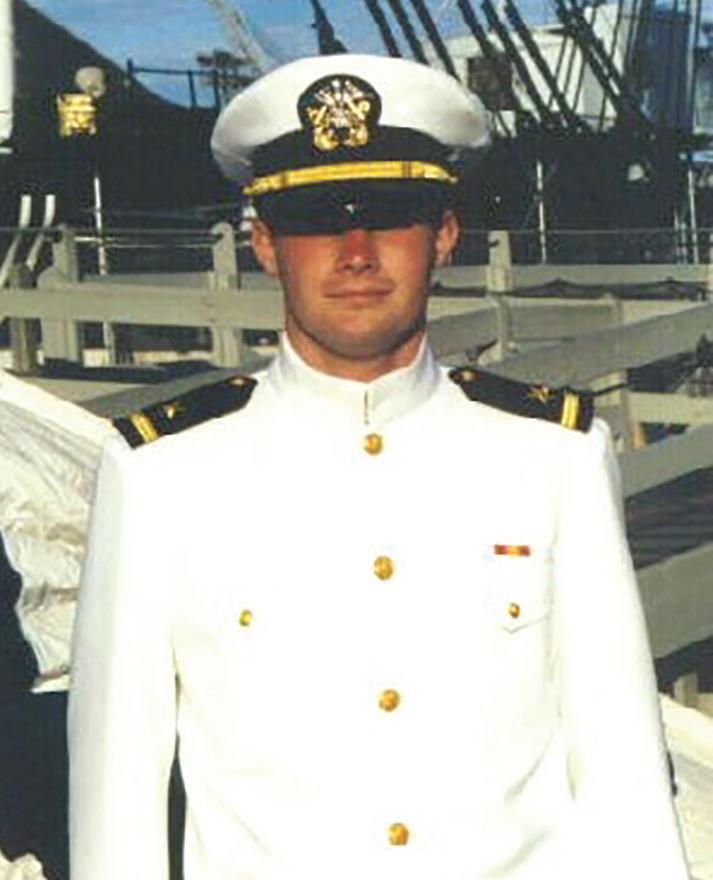
CEO SPECIAL - MICHAEL DALY | GAMING AMERICA |
Daly during his time with the US Navy
Can you spot which officer Daly is here?
MARY’S PLAYBOOK
Stephanie Feeley spoke to Mary Cheeks, President and General Manager of Jamul Casino, about how family guidance and her passion for math
It may not be surprising to learn that Mary Cheeks, now excelling in the roles of President and General Manager of a casino, grew up in Atlantic City. However, though her life and career both started on the East Coast, she is now loving life out west near San Diego. Since 2018, Cheeks has overseen the team, the technology and the rebrand at Jamul Indian Village’s Jamul Casino. Throughout her career, her family has played a large role in nurturing her passions and supporting both her development and trajectory, and today, Cheeks makes sure she has “the whole family saying it right,” when it comes to the name of the casino in her capable hands. She told Gaming America, “It’s not ‘Jah-mool,’ it’s ‘Hah-mool.’ Just replace that ‘J’ with an ‘H.’”
Though Jamul Casino is owned by the Jamul Indian Village, under the direction of Tribal Chairwoman Erica M. Pinto, Cheeks oversees casino operations with a great respect for Tribal values. An influential factor that made Cheeks want to become President of Jamul Casino was, “the Tribe’s support and their caring and understanding of the business model.” Cheeks said she “lives and breathes that.”
THE FAMILY ACCOUNTANT
Prior to beginning her role at Jamul in 2018, Cheeks had already gathered nearly 30 years’ worth of experience in finance and casino management. “I started at age two!” she quipped, when reminded of this fact. Realistically, however, her love for finance and accounting did indeed start early in childhood. Cheeks said, “I believe it was age nine. I’ve always been good with math, numbers, money. My dad would always let me count his pocket change – any lump sum of money – and he would refer to me as the family accountant.” Though her father passed away when Cheeks was 15 years old, when the time came to choose a college major a few years later, she of course went into accounting.
Executives who find themselves in the casino industry don’t always start out in the field of gaming, or know where the dice will
ultimately fall. At this point in her life, Cheeks had her mind set to work on Wall Street. Although, after applying for internships in a competitive pool of candidates during her junior year at the College of New Jersey Trenton, Cheeks was not selected by an investment banking firm. Instead, she was chosen to complete an internship with the Internal Revenue Service (IRS). Cheeks recalled how she felt at the time, saying, “I was a little disappointed, but of course it was a résumé to be built and experience to be achieved. I took full-time employment there after graduation, but it just wasn’t my niche.”
For someone who initially yearned to be right in the middle of the fast-paced world of Wall Street, Cheeks admitted working with the IRS was “slow moving.” Her mother’s influence managed to inform Cheeks’ next steps. The seed of working within the casino industry was planted by her mother’s desire to have her daughter close by. “My mom always wanted me to come back to Atlantic City, and I just didn’t know about the casinos and how my degree in accounting would fit into it,” Cheeks said.
Her initial move back to the bright lights of Atlantic City took her to a few less vibrant roles in nonprofit accounting. Yet, for Cheeks, nonprofit accounting was “almost as unenjoyable as the IRS.” It’s clear from one conversation with Cheeks that her energy and drive were meant for other things. She told her mother she’d try a career within the casino industry and became an Internal Audit Supervisor. Just saying the name of her first industry role seemed to bring back good memories. Cheeks smiled as she recounted, “In Internal Audit, you touch every aspect of the casino – operationally and compliance-wise. I fell in love with it.”
GETTING TO THE TOP SPOT
Cheeks no longer had her sights on Wall Street, but instead upon climbing the ladder within the gaming industry, which she maintains is also the hospitality industry at heart. As well as creating the right atmosphere for casino guests, Cheeks loved
38 | GAMINGAMERICA GAMING AMERICA | CEO SPECIAL - MARY CHEEKS
led to always putting her team and guests ‘FIRST.’
MARY CHEEKS



















































the challenge of overseeing “literally 30-45 departments under one roof” and the rush that came from problem solving in such a unique industry. She progressed from Internal Audit Supervisor, to Controller, to Director of Finance, to eventually CFO of Harrah’s and Showboat Atlantic City by the year 2006. Later, that ‘Rush’ would become literal.
In her explanation of how the industry is run, Cheeks couldn’t help but interject her own personal fervor. She said, “The way the career track is set up in the casino industry, you have your Head of Finance, Head of Marketing and Head of Gaming – always aspiring to be the General Manager, the top spot. When it came to Assistant General Manager, I had
no desire; I wanted the top spot.”


Harrah’s, now known to the gaming industry as part of the larger empire, Caesars Entertainment, didn’t seem like the right place for Cheeks to enact her grand plans. “I went with a small, regional company, which was Rush Street, to achieve that ultimate goal,” she said. Her goal eventually became reality. She served as SVP and CFO of SugarHouse Philadelphia Casino and Rivers Pittsburgh Casino through Rush Street operations, reporting directly to the CEO.
As she continued to advance, she aimed to personalize her approach to management and leave her unique mark on the industry. “I enjoy people, and I have a certain business

model in my head that I always wanted to not play with the playbook, but to have Mary’s Playbook. Let me loose, and let me do what I do. Rush Street afforded me that privilege.” As part of her roles within Rush Street casinos, she was also instrumental in helping the company achieve the highest customer service ratings in all of its gaming venues at the time.
But to Cheeks, the word “customer” isn’t the right terminology for whom the industry serves. “We don’t refer to them as ‘customers’,” she said of her approach within her current team. “We make sure everybody’s lingo is ‘guests,’ because we’re, of course, welcoming them into our house –and we’re entertaining!” It may seem like an obvious choice in wording, especially when considering the fact that a casino and its dealers are often referred to as ‘the house’ during every table game, but Cheeks aims to cater to all who visit Jamul. She added, “Not everyone’s a gambler. You might want to listen to a band, or dine, or just socialize with friends in the hospitality environment.”
Cheeks attained the rank of General Manager in 2015 as part of the team at Rivers Casino & Resort in Schenectady, New York. From then on, Cheeks fell in love with another aspect of the casino industry: Tribal gaming.
HOORAY FOR JAMUL







When Cheeks moved to Jamul Casino in 2018, it was still under the name Hollywood Casino and ripe for the opportunity to rebrand. Though Hollywood was in the past, San Diego and Jamul were in Cheeks’ future. In New York, Tribal gaming was part of the competition, but according to Cheeks, Jamul is special. “This is a place where the Tribe loves its team, and it cares about people deeply. To me, the success in any business (and the best business model) is about your team – because that’s who runs the day-to-day business.”

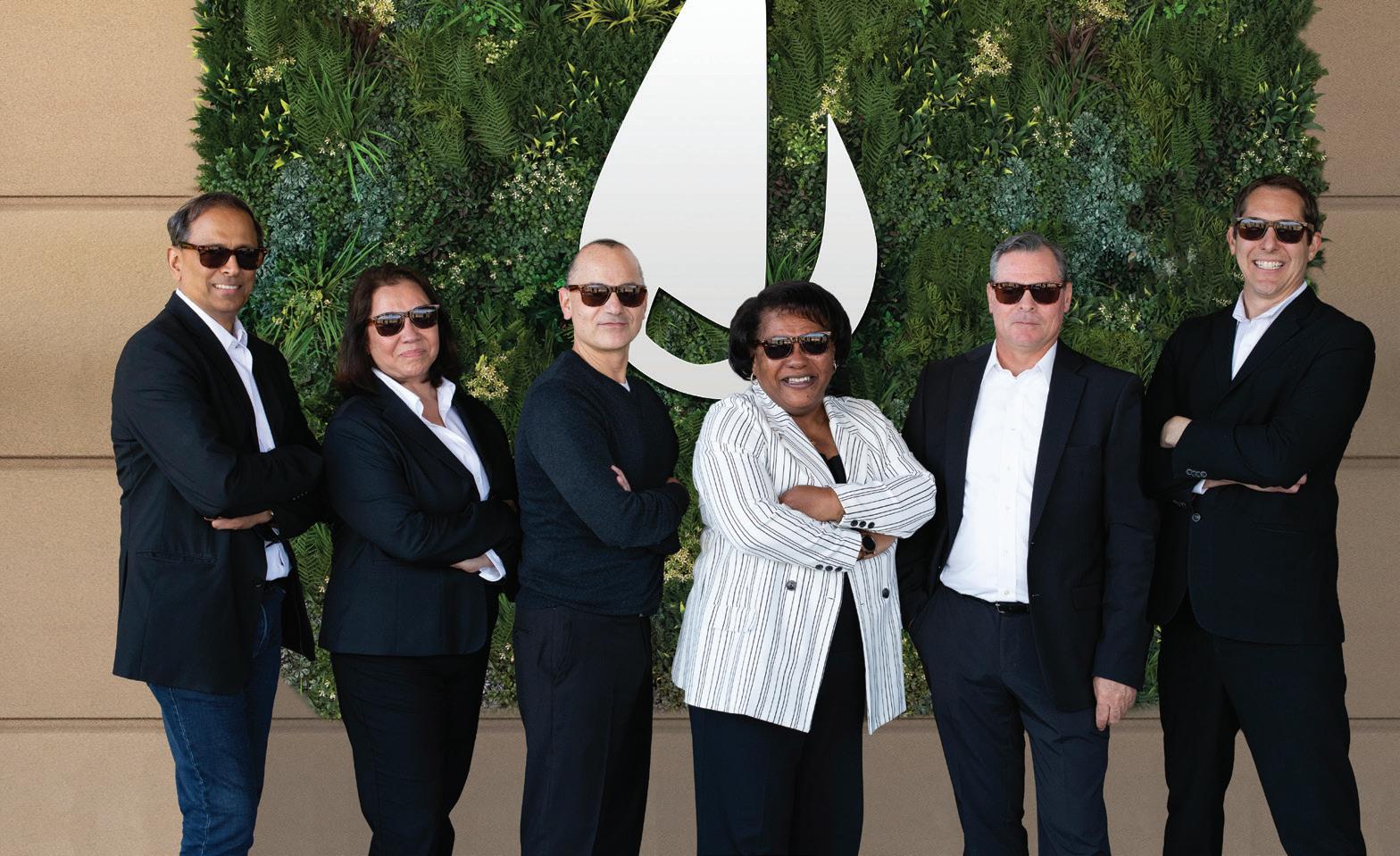
Though by now everyone is pronouncing Jamul perfectly, you may not know that the English translation of the Kumeyaay word is, “sweet water.” Jamul Casino offers Sweetwater Rewards as its loyalty program,

40 | GAMINGAMERICA
GAMING AMERICA | CEO SPECIAL - MARY CHEEKS
Cheeks poses with the Jamul Casino executive team
“IN THE GAMING INDUSTRY, THERE ARE VAST OPPORTUNITIES, LIKE I’VE NEVER SEEN, IF YOU’RE COMMITTED, YOU WANT TO LEARN, YOU SET YOUR GOALS AND YOU BENCHMARK HOW YOU’RE GOING TO ACHIEVE THEM.” YOU’RE GOING TO ACHIEVE THEM.”









as a nod to its Tribal culture. The Jamul Casino website boasts, “Fun! Above all else,” as its slogan, which prompted questions from Gaming America about the company’s culture, too. When asked about what the daily environment is like at Jamul, Cheeks recited a company mnemonic used in Jamul’s overall approach: FIRST. “Our culture is driven by our core values: Fun, Integrity, Respect, Service and Team. Those five things have to be part of, or evolve, in everything we do.”

Cheeks’ commitment to hospitality extends throughout Jamul Casino and the way her team interacts with each other, not just with welcomed guests. As an example, team members are expected to acknowledge each other when they go past one another within the facility, “just as you would acknowledge your guests,” says Cheeks. “You treat your team members just as you treat your guests; it’s wildly successful.”
What Cheeks said next was a surprising revelation of how a difficult situation can either make or break a strong team. According to Cheeks, “what really boosted that whole culture was Covid.” The Covid-19 pandemic is usually seen by the gaming, and overall hospitality, industry as a dark spot in their records; how can productivity and morale be up when everything else is locked down? Cheeks, of course, made reference to the difficult time the pandemic was for everyone, including the people of Jamul and the overarching gaming industry, but spoke proudly of the way she and the Tribe were able to maintain both their business and their team.
“Whereas my counterparts and business associates tried to advise that we had to lay people off, or that various levels needed to take a reduction in salary to keep the business going, the Tribe advised me that the directive was: we don’t want to lay off anybody.” For a people person,



as well as an accountant, the pandemic presented a Herculean set of obstacles as Cheeks worked to keep the casino running smoothly. She briefly put herself back in those times, asking herself, “How do we keep the business thriving?” Looking back with some perspective, she then said, “That’s a hard ask when you have no revenue coming in, but we figured it out. Worrying about the health and safety of our team members and our guests, and changing the whole business model really turned the tide for the newest casino in San Diego County.”
Jobs that other companies were outsourcing during lockdown closures were now responsibilities that the internal Jamul team took on together. Everything down to the cleaning of the facility was completed by the Jamul staff’s teamwork. Cheeks said, “Every aspect to get ready for opening: we tasked our team members and trained them to do so.” The team responded well, embracing the care taken by both Cheeks and the Tribe, and their hard work did not go unnoticed. Cheeks stated that Jamul Casino managed to “successfully shift the market share” during the most unpredictable time for the industry. The wider community also took note of Cheeks’ attitudes and leadership during an especially difficult time, naming her San Diego Business Journal’s Business Woman of the Year in 2021. Cheeks gratefully reflected, “That Covid policy, and treatment of our team and our guests, really led me to winning that award.”
STAYING ON HER GAME






In the current day-to-day operations of Jamul, Cheeks has been responsible for, not only the human aspects of casino management, but also the implementation of the venue’s casino management system (CMS). She brought the Konami CMS that was used in her days with Rush Street over
to Jamul, but commented that the biggest change she’s seen in the industry overall has been the advance in available technology. Cheeks said, “When I first started as the Internal Audit Supervisor, we had a hard count and a soft count, because coins still went into the slot machines. Then we had ticket-in-ticket-out, then the casino management systems evolved – to where you didn’t need a separate player-tracking system, slots system, table game system – all of that integrated into a CMS. I like to say it’s a world of technology.”
Cheeks immerses herself in the world of casino technology in a different way during the annual Global Gaming Expo (G2E) in Las Vegas. She has the opportunity to try out games and treat herself to a few rounds of craps. This undoubtedly gives her insight into what her guests enjoy, and why they choose the specific games they play. Cheeks explained that craps is her usual game of choice because, “With craps, you really have to stay on your game and watch the bet and the payoffs. It’s really fast moving, and I enjoy that.” With everything in her life driven by a penchant for numbers and fast-paced learning, it makes sense that Cheeks would delight in applying the focus and strategies needed to increase her odds. “It’s the hardest game to learn, from a dealer’s perspective,” she added. But Cheeks admitted that, when she wants to relax and have a drink, she plays slot games too.
For the self-professed workaholic, sharing what she enjoys in her spare time outside of work was the question she originally said was the hardest to answer. “I just love what I do,” she grinned. “When you love what you do, it’s not work.” Other than enjoying her industry’s creations and getting in on the game at G2E each year, Cheeks paused to think about how she spends her time outside of the casino. “What do I do for fun?” she asked herself with a laugh. “I’m a workaholic, so I don’t have a lot of spare time. When I do have it, I mostly spend it with family.”
Though neither her son nor daughter have followed in their mother’s footsteps to take on a role within the gaming industry, Cheeks’
GAMING AMERICA | CEO SPECIAL - MARY CHEEKS
42 | GAMINGAMERICA
YOU MUST CARE ABOUT PEOPLE. YOU NEED TO HUMBLE YOURSELF. YOU CAN’T GO IN SAYING, ‘I KNOW IT ALL.'
28-year-old son still lives in Atlantic City, and her 30-year-old daughter moved with her to California. “The children say the casino business is too much hard work; they don’t have the energy that mom has,” Cheeks laughed. Her son, however, did inherit his mother’s aptitude for math.
When Cheeks is not at Jamul, she and her daughter spend cozy days and nights in together, and like to order new foods to try. Due to her daughter’s preferences, the two try all the vegan options the city’s delivery services have to offer, except for when Cheeks can declare a “cheat night.” Cheeks’ daughter is also known to bring the local pets over for visits. She says though the two don’t have any pets of their own, they might as well. “I keep saying to my daughter, ‘When are you going to get married and give me grandkids?’ And she says, ‘I’ll give you a dog or cat’.” Cheeks is always warm and convivial, even outside of the hospitality industry. It doesn’t matter if her visitors aren’t human, they’re still treated as welcomed guests.
Though Cheeks admitted she is waiting to be an “empty-nester,” she said her daughter “has become her bestie,” and that not only spending time together in person, but also FaceTiming with family on the East Coast is what is important to her when she’s not at Jamul.
CONTINUING TO EVOLVE






Jamul Casino is a boutique gaming venue, on six acres, and Cheeks is looking forward to the addition of a hotel. According to plans released in May this year, the property will gain a 16-story hotel, featuring 200 guest rooms, 52 suites, a 4,800-square-foot restaurant, a full-service spa, salon, fitness center and rooftop pool deck, among other amenities. Cheeks shared her excitement about the luxury hotel, saying she can’t wait for it to open. “Not to let too many of the plans out, but I’m going to run this hotel very differently to a typical hotel casino model. It’s going to be very quaint, very relatable to what guests’ personal preferences are.”

Cheeks has been doing her best to relate to guests and listen to their experiences and preferences long before the planned
upgrade. She recalled a moment, about two years after she began working at Jamul, where a guest admitted to her that they hated waiting in lines. “I said, ‘Oh, would you rather be texted when it’s your turn?’ And we started a whole text system.” Cheeks places critical value on listening to and nurturing the ideas of not only her team, but her guests.
Especially for someone who didn’t originally intend to work within either the casino or hospitality sector, Cheeks seems to have found her calling. After reaching the top herself, Jamul’s President was wholly encouraging about how much room there is for other people to make a difference and progress within the industry, too. “In the gaming industry, there are vast opportunities, like I’ve never seen, if you’re committed, you want to learn, you set your goals and
you benchmark how you’re going to achieve them.”

In terms of being a President/CEO and managing a large company, Cheeks says, “You must care about people. You need to humble yourself. You can’t go in saying, ‘I know it all.’” Every part of her approach leads back to her hospitable nature, and all of the ideas and plans for the improvement of the overall Jamul experience continue to fill the metaphorical pages of Mary’s Playbook. Cheeks maintains that, although sometimes she may think she knows it all, she’d never display that. Every day is still a learning experience for her, where she seeks to take on insights from both her team and her guests. “Talking to people, and learning what they desire in their form of entertainment, helps the business grow and helps yourself evolve. And the business is doing very well.”

GAMINGAMERICA | 43 CEO SPECIAL - MARY CHEEKS | GAMING AMERICA
Cheeks holding a local business award
THE HUMAN ELEMENT
Foxwoods Resort Casino President & CEO Jason Guyot speaks to Tim Poole about the joys – and challenges – of running a Tribal property. Not just any property, mind you – but a 9 million square-foot casino resort owned by the very Mashantucket Pequot Tribe Guyot is a member of.
A CEO, naturally, needs a well-rounded skill set. There are financial responsibilities, public relations responsibilities, operational responsibilities – and no shortage of crisis management responsibilities. But, arguably above all else, a CEO must deal with the human element of any organization. And that is perhaps no more apt than at a Tribal casino property, where players and employees alike can be considered family, and where the success of the business is intrinsically linked to the welfare of the Tribe.
For Jason Guyot, Foxwoods Resort Casino President & CEO, the human touch is more applicable than for most. Guyot’s background to over 20 years at Foxwoods in Connecticut is a HR one. Starting out with the property in March 2003, Guyot’s journey since has focused heavily on people – to the point where the CEO concludes that “team members are the most important aspect of our business.” He tells Gaming America, “It's interesting when I talk to a lot of CEOs about their careers. We tend to always end up in the operation somewhere, whether you start out as a frontline cook, as a host or as a front desk agent. When you start in HR, I think it's that drive and interest. I was always so intrigued with every aspect of the business. While I was in HR early in my career, I did a lot of research on different departments, to help with recruitment and understanding their policies and procedures; understanding that bridge between HR function, employment and the longer-term success of the operation.
“I do think it helps me a lot. I don’t know if it necessarily gives me a leg up on any CEOs, because they’ve all been cut from different aspects of the business. But I definitely value that time in my career. It has allowed me much more of a focus on the team members, specifically the employment process, retention and, really, just the way I want our team members to feel while they’re here at Foxwoods. I always say I want the team to feel comfortable, valued and important every day they walk through these doors. That’s still something I started early in my career and it drives me to this day. If we’re not accomplishing that, from a senior executive level or from a morale perspective, then we need to take a hard look at what we’re doing.”
20 YEARS IN 20 MINUTES
Geographically speaking, although Guyot’s journey has seen so much progression since he joined Foxwoods in 2003, he did not actually start out very far from the casino. In fact, during its grand opening in 1992, Guyot lived only 20 minutes away – in a small nearby town. Indeed, he grew up in the local area and is himself a member of the Mashantucket Pequot Tribe. Having attended the grand opening, Guyot grew up “very aware” of the casino. Even at a young age, he says he always had interest in that type of business, working as a bellhop as a teenager – gaining a summer’s experience as a “first real opportunity to understand what hospitality was.” It was a summer job Guyot “really loved” –an experience that influenced his thinking upon graduation. Completing a degree in behavioral science at Mitchell College in New London, the question that now faced him was: what should he do next?
Guyot initially thought he would go into social work or something similar. But, after a thorough job search, the HR department at Foxwoods came calling – and he felt “fortunate” to secure a role managing employment and diversity at the casino resort. This was his entry point to the business and the start of an upward trajectory, one that saw him first rise to Director of Employment and then embark on his next opportunity during a grand expansion at the property. The opening of the Fox Tower –which included around 800 hotel rooms, five restaurants, a 4,000seat theater and a 60,000 square-foot gaming floor – saw heavy involvement from Guyot. Here, he took the chance to move from human resources to become Director of Operations and Shared Services in late 2007, overseeing the whole development.
THE ONLY WAY IS UP
Guyot tells Gaming America that the Fox Tower opening “really thrust me directly into operations and pre-opening. At that time, I had oversight of the HR functions at the Fox Tower along with several other operational front line departments, including oversight of the final stages of construction,” he continues.

44 | GAMINGAMERICA GAMING AMERICA | CEO SPECIAL – JASON GUYOT
JASON GUYOT





















































“We were working with Tutor Perini and Bertino & Associates. So, like I said, it thrust me right into pre-opening and operations – and I loved it. I had always wanted to get into operations, but never knew when that opportunity was going to present itself. In the end, it did just by circumstance; I actually went to Las Vegas to do a review of policies and procedures for one of our partners. At the time, we were opening that side of the resort and I went with the General Manager we had hired to open the Fox Tower.”



That General Manager was Gillian Murphy, someone Guyot explains ended up becoming one of his mentors; not least because, upon their return, Murphy offered Guyot a position to work directly for her. “You never know” when such opportunities present themselves, so the exec “obviously jumped” at the chance. For a Tribe of 1,000 members, Guyot was pleasantly surprised to know someone within that Tribe who was equally passionate about the business and able to help him progress. “If you compare it to a family-run business, how often do the children or other people in the family take over that business? It’s kind of rare but definitely something I enjoyed. That allowed me that first opportunity to dive into operations and really set my career on track to end up where I am now, several years later.”
LONG-TERM RESTRUCTURING




































When Guyot was eventually named











































Foxwoods Resort Casino CEO – on an interim basis at first, in April 2020 – the executive was faced with a rather unusual first few months on the job. Much like for Mary Cheeks and Jonathan Jossel, the other interviewees in our CEO Special who lead individual properties, those months saw no customers, no hospitality and no gaming. Instead, while Foxwoods was closed due to the Covid-19 pandemic, Guyot’s focus was on restructuring the “entire organization” to build for the long term – and ensure the property could spring back into action as soon as it was allowed to reopen for business. Indeed, when Guyot was asked to step in as Interim President and CEO, it was the first time in its history that the Foxwoods resort had ever been closed – a “challenge in itself.”


































































That closure lasted just over three months, affecting 5,000 employees and ensuring Guyot’s every decision as Interim CEO had to focus on the future. Unprecedented scenarios for a Foxwoods CEO included figuring out how to bring back the property’s best team members and calculating ways to operate more efficiently.










For Guyot, though, the pandemic was not the only consideration. On top of Covid-19, the Mashantucket Pequot Tribe knew it was going to face another challenge in the shape of new competition, with gaming in nearby Massachusetts – among other states –seeing a greater range of options for players. These factors threw Guyot in at the deep end, as the CEO role already brings with it “a lot of added pressure.” But for someone who had already been at the property for almost two decades, and himself a member of the Tribe, Guyot was determined to ensure as smooth a transition as possible. “I already had a lot of responsibility at that time as SVP of Resort Operations and overseeing development,” he explains. “I had strong relationships and knew how the operation functioned. We had an idea of where we felt challenges were, and so we were able to jump right in with those relationships and understanding. Obviously, there was a lot of added responsibility and we were being looked up to by the team to provide answers. So that was definitely a change but one that we welcomed.”

GAMING AMERICA | CEO SPECIAL – JASON GUYOT
Foxwoods Resort Casino
46 | GAMINGAMERICA
THIS IS MY HOME AND THIS IS OUR TRIBE. SO ANYTHING WE DECIDE TO DO IS NOT BASED ON A SHORTTERM RETURN. IT’S GOING TO BE BASED ON LONG-TERM RESULTS.






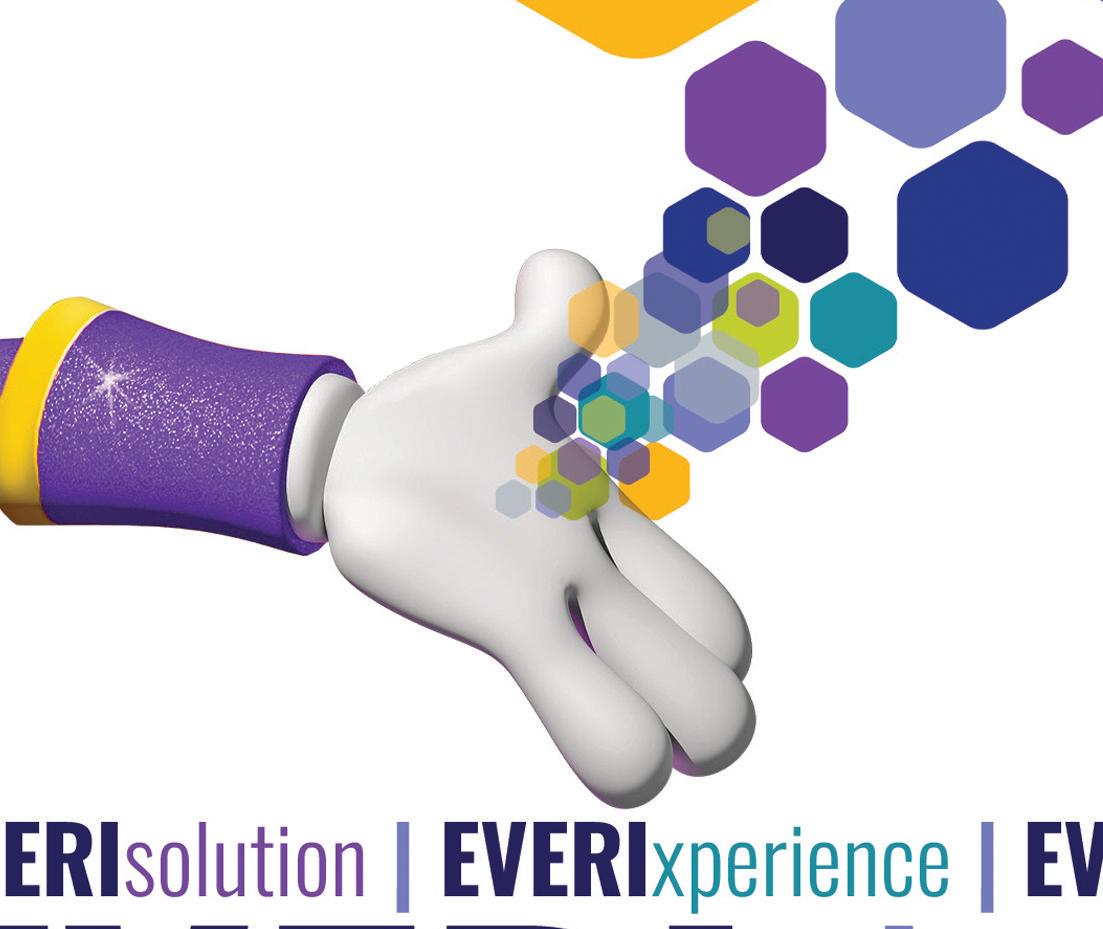



Guyot is eager to add that the “seasoned team” at Foxwoods – one the property continues to have – was a great help. “This is not an organization where any one individual can make that change. It takes a team effort. And I think the relationships I had, and how quickly we got the team on board with our new direction, really helped that transition. It's all about inspiring the team, making decisions that are in the best interest of the Tribe and for the future. I think we’ve got everyone on board and continue to try to do that on a day-to-day basis.”
RENOVATING TO INNOVATE





That spirit of change did not cease after Guyot’s debut at the helm. In March 2021, he was named President & CEO on a permanent basis and, to this day, redevelopments at Foxwoods Resort Casino persist. The pandemic period of closure allowed Guyot and the wider Foxwoods team to “take a hard look” at their overall property footprint. At over nine million square feet, the CEO points out that it is one of the planet’s largest casinos. In growing so quickly, however, and as the result of a “fast-paced rush to expand in 1992 and moving through the mid-2000s,” the resort was “disjointed in places.” Some difficult reflection was required as to how Foxwoods could be so large in size but so challenging to operate profitably over the years.
“How can we really look to somewhat condense the footprint but expand the amenities within that operating footprint?”




Guyot asks out loud. Finding the answer to that question has been one of his primary focuses ever since, driving the many resort updates and modernizations that have followed. “We look at the competition that’s come in,” he says. “In 1992 we were one of three jurisdictions with gaming. It was Las Vegas, Atlantic City and Foxwoods. Now we’re surrounded by four states that all have major gaming players and they’re all opening with similar amenities. They have slots, table games, restaurants, entertainment and basically the same amenities. But what we have here to leverage is the square footage. We have our location directly between New York and Boston – there are over 30 million people there. So how can we compete in the future?”
Turning those nine million square feet into a fully integrated resort destination became a key focus – particularly for the past 18-24 months (2021-2023). Guyot says $80m and counting has been invested back into the property. Projects have included opening a new high-stakes bingo arena, bringing in celebrity chefs like Gordon Ramsay, opening a new player lounge and updating the property’s Asian food offering with the Golden Dragon – all with the aim of creating a “dynamic hub of activity.” Many projects are still upcoming, with the brand new Pequot Woodlands Casino set to open adjacent to Gordon Ramsay Hell's Kitchen (which itself only recently opened), alongside a new high-limit area, more table games and a greater volume of slot machines – all at the center of the property.
FAMILY FIRST
Guyot also singles out a “landmark deal” struck with Great Wolf Lodge, a chain of indoor water parks that is opening a brand new lodge in March 2025. It will bring to Mashantucket (adjacent to Foxwoods) a 90-square-foot indoor water park, a 60,000foot indoor family entertainment center and an additional 550 hotel rooms. Guyot describes it as a “game changer” for driving new demographics to the property and evolving Foxwoods in its quest to become the “greatest integrated resort destination in the Northeast.”
And that family theme is not just restricted to Foxwoods customers. When Gaming America asks Guyot about the differences between running a Tribal property and an equivalent job in commercial gaming, the CEO is keen to discuss the “family-run” nature of the organization. “I think it’s unique for me,” he says, “being the first Tribal member to become CEO here at Foxwoods. That’s unique in itself and this is a familyowned business. It is much different to a lot of corporations and other, better-known regional corporate gaming entities.”
Foxwoods’ Tribal heritage does, though, bring with it added weight in other areas. The Tribe will “always be here.” As Guyot explains, “This is our reservation and we’re never going to leave.” Even if there is expansion, Foxwoods in Mashantucket Pequot will always remain – the driving force behind so many decisions the Tribe makes on a daily basis. This, however, adds “a lot more thought and pressure to some of our decision,” Guyot admits. “This is my home and this is our Tribe. So anything we decide to do is not based on a short-term return. It’s going to be based on long-term results.”
At the same time, Guyot believes working for a Tribal-owned business allows for a far quicker decision-making process. The President & CEO reports to a sevenmember Tribal Council – one he feels is “very supportive.” The Council meets on a regular basis and is the final decision maker for Guyot and Foxwoods’ senior team. “So if we have plans to renovate or enhance areas of the property, we can go directly into our Council, state our case and why we feel like
48 | GAMINGAMERICA GAMING AMERICA | CEO SPECIAL – JASON GUYOT
WE ALWAYS TALK ABOUT ALL OF OUR TEAM BEING PART OF A LARGER FOXWOODS FAMILY AND PART OF THE TRIBE. SO THOSE ARE THINGS THAT KEEP ME UP, THINKING ABOUT HOW I CAN PROVIDE STABILITY, AND BALANCE THAT WITH REVENUES AND THE PROFITABILITY OF THE RESORT.
it’s a good way to spend our capital dollars; we can get immediate buy in or feedback. And I think that’s not something you see in a lot of larger organizations – the ability to move that quickly. We would say this Council have been extremely supportive through the most challenging times in our history, going through a Covid-19 shutdown, not knowing what the future was going to be, not knowing if we were even going to open again. Getting through that with our Council and our team has really forged a bond, and a level of trust that’s hard to duplicate. I still appreciate that to this day, as does the rest of our senior team.”
“CONNECTICUT’S SUCCESS IS OUR SUCCESS”





Away from the boardroom, and away from the playing tables at Foxwoods, Guyot is heavily involved with the Mashantucket Pequot Tribe and local community. He sits on several Boards, such as the Connecticut Restaurant Association, the Special Olympics Connecticut and the Connecticut Business & Industry Association. Guyot is also part of the Board at his alma mater, Mitchell College, as well as the Connecticut Office of Tourism. “I try to make sure I’m involved in all of these different areas, not only for Foxwoods and the future of the Tribe, but also the future success of Connecticut,” he says. “Because Connecticut’s success is our success, and I think it’s going to remain a very important piece of what we do here and what’s important to me.”

This is a message and mentality Guyot spreads to his senior team, with several of them following suit and joining various Boards to increase their involvement with the community. “I just don’t think you could ever do enough. Me sitting on five or six Boards is a lot and it adds a lot of time. But there are a lot of positives that come from that and understanding the challenges of other businesses. For example, understanding opportunities on the restaurant side, understanding how we can drive more tourism to Connecticut and bolster the economy, which will only benefit Foxwoods and the Tribe longer term. Those are probably what take up
most of my time outside the property. And I feel like I get the most value out of just meeting with other business owners and discussing ways we can improve our business, and improve the economy.”

BACK TO THE FUTURE

As our conversation with Guyot draws to a close, the CEO’s passion for developing the Mashantucket Pequot Tribe in a sustainable fashion returns to the fore. He wants Foxwoods to form a “long-term foundation” for future generations and Tribal members that are relying on the property as a source of economic stability. Although, as Guyot has already explained, that “weighs a little bit heavier,” the executive still places a high value on having “great morale” and “treating team members right.” These goals are aided by the many developments currently in progress at Foxwoods – such as the aforementioned Great Wolf Lodge, the Lake of Isles golf course and further potential opportunities at the 1,200 acres of land that surround Foxwoods. With all this in mind, Guyot believes Foxwoods is on its way to achieving his goal of creating the Northeast’s
greatest integrated resort destination – but he knows “a lot more” work remains.


To attain that success – and create the optimum conditions for the work that will get Foxwoods there – Guyot emphasizes the “stability” of the property’s team members. “When we talk about how unstable the economy has been, I think team members in all businesses, specifically hospitality, have been hit extremely hard,” Guyot states. “Thinking about the way they feel and how they can live their lives and really flourish, given those challenges, is something that occupies me. I talk to our executive team all the time about what changes we can implement to make it a more enjoyable place for our team to work – so that they can raise their families and have an enjoyable life.”
It is perhaps fair to say Guyot’s roots in human resources come into play one last time, as the executive concludes, “We always talk about all of our team being part of a larger Foxwoods family and part of the Tribe. So those are things that keep me up, thinking about how I can provide stability, and balance that with revenues and the profitability of the resort.”
CEO SPECIAL – JASON GUYOT | GAMING AMERICA
GAMINGAMERICA | 49
Jason Guyot, President & CEO, Foxwoods Resort Casino
Protecting Tribal assets
Few people have the sense of self and purpose to know exactly where their careers will take them. However, for E. Sequoyah Simermeyer, his deep roots in the community grew into an opportunity he had always hoped for. The Chairman of the National Indian Gaming Commission (NIGC) has always wanted to show his dedication to, and inspiration from, his greater Tribal community, to provide protection, governance and everlasting support for his people. As an active member of the Coharie Tribe, based in the eastern part of North Carolina, Simermeyer had the chance to immerse himself in the culture, customs and guidance that shaped him as both a person and a regulator. His formative years created such a strong bond between the Chairman and the people he would eventually serve that Simermeyer told Gaming America, “I really I think I knew as a native person, through my own experiences and interactions with other Tribal communities, that I always wanted to try to work on behalf of, or work with, Tribal governments.”
BUILDING ON TRADITION
Simermeyer comes from a large family, which spans from where the Coharie Tribe resides in North Carolina, to the southwestern United States in smaller, Hispanic communities based in northern New Mexico and southern Colorado. His family moved from the Southwest to the East Coast when he was young, where he grew up as part of the Baltimore Indian community, but also frequently took trips down to the Coharie Tribe’s events. Simermeyer said, “I was fortunate, in my experience growing up, to not only be close to my community in North Carolina and participate culturally with my family there in our activities and events, but also to be close to other Tribes on the East Coast and urban Indian communities as well.” The autumn is a special, busy time of year for the Coharie Tribe. Simermeyer said some of his earliest experiences as a Coharie person were participating in annual fall gatherings; this September, he will take his children to the same events he loved as a boy.
He spoke fondly of the Coharie Tribal festivities planned each year, saying, “There’s a pow wow included, and some other
cultural events. I also participated in a lacrosse exhibition as a young person. Lacrosse is a traditional game for a lot of Tribal communities.” When it came to wanting to represent his Tribe as part of his future career, the traditional, yearly gathering was incredibly influential. “I think it really underscored for me the importance of the values in my own community: the importance of the strength and the role of family in reiterating leadership, and in developing perspectives on how you approach responsibilities and opportunities in your life.”
The desire to embody the spirit of his community led Simermeyer to achieve a Bachelor of Arts in Environmental Studies from Dartmouth College, then a Master of Environmental Law and Policy from Vermont Law and Graduate School, and finally a Juris Doctor from Cornell Law School. Before he became part of the NIGC, Simermeyer said, “Earlier in my academic career I focused on environmental studies and chemistry, and I wanted to play a role in trying to help Tribal governments be stewards of the resources that are important to Tribal communities’ own identity and place.” Some of the people Simermeyer had the opportunity to learn from during his education and early life were the Tribal elders, who placed importance on the preservation of natural elements that have always been part of the Tribe’s native geography and home. He explained, “ There are two main river systems that make up our territory and our lands; one is the Black River and one is the Coharie River. There have been a lot of elders who have been persistent over many years and been able to help manage or restore the quality of those systems.”
After law school, Simermeyer worked with a nonprofit organization called the National Congress of American Indians. There, he had the opportunity to lead the state-Tribal relations project, which “looked to develop relationships and collaboration opportunities between state lawmakers and Tribal leaders.” He also spent time working on projects with the United Nations Organization of American States to develop a declaration on the rights of indigenous peoples. Moving to a federal role, Simermeyer was part of a team that responded
50 | GAMINGAMERICA GAMING AMERICA | CEO SPECIAL - SEQUOYAH SIMERMEYER
In a conversation with Gaming America, E. Sequoyah Simermeyer discusses the steps that took him from an appreciation of Tribal government and values, to a career based firmly around them.
E. SEQUOYAH










| GAMING AMERICA SIMERMEYER
to concerns and challenges faced by Tribal leaders, with the aim of addressing how they could best lead their communities. He also gained perspective on a lawmaker's role while working as part of a Senate committee, including, “articulating policy objectives, and the role of regulators, which I later had the opportunity to become, and in carrying out and executing those objectives.”
Everything in his career flowed smoothly toward where the NIGC Chairman is today. Though the gaming industry was not yet part of Simermeyer’s plan, his next steps into gaming regulation came from solid foundations in regulatory and governing roles, bolstered by his eye for both detail and the bigger picture. Simermeyer nodded as he said, “I think my background experiences built into the opportunity to be in this unique role of the NIGC.”



MAKING IT OFFICIAL


Simermeyer joined the NIGC in 2015, in an Associate Commissioner role, as


















per an appointment by the Secretary of the Interior. He commented on his start with the organization, “I think a lot of earlier experiences – whether it was through understanding inter-jurisdictional relationships, understanding relationships between Tribal states, knowing the role of federal officials and collaborating with Tribal leadership, or understanding the role of lawmakers and setting policy objectives – really helped when I first came to the commission as a regulator in 2015.” That year was the first opportunity the Chairman had to work within the unique domain of gaming regulation. Even early on, Simermeyer and his colleagues at the NIGC were updating and refining the policy related to categorical exclusions for management agreements, where no construction was involved to “help focus resources and attention on environmental policy issues.”

Simermeyer was soon appointed as the Chairman of the NIGC by the President of the United States in 2019. As part of this role, he oversees the entire “Indian gaming footprint” of a little under 250 Tribal governments, which license about 515 gaming operations on Indian land across 29 states. Simermeyer says each operation ranges in size and age, but it is clear from the way he speaks about his role that every operation is treated with equal care and dutiful regulatory attention. Simermeyer said, “I think it’s important for the NIGC to communicate externally about how we interpret policies and how we anticipate those policies having an impact on operations, as well as for us to understand how Tribal governments are envisioning those operations to grow and evolve in the future. Being consistent in our interpretations is a really important responsibility for a
federal agency like the NIGC.”





As part of his role, the Chairman travels to and visits many of the Tribes within this large gaming footprint. The aim is to make the Commission and the leadership work they do “accessible to and part of” every Tribal community the NIGC serves. Simermeyer doesn’t have a favorite place he’s traveled to, but is continually enthusiastic about the differences he and the other members of the NIGC are able to see in various operations, partnerships and relationships throughout the Indian gaming landscape. Every Tribal government is fundamentally different in both their structures and the roles they play, and every time Simermeyer has the duty to visit a new place within his jurisdiction, it’s always a good experience. Communicating, collaborating and having outreach with the community and stakeholders is very important to the executive. He said, “It’s part of the work we do with our on-theground regional offices as well. Each time I get a chance to visit with the community or to meet with stakeholders, there’s always a new perspective that I learn and a new appreciation for the diversity that’s out there.”

Just like the large variance in Tribal gaming and Tribal governments, Simermeyer says there is no typical day when working with the NIGC. “It’s always been a little bit different, which has made the opportunity really exciting,” he said. As well as spending time gathering data and perspective from various operations throughout Indian Country to anticipate the needs of every Tribal gaming operation the best they can, Simermeyer and his colleagues with the NIGC have been focused on looking internally to operate more efficiently as an organization.

GAMING AMERICA | CEO SPECIAL - SEQUOYAH SIMERMEYER
E. Sequoyah Simermeyer
52 | GAMINGAMERICA
EARLIER IN MY ACADEMIC CAREER I FOCUSED ON ENVIRONMENTAL STUDIES AND CHEMISTRY, AND I WANTED TO PLAY A ROLE IN TRYING TO HELP TRIBAL GOVERNMENTS BE STEWARDS OF THE RESOURCES THAT ARE IMPORTANT TO TRIBAL COMMUNITIES’ OWN IDENTITY AND PLACE.









Parts of each day with the NIGC are dedicated to working with the leadership team, maintaining continuity and working closely together to devise local solutions. The Chairman said being responsive to both what the NIGC, and other Federal agencies involved in gaming, find in Indian Country is also an important part of the work they do.
THE CHANGING LANDSCAPE
One of the areas of the NIGC’s focus, which came into much clearer view during Simermeyer’s first years as Chair, was the necessity of being prepared. Risk mitigation, though always a crucial part of the organization’s work, shifted from hypothetical planning around any potential natural disaster, to action plans for Tribes and their gaming operations during the Covid-19 pandemic. Appointed Chair in 2019, Simermeyer ran the organization for only one pre-Covid year before both preparation and risk took on entirely new meanings. “The challenges were to work with Tribal governments to help articulate what their objectives and policies were going to be, in relation to their gaming operations,” Simermeyer said of the work initially, adding, “Soon after that, it grew into the pandemic and really underscored the role the agency can play in terms of supporting Tribes to develop their approach, to having standards in place to protect the environment, public health and the safety of the operations and employees.”
The NIGC has consulted with Tribes to shape how the Commission has looked at eight different areas of its regulations, including the completion of new regulations, which provide updated administrative flexibility where possible.
Simermeyer said of the unexpected difficult time, “I’m really grateful that during the last few years the agency has been able to be responsive both to challenges and opportunities from the pandemic, as well as address uncertainties as best we can in technology areas.” Guidance related to public health matters and technology were adopted by Tribes to help both the Commission, and the operations it looks after, navigate the next steps in decision making.
In most discussions Gaming America has had with executives, regulators and lawmakers within the gaming industry this year, the biggest change within gaming isn’t always attributed to the pandemic, but instead to advancements in technology. Communication both within a casino, as well as throughout the regulatory bodies looking after each gaming operation, has changed drastically. Casino management systems integrate all aspects of the gaming floor for dealers and other employees, while the NIGC seeks to streamline and improve regulations for a growing gaming workforce across the country. The issue of cybersecurity also came up as a risk that will only increase in importance when it comes to mitigation. Simermeyer said, “We look for how regulatory bodies can be more effective in the way they’re meeting their responsibilities, including technology, but also including opportunities for lawmakers to reassess. They can look at how their workforce capacity at the regulatory level is able to anticipate and update their own regulations, and their own approach to regulation.”
One of the other milestones Simermeyer will also experience during his term as






NIGC Chairman is the celebration of the Indian Gaming Regulatory Act’s (IGRA) 35th anniversary. Signed into law in October of 1988, IGRA established the entire regulatory structure for Tribal gaming within the US, including the creation of the NIGC and the promotion of gaming as a means for Tribal economic development and self-sufficiency. Simermeyer reflected on the Act’s 35 years by saying, “We are trying to look critically at how a regulatory agency is going to ensure both cognitive operations and institutional knowledge pass on, as we hit these 20, 30, 35, 40-year milestones for a lot of operations.”
Updates to regulations, legislation and documentation are often processes which can take multiple drafts, thorough research and years before they come to fruition. Simermeyer agrees regulators must often be people of a special disposition, as they are able to enjoy those planning stages while keeping a crucial patience and dedication to the cause – which might also explain why he is a referee in his spare time (more on that later). Simermeyer said, “It’s really important to remain focused on the broad mission we have as regulators, which is to protect Tribal assets throughout gaming. The way we’re able to do that is to be thoughtful and try to make the best decision we can with the information. That takes time.”
The Chairman says the Commission has a rather unique role as both a regulatory and federal agency, with an obligation to work in a government-to-government relationship with Tribes. As far as how Simermeyer and the NIGC make the best of that time, he said, “I think it’s important in the way we work methodically through new issues to be mindful of being transparent in the way we rely on earlier interpretations. We must collaborate and communicate with those who are impacted – particularly Tribal leaders – and we recognize the impact potential action might have on their ability to govern and exercise their authority.”


A UNIQUE RELATIONSHIP
IGRA is perhaps the chief difference between Tribal and commercial gaming. For Simermeyer, both IGRA and the pre-existing
54 | GAMINGAMERICA GAMING AMERICA | CEO SPECIAL - SEQUOYAH SIMERMEYER
IT’S REALLY IMPORTANT TO REMAIN FOCUSED ON THE BROAD MISSION WE HAVE AS REGULATORS, WHICH IS TO PROTECT TRIBAL ASSETS THROUGHOUT GAMING. THE WAY WE’RE ABLE TO DO THAT IS TO BE THOUGHTFUL AND TRY TO MAKE THE BEST DECISION WE CAN WITH THE INFORMATION.
case law surrounding Indian gaming in the US established the Tribal gaming industry as “governmental gaming.” IGRA established five specific uses for Tribal gaming revenue as a way to meet a statutory policy objective to improve Tribes’ governing capacity and encourage sustainable, economic growth. This distinct regulatory framework differs from commercial gaming operations, and allows for revenue from Tribal gaming to be used for: funding Tribal government programs, providing for the general welfare of the Tribe and its members, promoting Tribal economic development, donating to charitable organizations and aiding the funding of local government agencies.
Commercial gaming revenue is also often used to fund state programs, like pensions and public education, but revenue taken in by casinos and other commercial for-profit gaming ventures may not be so strictly structured. Simermeyer also noted the inter-jurisdictional relationships necessary between state and Tribal governments for Indian gaming operations to flourish, saying that IGRA’s provision for these relationships “reflects a lot of the unique discussion and debate that was taking place when the Act itself was first passed.” The Chairman added, “Those multiple layers and multi-jurisdictions make Indian gaming highly regulated, like a lot of the gaming industry, but also make it unique, because of Indian gaming having that federal regulatory role with the NIGC.”
Similarities found between the commercial and Tribal gaming industries include the desire to evolve and change as the industry begins to support new types of legalized, regulated gaming. Commercial operators also call for a healthy, regulated market but the role that Tribes play in managing their own opportunities makes a significant difference, as far as Simermeyer is concerned. Though he is the only person in his family to serve a role within the unique space of Tribal gaming, he says an appreciation for the overall Tribal government and culture have always been part of his life. “There’s a lot of inspiration I’ve had from individuals in the Tribe: either who’ve worked in state government leadership, or individuals who’ve been passionate about working to restore our
waterways and our community there.”

When Simermeyer is not maintaining regulations within the gaming industry, he spends his time regulating another kind of game: lacrosse. From elected official to athletic officiant, the Chairman’s childhood sport is still part of his life, but now he’s a referee. “Still regulating, that’s right!” he laughed, “It’s been a great way to stay active in a sport that I really enjoy, and I think outside of the sport itself, it’s a good way to learn to focus on a task and do your best, but know that you always have room to improve.” Also part of Simermeyer’s busy schedule is staying active within the Coharie Tribe. He places importance on community awareness and understanding with his young family, as these values were so important to him while growing up. His family’s favorite thing to do is visiting other relatives and extended family throughout the US.
Simermeyer has three children of his own of “middle school age and younger,” and also mentioned many cousins, aunts and uncles in North Carolina, as well as his wife’s family in Oklahoma, and his mother’s large family – which includes 13 brothers and sisters. It’s clear this sense of family and self translates fully into Simermeyer’s approach, within both regulating and enjoying the operations of the larger Tribal community. He said, “Particularly I have an appreciation
for the sacrifices and efforts my own parents and grandparents have made to really expose me as a young person to my family. I think it’s a way to instill confidence in your identity and what makes you unique as a person – culturally, with your spiritual identity and your relationship and responsibility to serve others.”
As for the service Simermeyer has given during his time at the NIGC, while he has reached the end of his term, he may continue to serve until a successor is appointed. The current Chairman reflected that another aspect of his role is diplomacy. He said, “As a federal entity working with Tribal governments, but also as a regulatory body, it’s important to be diplomatic and transparent, and to have a collaborative approach to be efficient in the way the agency regulates.”
In his role within the NIGC, Simermeyer also states that patience has been more than a virtue, serving as an important and necessary practice for regulators in an everchanging industry. Understanding how Indian gaming will continue to evolve over time is part of Simermeyer’s role now, as much as it will be part of the role of any future Chair. He concluded, “Tribal governments, who are stewards of and pursue gaming, are always looking to protect their sense of what this resource provides for their community.”

GAMINGAMERICA | 55 CEO SPECIAL - SEQUOYAH SIMERMEYER | GAMING AMERICA
Simermeyer at IGA 2023 San Diego
ACTING ON ONE’S BELIEF
Stephanie Feeley spoke to Lynn Valbuena , Tribal Chairwoman
Lynn Valbuena was elected as Tribal Chairwoman of the San Manuel Band of Mission Indians in early 2022, but she has held various elected leadership positions within her Tribe’s government for nearly 50 years. During a video call with Gaming America, the Chairwoman also held two mounted photographs, which hang in her office, and serve as a daily reminder of how far the San Manuel reservation has come since she was a child.
The Chairwoman began the call, and the story of her career, by saying that she grew up on the reservation and saw what it was like firsthand, “all those years ago.” The San Manuel Tribe has experienced countless milestones since Valbuena’s childhood, and the Chairwoman smiled as she shared, “After nearly 50 years of serving my Tribe, I still have a passion for what I do. It just really makes me happy; it’s so amazing what we’ve done.”
Growing up with her mother, father, grandmother and other members of her extended family, the Chairwoman recalled the humble beginnings of the San Manuel Tribe’s reservation. The San Manuel Band is now known throughout its native California, and worldwide, for its generosity, responsible business practices and flagship property, Yaamava’ Resort and Casino.
FROM THE ORANGE GROVES
Before the arrival of European settlers, the Serrano Indians’ ancestral lands encompassed 7 million acres of Southern California. During raids perpetrated against the indigenous people, Santos Manuel, the Tribe's great-great-grandfather and leader of the Yuhaaviatam Clan, escaped with a small populace of his people to the San Bernadino foothills. The San Manuel Band of Mission Indians honors this leader with its present-day name, and was recognized by the US Government as a sovereign nation in 1891. However, after failed federal initiatives and times of struggle, Tribes were finally given more capacity to self-govern in 1934 due to the Indian Reorganization Act. During Chairwoman Valbuena’s lifetime, the San Manuel Tribe adopted its articles of association in 1966, and saw the passage of both the Indian Self-Determination Act in 1975 and the Indian Gaming Regulatory Act in 1988. The first step which put the Tribe on a greater
path toward economic development and self-sufficiency, however, was the opening of the San Manuel Indian Bingo Hall in 1986.
But Before the Chairwoman became involved with her Tribe’s foray into gaming, she graduated from the local high school and then received an Associate’s degree from Skadron Business College, which initially led to her being hired by the San Bernadino Indian Center at 20 years old. The Chairwoman said, “That’s where I started to learn more about the Tribes in the area, and in other states, so that caught my interest.” Two years after working there as a secretary, Valbuena was hired by San Bernardino Police Department, where over a 17-year career, she was a stenographer for a few years before being promoted to a police officer assistant, “one step under a sworn police officer.” She served her community by working with the detective bureau that handled missing children and adults, assisting with vice narcotics and working as a court officer. The Chairwoman says her time as Public Information Officer helped her to build skills in public speaking and building relationships – two important aspects of her role today.
When the bingo hall opened in 1986, Valbuena got more involved with her Tribe, learning the business. She said, “I would take my bingo uniform to the police department, and after I worked my job from 8:00 to 5:00; I would come up here to San Manuel and work at the bingo hall from 6:00 to midnight and just learn the position.” When asked why the Chairwoman worked so tirelessly to study the aspects of the burgeoning bingo industry, she said, “I saw the need of our Tribal participation so that we could run the business ourselves and get other Tribal citizens involved with our developments and our business.” During this time, the Chairwoman was also the first Tribal citizen at San Manuel to be appointed as San Manuel housing commissioner. Both the reservation and the bingo hall were much smaller then. She added, “We only had maybe five or six government homes that we called ‘crackerjack box homes’ because they were only about 500 square feet.” The bingo hall had 200 employees at its start; there are almost 8,000 employees at San Manuel now. The Chairwoman nodded as she said, “Almost 40 years now
GAMING AMERICA | CEO SPECIAL - LYNN VALBUENA 56 | GAMINGAMERICA
of California’s San Manuel Band of Mission Indians, about why the Tribe chose gaming and how it has completely changed the lives of people on the reservation and beyond.
VALBUENA LYNN



































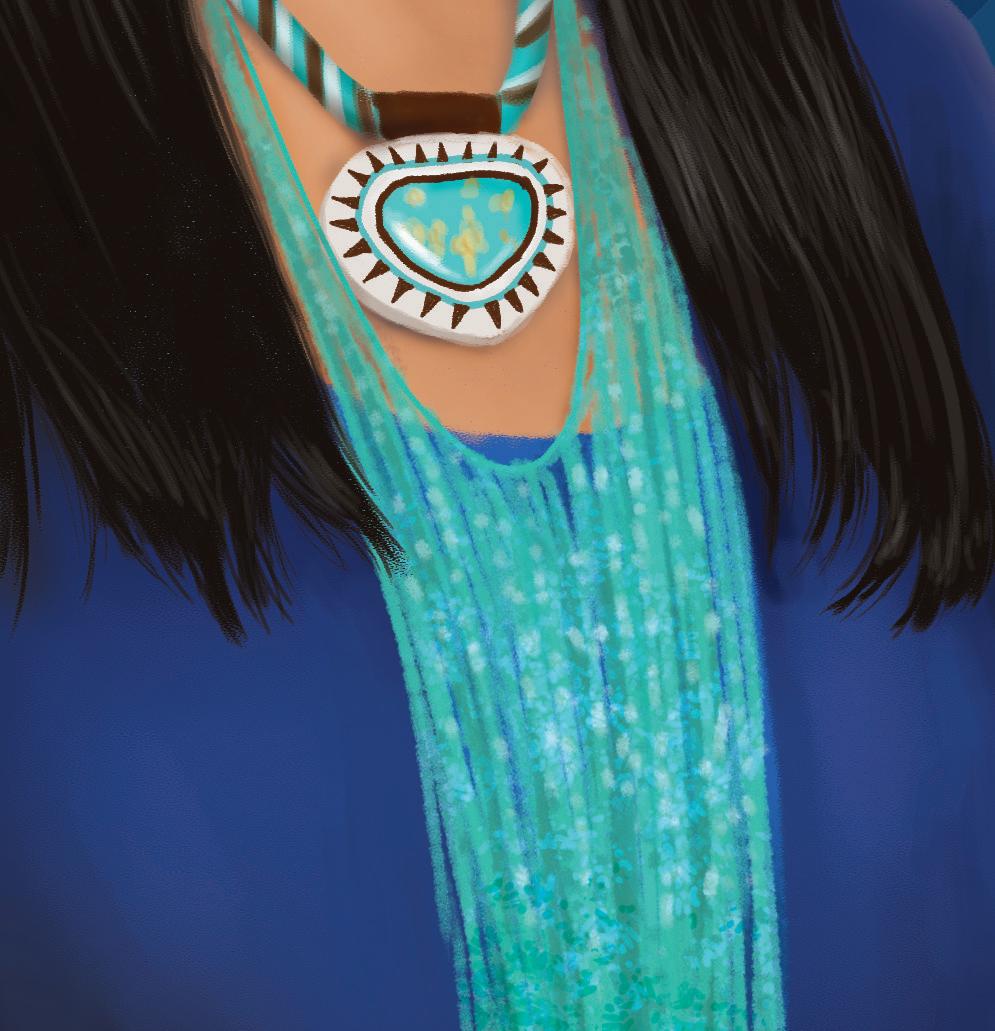














since we’ve had gaming. What we’ve done with community development, selfreliance, sustainability and where we are today: I’ve seen the change, and it’s all for the good.”


That change took the San Manuel reservation from poverty to the eventual luxury of the Yaamava’ Resort. Valbuena recalled the childhood ritual of standing in the orange groves, waiting for the welfare and commodity trucks to come. That same area is now full of the homes that surround San Manuel and Yaamava’. The Chairwoman said, “We had no milk and put our bowl of cornflakes under a water faucet outside. I remember my mom and grandmother would go and clean homes in the area. There were times they’d take me with them, and I’d always say, ‘Gosh, these people are rich! They have a swimming pool and everything! Then we came back to the reservation, and we had the chicken coop here and the outhouses there.” The Tribe was able to expand its gaming efforts, due to Proposition 5 in 1998 and Proposition 1A in 2000. California voters passed the initiative to amend the state constitution, giving Tribes the exclusive right to operate casino-style gaming on Indian lands. The Chairwoman said this time was crucial, but a lot of work for the Tribe, with its representatives often away from home as they traveled up and down the state to speak
to non-Tribal organizations and the public on why the Tribes needed their votes. The voters of California passed Proposition 1A by 65%. This paved the way for a new era with San Manuel Indian Bingo & Casino in 2005. Now known as Yaamava’ Resort and Casino, a $600m upgrade and rebrand expanded the property in 2021 to over 7,200 slot machines, hundreds of table games, numerous dining options, a theatre, health center, spa and, of course, a swimming pool.















“A NATION WITHIN A NATION”
The Chairwoman introduced to Gaming America the overarching concept of ‘yawa,’ a word which in the Serrano language means, ‘acting on one’s belief.’ Valbuena’s strong belief in the work she does, and the amount her Tribal organization is able to give, is evident in everything that she says. She acknowledged the collaboration necessary between herself and the other six elected officials on the Tribal council, adding, “We all have to do this collectively with our staff. We always tell our employees that without them, we wouldn’t be where we’re at today.” The San Manuel Tribe has worked hard to leave federal housing grants behind, provide health insurance, have a wellness center with doctors on the reservation, and create mentorship and other programs for its people. Classes in the Serrano language
are offered for Tribal citizens of all ages. Resources are available through providers both within the reservation, and through external groups that come and work with the Tribe, to develop community and family programs.





The Chairwoman remarked that as part of her role she continues to educate others about Tribal sovereignty and culture, because “most people still don’t understand.” This involves visits to non-gaming organizations, the public and local government officials. Valbuena said, “There are about 574 federally recognized Tribes in the nation and 229 native villages in Alaska. I’ve been asked, ‘So do all the Tribes in the nation speak the same language, like Spanish?’ And I say, ‘No, we all have our own languages. We all have our own culture.’” She said that often the “easiest way to explain” what it means to be a member of Tribal government, is by comparing the role to other legislative or leadership positions. For Valbuena, being a Tribal Chair is akin to being the mayor of a city, being the governor of a state, or even being the President of the United States. She said of her Tribal leadership duties, “We’re responsible for preserving our inherent sovereignty, enacting laws and policies within our governmental jurisdiction, and serving and looking out for the best interests of our constituents. I always say, we’re a nation within a nation.”
Valbuena also serves as the Chairwoman of the Tribal Alliance of Sovereign Indian Nations (TASIN), and has held this role for 28 years. As part of this Alliance, the Chairwoman has worked toward achieving greater unity among all Tribes, but is particularly aware of the gravitas her own state of California has, and the harmony necessary to influence state legislature. Of the 568 Tribes in the United States, 110 reside in California – this is a higher Tribal population than in any other state. TASIN holds regular meetings once a month with 13 Tribes in three counties throughout the central district of California. While uniting the Tribes can be challenging at times, the Chairwoman affirmed the effect it can have. “We always say it makes such a great impact when the state legislature or the leadership
58 | GAMINGAMERICA GAMING AMERICA | CEO SPECIAL - LYNN VALBUENA
Yaamava' Resort & Casino

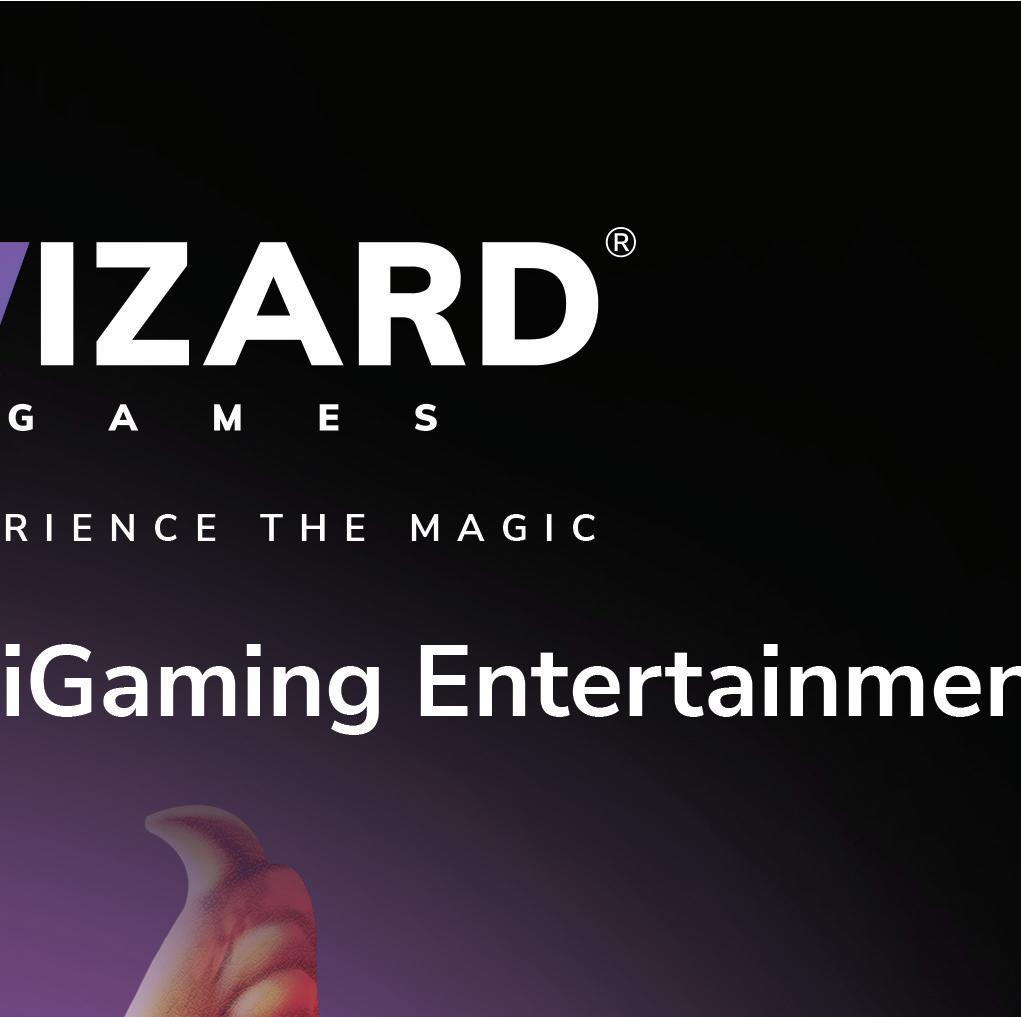







in the state sees the Tribes walking in to either support or oppose an issue or be at a hearing. Just having a presence really makes an impact with the state leadership so that they understand our issues when it comes to preservation of culture and sovereignty.”
The San Manuel Tribe itself also continues to build relationships with local government, elected leaders and their citizens. The Chairwoman said meet-and-greets are held with officials who are elected in communities near San Manuel to, “sit and talk with them about sovereignty and what it does – about our programs and how we’ve become self-reliant and selfsustainable.” Other Tribal committees and boards exist to regulate the reservation with its own courthouse, including a judge and an appellate court. “What really makes me happy is that on these boards, we have our own Tribal members, our own Tribal citizens, that participate and oversee a lot of the developments we do here at San Manuel.”
The Tribe has benefitted from an expanded network within the reservation as well as externally in the greater San Bernadino area. Valbuena said, “We have so many different departments now; it’s really amazing to me. It really hits home, knowing how we started back in the day. Building those relationships through the community means being able to pick up the phone and call the Mayor of San Bernardino, or call a county board supervisor, and hear, ‘Oh hey, it’s San
Manuel, yes put them through!’ because of that relationship.”


BEING GOOD NEIGHBORS



Many people still ask Valbuena why the San Manuel Tribe got into gaming. The answer is clear. The negotiations made, the votes received and the referendum passed, which all led to the gaming compact with the State of California, also led to the goal of self-reliance for the Tribe. The growth that San Manuel has seen, not only within the Tribe’s own gaming operations, but in overall nationwide Tribal government gaming, has been exponential. From the 1980s, the Tribe was able to offer entertainment in the form of bingo and Class II gaming devices like “video pull tab machines,” but could not offer the patrons of its bingo hall any further games, such as slot machines or table games. The ability to diversify into Class III, or casinostyle, games furthered the literal expansion of the San Manuel Indian Bingo Hall into its current 17-story Yaamava’ resort.
The growth of Tribal gaming and its importance to the Chairwoman was also dutifully presented during our call with figures she and her team had gathered, in order to give a full and accurate picture of its impact. Valbuena said, “There’s 48 states that have authorized some level of gaming since the 1970’s – including commercial gaming, lotteries run by state governments, sports wagering and online gambling in
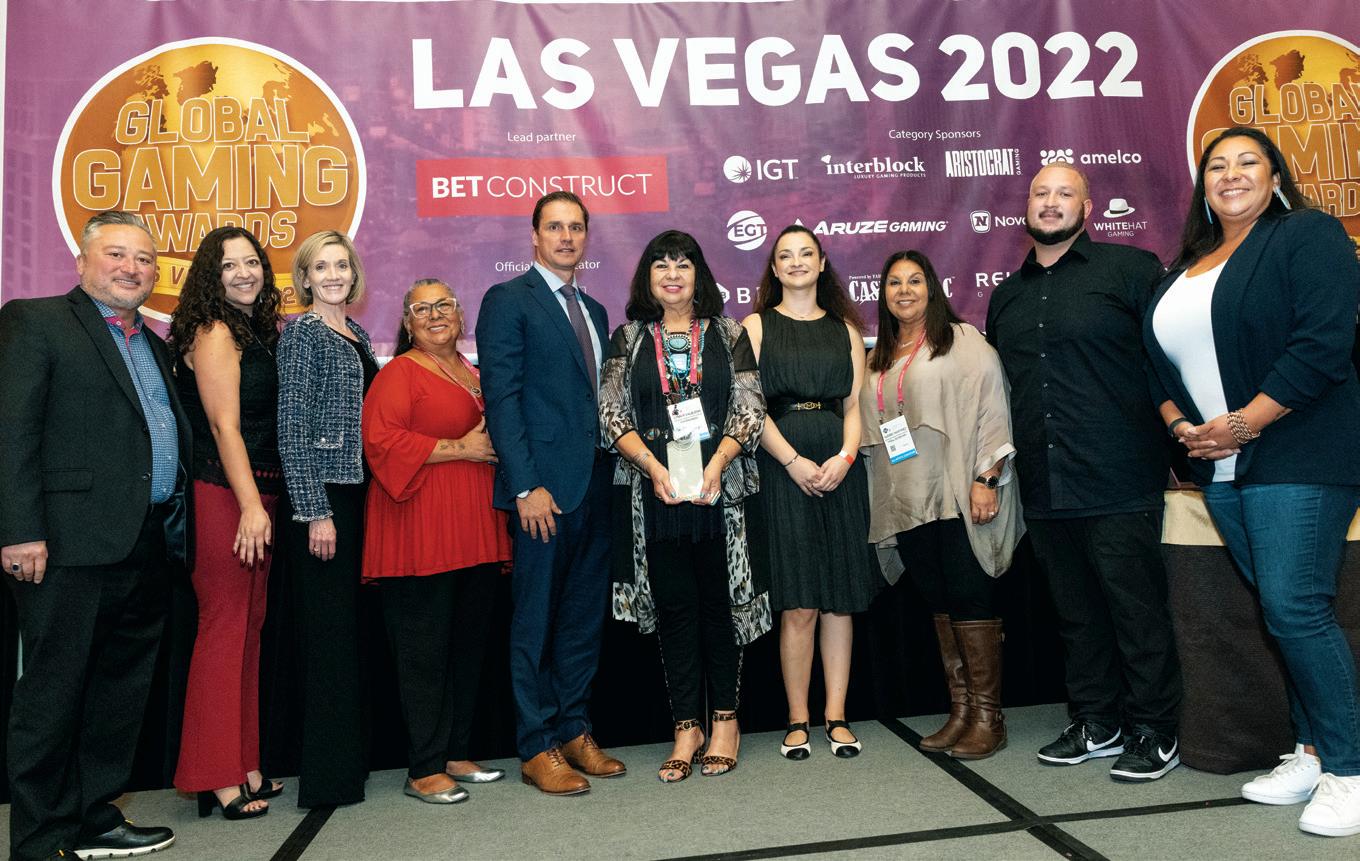
some states – not just Tribal government gaming. Tribal gaming alone in the US is a $40.9bn industry (as per the National Indian Gaming Commission’s full-year 2022 figures), now in 28 states. It’s growing rapidly.” The Chairwoman also touched on non-Tribal gaming organizations, saying that the growth of commercial gaming has also been part of the overall industry’s presence in the US.



“We always stress that, with Tribal government gaming, we do it for a reason and a purpose: to give back to our community and to others where we can. That’s the difference between Tribal government gaming and corporations, in our view. They don’t have the programs where funds are going directly to philanthropy, tuition, education, healthcare, insurance or other issues that may come up in their community.” Apart from the fact that other gaming ventures are run for a profit, the Chairwoman adds there is also a “big difference” in how non-Tribal gaming is regulated. She added, “Tribal gaming allowed the Tribes to build roads, build hospitals and develop schools and services for their Tribal members.”
When asked what Valbuena envisions next for the Tribe and its properties, she said diversification will continue to be a priority. “We have to secure diverse and reliable revenue sources for the long term so that we can stay self-sufficient and selfsustainable, and do what we can to help our people and others in the community.” This includes developing a 12-acre parcel of land that had sat dormant for years. The Chairwoman explained, “I remember as a kid when we’d drive by, it was raw land with big boulders and rocks. Eventually the Tribe purchased it and developed the site initially with a Hampton Inn as anchor. We did some renovations and ended the relationship with Hampton Inn in favor of our own branded hospitality property called Bear Springs Hotel.” The development called San Manuel Village also includes a conference and events center, an urgent care facility, two restaurants, and an office building, which houses some of the Tribe’s own staff, as our workforce has grown beyond the reservation.”
GAMING AMERICA | CEO SPECIAL - LYNN VALBUENA
60 | GAMINGAMERICA
Lynn Valbuena, Tribal Chairwoman, and Laurens Vosloo, CEO of the San Manuel Band of Mission Indians, along with members of the Tribal Council and staff, at the Global Gaming Awards Las Vegas 2022
The Chairwoman was also proud to report that about 90-95% of employees who work within the Tribe’s properties are from local communities, which has helped to create and strengthen more relationships when it comes to other necessary aspects of business, such as purchasing goods and finding vendors in the area. The expanded entertainment venue at Yaamava’ holds almost 3,000 people and has created around 1,000 more jobs. “We had a large room that we used to have for bingo and put our entertainers in there; but now we have top name entertainers like Lionel Richie and Janet Jackson.” The diversifications into aspects other than gaming have given the Tribe a plan for its own future, as much as they’ve added to the local landscape. San Manuel has earned its self-reliance and plans to make sure its future as a business, and within its local community, is just as strong. “We’re always long-term financial planning.”
The relationship with the community that literally surrounds Yaamava’ includes the distribution of around 3,000 bi-monthly newsletters. The Tribe also includes a timeline of San Manuel Tribal history with every issue of the Tribal magazine, Hamiinat, the title of which is the Serrano word for “hello.” The Chairwoman hospitably remarked, “When you come visit us sometime, you’ll see we are so different from other reservations as far as location. We’re right in the middle of a residential area; the walls of our casino and parking structures abut the backyards of Highland and San Bernadino.” Over the years, trust and relationships had to be built, and the locals are “very appreciative” of the work the Tribe has carried out. San Manuel has also added stoplights, paid
for crossing guards and put in crosswalks for the areas of their property in close proximity to schools. “We as a Tribe do what we can to be good neighbors,” said the Chairwoman. “We’re really, really happy that we have good relationships with our community.”
“REMEMBERING WHERE THEY CAME FROM”
Part of San Manuel’s relationships with local organizations include its philanthropy program and an annual event called Forging Hope. The Tribe recognizes five or six local organizations and honors them with a grant. “We have these big, blown-up checks; we call them on stage, and we say, ‘this is for you and for what you do in the community.’”
The Tribe has been giving to nonprofits for over three decades and in the past 20 years has given out $350m to organizations, both locally and affected by natural disasters. San Manuel has helped other US Tribes, but also extends its aid to other countries in need. The Chairwoman said, “We do a lot for our sister Tribes, but also in the Philippines, Japan and Haiti as well.” San Manuel will also assist Tribes in California without their own gaming operations. The Global Gaming Awards has honored San Manuel with the Responsible Business of the Year Award recently in both 2021 and 2022. When the Chairwoman took the stage to receive the Award last year, this was also a team effort, as she gracefully accepted while joined on stage by other members of San Manuel, which was followed by a memorable speech from the Chairwoman.
She said, “Things have changed over the years, and I personally – and others too – we don’t take it for granted. We’re very fortunate, and we’re very happy that
Tribal government gaming brought us to this level. Now we can get back to those that really need the assistance as well.” Words of wisdom that have helped the Chairwoman in her career come from a predecessor who brought water and electricity to the reservation in the 1950s. Valbuena said the two phrases that her mother and grandmother always told her growing up, which still help her immensely to this day, are: “never forget who you are or where you came from,” and, “treat people like you would want them to treat you: with respect.” Holding the photos of the reservation from when she was a child, Valbuena added, “I was five years old, standing here on a dirt road, now where the casino is, and the parking structure. That original wall is still there. We have green hedge now right above it that says San Manuel.”
The Chairwoman’s own words of wisdom for anyone else in a position of leadership, or for whomever may indeed lead the San Manuel Tribe after her one day, come down to having self-confidence, not being afraid to speak up and having support at home. “We always say that our positions as elected leaders are 24/7.” A perfect example, Valbuena said, was years ago when her staff informed her on a weekday afternoon of an important hearing coming up in Sacramento. She was told, “You don’t need to testify, but if they see San Manuel – if they see leaders from the Tribe – it would be great.” Valbuena was told she’d need to pack a bag and leave that night to be there in the morning. She did. She’s also missed birthdays and family anniversaries, all for the cause. “The dedication comes with leadership, and with the job, but also looking at it as: ‘What an opportunity!’” While the Chairwoman knows she can’t be at every conference, event or meeting, she wants to be.
The drive that Valbuena has within her current role may come partially from a historic and Tribal perseverance, but the Chairwoman’s own desire to help her community has truly transformed it. She humbly smiled as she said, “If you don’t have the passion, it’s not going to happen.”
GAMINGAMERICA | 61 CEO SPECIAL - LYNN VALBUENA | GAMING AMERICA
WE’RE VERY FORTUNATE, AND WE’RE VERY HAPPY THAT TRIBAL GOVERNMENT GAMING BROUGHT US TO THIS LEVEL. NOW WE CAN GET BACK TO THOSE THAT REALLY NEED THE ASSISTANCE AS WELL.
LIVE DEALER AND RNG IN THE USA
Evolution’s North America CEO, Jacob Claesson, discusses the current and future US iGaming landscape with Gaming America.
What is most important when devising a new live casino game? Familiarity or innovation?
Taking into account where the ‘new’ US market is at the moment, in terms of its development, it’s not about one or the other – I believe it’s about finding the right balance of familiarity and innovation. Operators need a core live casino offer first – so typically a selection from roulette, blackjack and baccarat, and maybe some Poker variants too.
Then you add more games to broaden and enhance the offer. With the choice that’s available from the extensive Evolution live portfolio, those additional games could be anything from casino classics with unique, innovative twists (titles such as Lightning Roulette or our Live Craps with its unique interactive tutorial and easy mode for new players), to unique, all-new online live game shows such as our hugely popular Crazy Time. It’s still early days for live
dealer gaming in the US, so the initial challenge is getting people to know that it’s out there and available. The familiarity of games is obviously a big part of that – people recognize what they know and what they are familiar with. However, at the same time, standard roulette, blackjack and baccarat alone are not enough for operators to truly compete, or to really excite the wide range of player types that make up an operator’s potential market.
To use just one example, we currently have seven different variations of blackjack in the US: regular blackjack, infinite blackjack, lightning blackjack, free bet blackjack, speed blackjack, power blackjack and VIP blackjack. Now if you enjoy playing blackjack, you’re most likely going to be drawn to an operator that offers a varied and intriguing mix of blackjack tables, rather than one that only offers standard blackjack. It’s human nature – people like to explore, they like variety and choice and they like things that are new and different.
We know you’ve recently released new high-limit live games with the British Columbia Lottery Corporation. Can you talk us through the growth you’ve seen in live casino in North America and what the trends are across the market?
We’ve seen strong growth in live casino in North America, largely down to having great partners, beautiful studios and tables, and super-engaging games of all kinds. We want ‘live’ to cater for all player groups, from the first-time entry players right through to the VIP players with high demands and expectations for quality and service. We see that live-dealer players today are playing more game types than they did two years ago – which is consistent with the growth of our offering. However, we also see players that only play Craps or Lightning Roulette, which shows how important it is to have a broad games portfolio that caters for all player types. We pride ourselves on understanding players’ needs – all players’ needs – and then meeting those needs.
What is the current goal for the RNG division of Evolution in North America?
Globally we are working towards doubledigit growth and we of course expect North America to contribute to that growth through Evolution first-person RNG games; and from online slots from our NetEnt, Red Tiger, Big Time Gaming and Nolimit City brands. In fact, we are currently working on bringing distinctive slots titles from our Nolimit City
62 | GAMINGAMERICA GAMING AMERICA | LIVE CASINO
"OUR GOAL IS TO BE OPERATIONAL IN ALL US MARKETS AND, WHEREVER POSSIBLE, OUR AIM IS TO LAUNCH OPERATORS ON DAY ONE AS EACH ‘NEW’ REGULATED STATE OPENS FOR IGAMING."




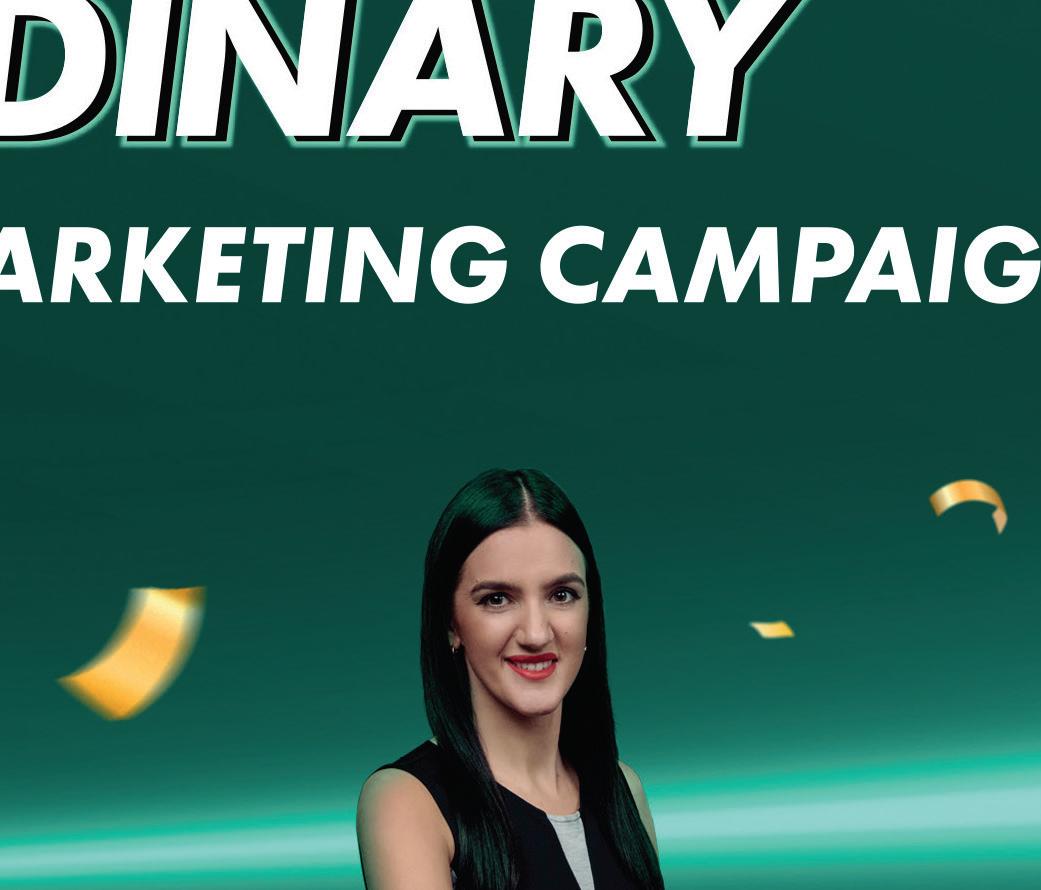





slots brand into more North American jurisdictions, following a successful Ontario launch in August.
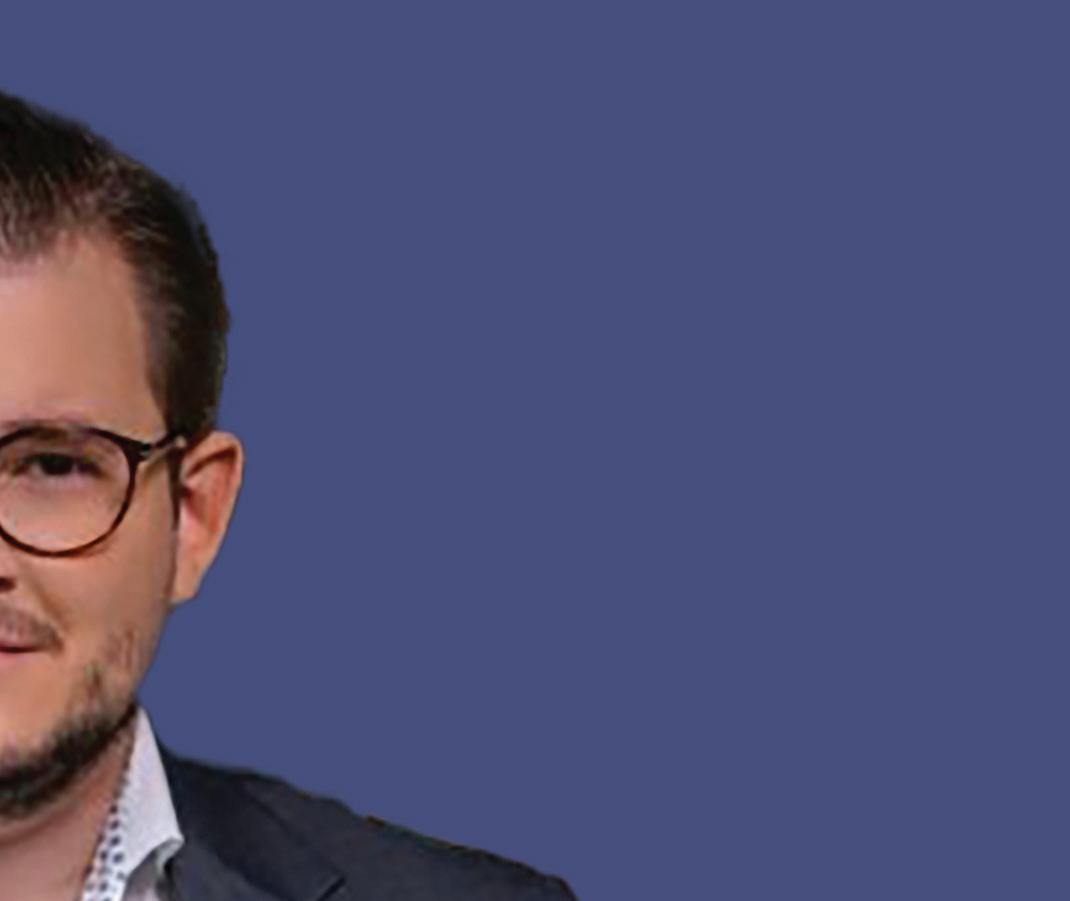

Can you give us a breakdown of your current US markets? Which state is your most active?
To date we’re live with studios in New Jersey, Pennsylvania, Connecticut, Michigan and our games are also available to players in West Virginia, and in the majority of Canadian provinces. Activity is high in all ‘live’ states and we’re very happy with the rate of growth. I cannot share internal data on which state is the most active, or which generates the most revenue, but I can give you an example of how healthy that growth is generally. In West Virginia, live dealer has definitely contributed to this growth.



We know Rhode Island could be active by April – do you have plans to launch there? What other states do you foresee legalizing iGaming? Our goal is to be operational in all US markets and, wherever possible, our aim is to launch operators on day one as each ‘new’ regulated state opens for iGaming. I am sure we’ll get better understanding of the contenders to be next up to regulate, in the next six months or so. These are exciting times for operators and players alike – and it’s nice to see the jobs that live dealer creates becoming a more central part of the conversation about regulating iGaming.



What is your opinion on the metaverse? Do you think it could be a threat to live casino games, or something that can further those games and give them even more of a platform?
I don’t see the metaverse as a threat, but as a platform or means of playing just like any other – that is, just like mobile, tablet and desktop. Obviously, it’s different and the possibilities could be very exciting indeed. In fact, we’ve already developed games capable of being played in
virtual reality mode. So naturally, we’ll continue to monitor technology and market developments, and act accordingly, just as we do with all new technologies. Right now, it’s fair to say VR headsets and controllers present an equipment and cost barrier to entry for players. The vast majority of actual and potential online live casino games show that players already have easy access to a smartphone, a tablet, a desktop or a laptop computer. What’s more, those devices work really well for all players, allowing them to fully enjoy our games, many of which already offer an immersive gaming experience or, indeed, augmented reality features that further enhance the player experience.
Of course, there will always be a small percentage of gamers who will want the very latest kit – the VR headsets and the controllers – and they will not be too worried about the price of early adoption. But from what we see now, those players mostly sit in other online gaming segments.
So will the metaverse and VR eventually become as universal as playing on a smartphone? That’s impossible to call from where we stand now – only time will tell. As I said when I was made CEO of Evolution North America in October 2021, iGaming in North America is still only in its infancy and I am very excited about the opportunities ahead of us, and that is still very much the case. The metaverse may well prove to be one of those opportunities and, if so, I am sure it will be one of many. For the moment, though, there are a lot of 'basics' the iGaming industry in North America needs to get right first.


64 | GAMINGAMERICA GAMING AMERICA | LIVE CASINO
Jacob Claesson CEO North America Evolution
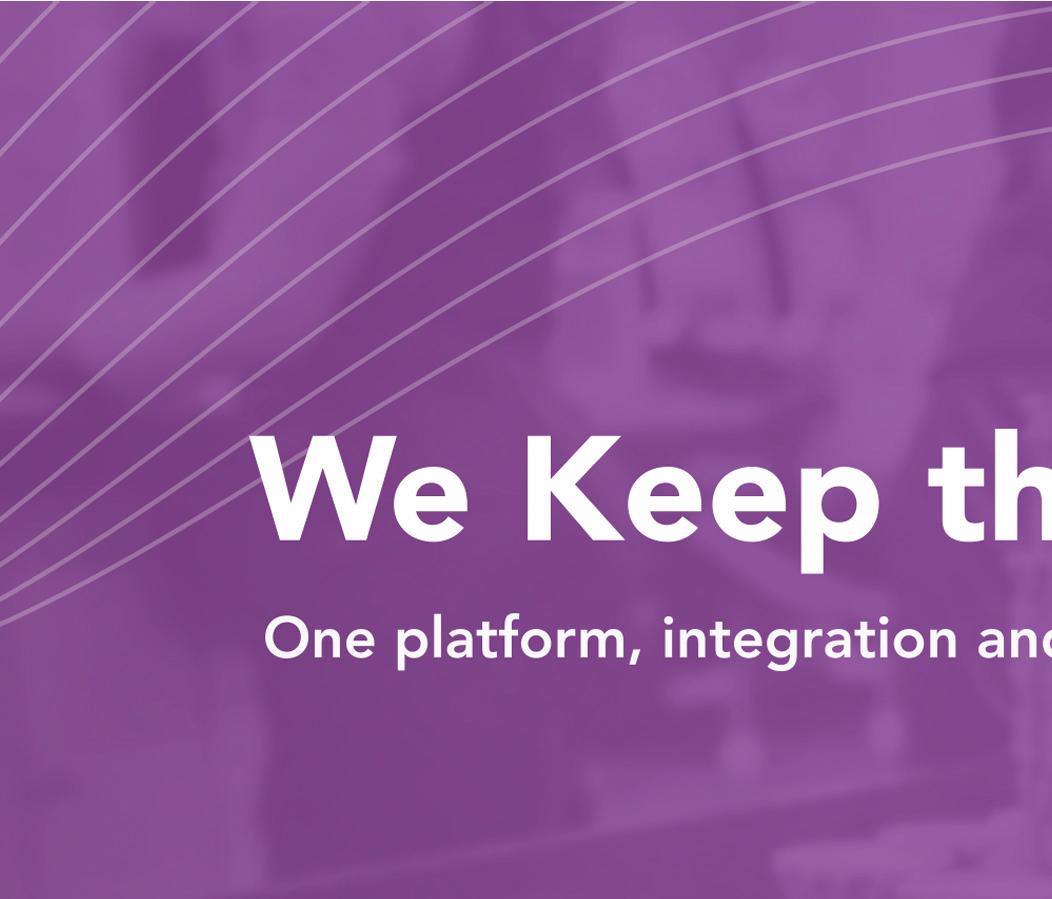





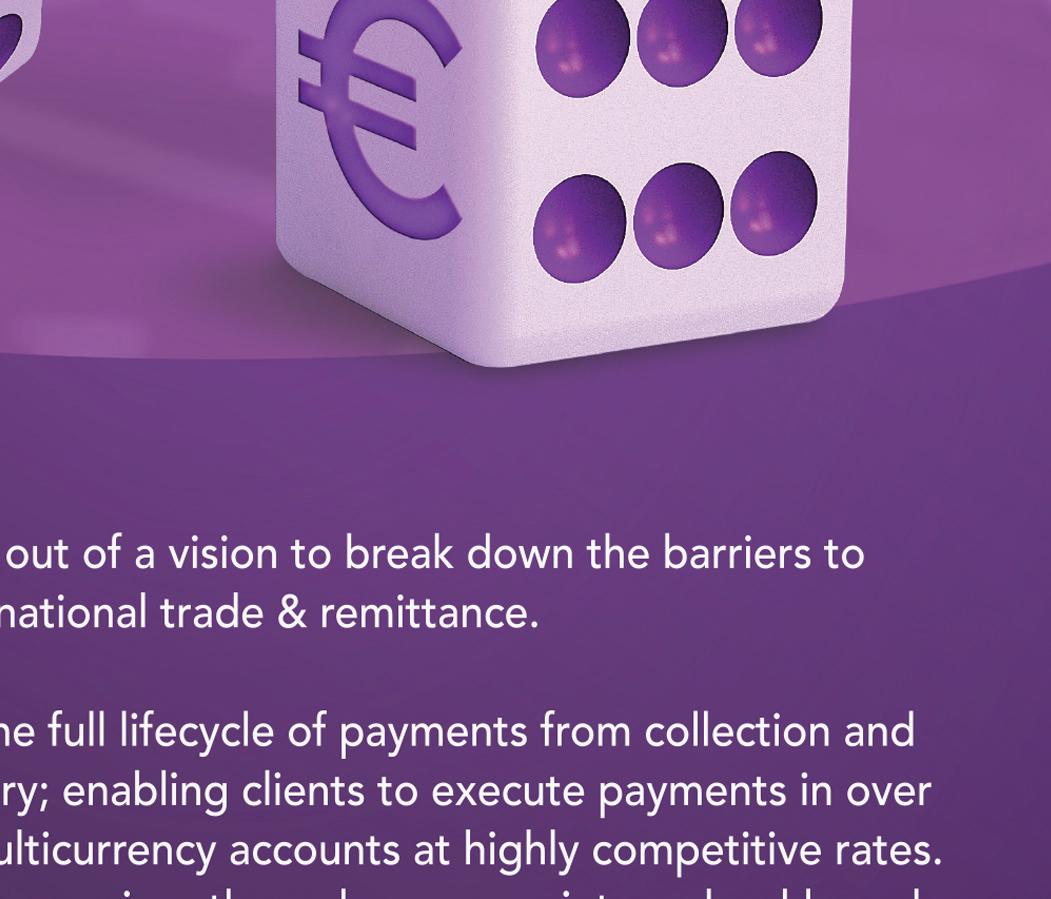



REWARDING THE FAITH
Las Vegas-based Gaming Arts specializes in bingo games and also develops keno games, system and jackpot offers for its customers. CEO Mike Dreitzer explained the supplier's plans for US growth in an exclusive interview with GamingAmerica
What does the next six months look like in terms of North American expansion and where does Gaming Arts plan to launch next?

On the slot side we are on the verge of being approved in Michigan, which is extremely exciting given that we have numerous pending orders with some of our larger corporate partners. After that we have approval in multiple different states on our near-term horizon that include Iowa, Illinois and Nebraska, as well as increasing footprint in New York, which is one of the largest markets in the country.
How have your current partnerships contributed to company growth during 2023 and what new partnerships are in the works going forward?
We have had several key partnerships of note. Specifically, the collaboration with Brian Christopher to create the BCS Slot game, a first-of-its-kind game featuring a slot influencer, was extremely notable. Additionally, we work with multiple independent third-party studios who provide us with game content for our customers’ players to enjoy. We’ll also be debuting our first major license, Deal or No Deal, based on the hit television game show. The game features linked progressives and jackpots, free games and of course, the iconic Deal or No Deal Briefcase Bonus. Players will love the immersive experience of playing the game show in a slot machine.






Which Gaming Arts titles are currently trending with your players this year?
We are continuing to see tremendous success with Kung Fu Empress, Pop N’ Pays
More, featuring Brian Christopher and both our electronic table games products, Casino Wizard and Casino Wizard VIP. Some of our more recently released successes are Thor’s Thunder on our VertX Grand portrait cabinet, which was shortlisted for Slot of the Year at the Global Gaming Awards, as well as Lucky Pick and Cash Quest on Phocus S104 dual screen cabinet. We have been able to capitalize on the industry trend of perceived persistence with Kung Fu Empress, as well as our newer brands like Lucky Pick and Cash Quest creating huge wins for players with the increased volatility that arises from true persistence.
How has the Canadian market contributed to Gaming Arts’ success?
We have enjoyed expansion in BC and Ontario on the slot side and Manitoba on the Bingo side, with the Bingo Millions product. We look forward to further widening our product footprint in Canada next year. We have seen success with our Phocus S104 Dual Screen themes and now we are working with our partners to expand our current footprint in Canada by rolling out our VertX Grand cabinet.
What new games can bingo fans look forward to in the coming months?


Our new Super Punch Board Bingo progressive games will have players
embarking on a bingo adventure like no other. Players will unleash the excitement with our revolutionary and electrifying bingo adventure where every punch brings you closer to astonishing wins. With each punch, the prizes grow bigger and surprises abound at every turn. Super Punch Board Bingo is designed to cater to players of all levels, ensuring that everyone can join in on the action. Whether you’re a seasoned player or new to the game, this is the ultimate bingo experience.
Could you give us a brief overview of some of the new hardware developments we can expect to see soon?



The development of Gaming Arts’ new VertX Duo gaming cabinet began over a year ago with the goal of being 'best in breed' on casino floors across North America. This beautiful new cabinet includes super bright 4K displays, theater-quality sound system, enhanced graphics and advanced ergonomics. The advanced R&D process at Gaming Arts included developing dozens of new cabinet concepts, each of which was evaluated by our executive team until the ultimate winning design was chosen, which has now become reality.
What does the future hold for Gaming Arts in 2024?
We are very excited about 2024 and beyond. Gaming Arts will continue to expand its product offering and footprint throughout North America. We look forward to bringing more and more great games to players everywhere. We are thankful to our partners and customers who have given us a chance; it is delightful to see that faith being rewarded. On the hardware side, we are thrilled to show our brand new VertX Duo cabinet – our next-generation dual screen with two 32” 4K monitors for sharp, dazzling graphics that leave the players enthralled. Our flagship theme on the VertX Duo is Jackpot Sweep, an innovative Hold ‘n Spin-style game where players can win progressives multiple times.
66 | GAMINGAMERICA GAMING AMERICA | GAME DESIGN
MIKE DREITZER Gaming Arts CEO





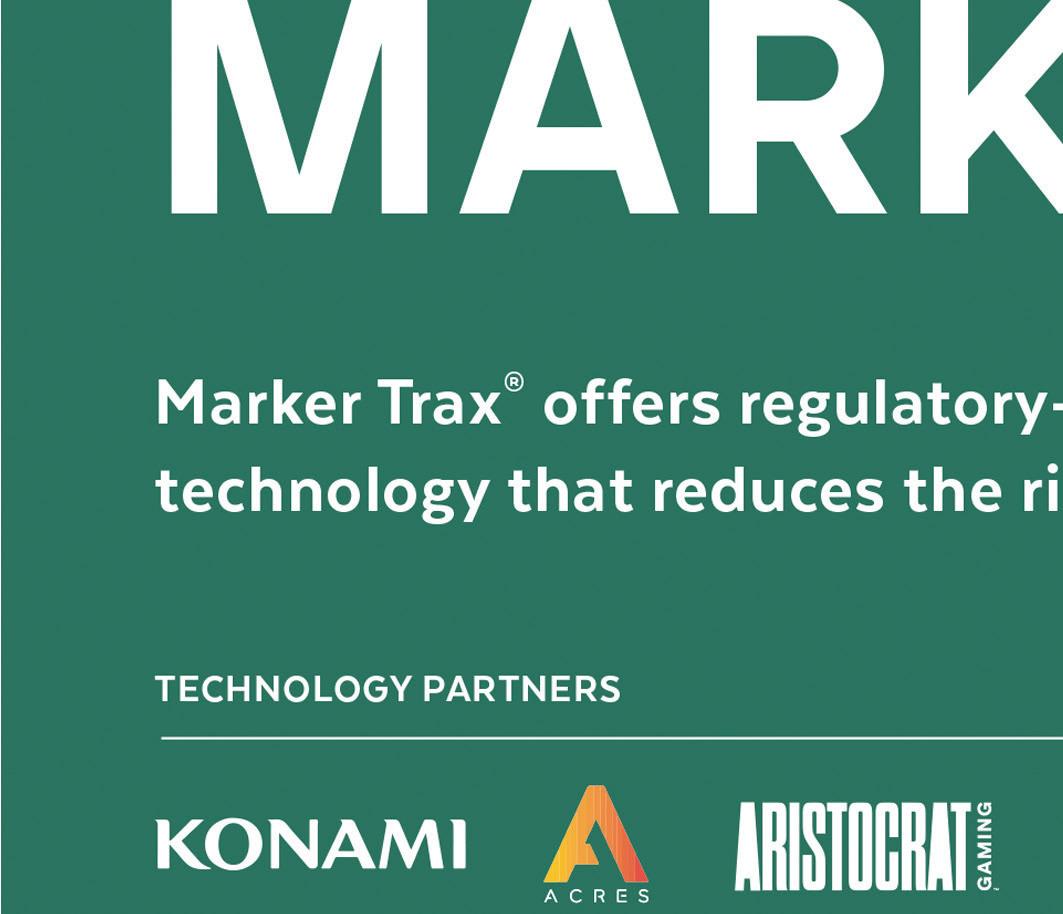




KEEPING THE ‘FLYWHEEL’ MOVING












Christopher Justice, CEO of Pavilion Payments, speaks to Gaming America about the importance of digitization and the evolution of payments.
Christopher Justice, the CEO of Pavilion Payments, has had a busy year. A veteran of the payments industry, he shepherded Pavilion Payments through its recent split from Global Payments in April and is now gearing up for a G2E exhibit that he says will be “jaw dropping.”
Speaking to Gaming America from his company’s splashy 'client experience center' at Pavilion Payments' Las Vegas headquarters, where customers can try out Pavilion products on working slot machines and in other casino environments, Justice reflected on his 30 years in payments and where he sees his company headed next.
You’ve been in the payments industry for about three decades. How has this industry changed over those 30 years?






It’s like technology in general: it
continues to evolve at extraordinary rates. You see this in the rest of your life, outside of the casino. There’s the whole lot of reasons certain industries lag behind others. This is one of those industries, to me, that is ripe for digital transformation. Because, other than nail salons, what other industry uses as much cash as we do? And with cash comes problems: loss. The cost of cash.
When you start to think about everything a casino does, you’ve got the cash in the machine, you’ve got the cash in the vault, you’ve got the cash prepped to be able to roll into the places to give it to the guest as they come in. It’s 3x the cost of cash than what it should be. So, when you think about these multi-billion-dollar organizations – and now with the cost of inflation and interest rates, and the cost to operate – to carry that amount of money,
just hanging out is a terrible waste of resources.
So, the more we can help them dramatically consolidate the cash that’s in use, the more this will help their profitability, and certainly help change their direction of their profit and loss. This ultimately translates into better stock prices and all of the things that are associated with it. In my 30 years in this industry, it continues to rapidly evolve, things become more and more efficient.



And I assume the move to digitization protects casinos from the Danny Oceans of the world?
(Laughs) You bet. Of course, anybody who hasn’t been in a casino vault would be stunned to see it doesn't look as beautiful as Ocean’s Eleven. It’s a

68 | GAMINGAMERICA GAMING AMERICA | PAYMENTS









room full of filing cabinets. But when you think about the Danny Oceans, when you start even taking it down to micro-level, whether it’s the organized folks – and I’m not talking organized crime per se, but the little fraud rings and the people who are trying to continually run scams on the casino. When it comes to cash, it’s really hard to figure that out, right?
You can’t see it. There’s no connectivity between you and me. So, if we were to walk in and run our game, because it’s cash, you really can’t track it or tie it back to commonality points; if they catch me, they don’t necessarily catch you, or they don’t catch either one of us. When you start to get into things like electronics and “what can I do with my understanding of you and your mobile device?” compared to anything else, I can tell it’s you just by the way you text, type and interact with the phone.





















































































You need the ability to go through and validate: who is the guest; are they real; are the accounts associated with them authentic; do they have the authority to use them? You start getting down into certainty and if we can start helping with that certainty it’ll reduce fraud losses. It reduces so many other things. Again, this all adds profitability.
You place a premium on eliminating friction in payments. How do you do that?





It’s years and years of expertise. I think the easiest way to start is to talk about the mobile app we’ve got. We came out with an original prototype that had all kinds of amazing capabilities, all of which are still sitting in the incubator. But then you have to start looking at it from a couple of different perspectives. One is “what does the guest expect when they interact with that?” And the question is, “who’s the guest? Is it your mother? Is it your grandmother?” It’s a huge span and the applications themselves have to be useful for everybody. They have to be intuitive for everybody.
When you think about my kid, who grew up with an iPad, versus my mother, two technically different generations. So, we’ve got to go through and think about that. We spent a lot of time with Apple and Google UI and UX people to test out. We said, 'Hey here’s an application. Now, if you want to play, what would you do, looking at the app and how would you play it?'


To me, you’d push the big “Play” button. The fact of the matter is 37% of people push the “Amount” button. Now, you push the “Amount” button, you push the “Play” button, they take you to the destination that you expect; because we know through testing and research, before we release this, that that’s what you expect as a guest and we want to deliver on your expectation.
What are your goals for the rest of 2023 and looking into 2024?
There’s a myriad of blocking and tackling things that we’ve been trying to do. One of the areas we’ve focused on through our separation from Global Payments was elevating our team. We were hellbent on putting programs in place to









really elevate benefits and capabilities for our staff.

The belief being, if we take really good care of our people, they will take really good care of our customers, and then our customers will take good care of us. It just winds up being a self-repeating process. That also translates into doubling our staff in a variety of areas, like our service organization and our tech-support organization. Because, let’s face it, we are in the casino industry and they expect the ambulance to appear when there’s a papercut. We want to make sure that we are that kind of company and we feel that also marries up very well with the reliability of our tech stack. If we can marry that up with Johnny-on-the-Spot, no company will service our customers any better than we will.
Some of the stuff we’re doing in innovation and the product set, of tying our brick-and-mortar capabilities into the iGaming capabilities, is another big thing that we’re working on; because we’re really the only omnichannel payment provider in the space. We’ve got relationships with the great majority of the online folks, as well as 400-someodd brick-and-mortar casinos. The ability to be here, participate in something in Vegas, but still go back home to Colorado and play sports and your money is still there and useful – ‘cause it’s your money, right – it’s not anybody else’s. But how do we make all of that work, within the rules and regs of 146 jurisdictions and all the other stuff that goes on? We’ve got some amazing capabilities and have been able to deliver on that.
CHRISTOPHER JUSTICE Pavilion Payments CEO
I would say our biggest focus, outbound-wise, still remains you as the guest. Because if I can take care of you as the guest, that means you’re going to participate with our customers with more frequency – probably shift more of your gaming wallet towards places that are delivering that better experience. If we can do that, then I’m delivering value to you, which delivers value to our casino properties; and that flywheel just continues.

70 | GAMINGAMERICA GAMING AMERICA | PAYMENTS
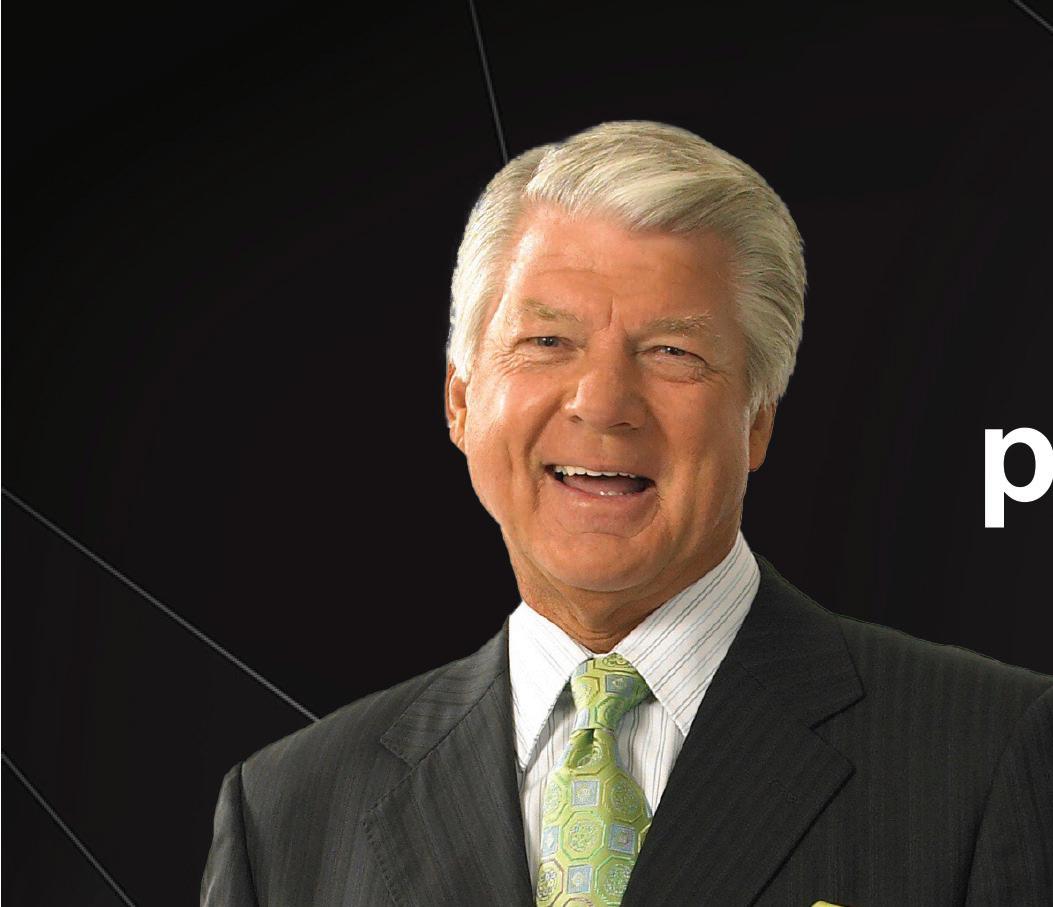
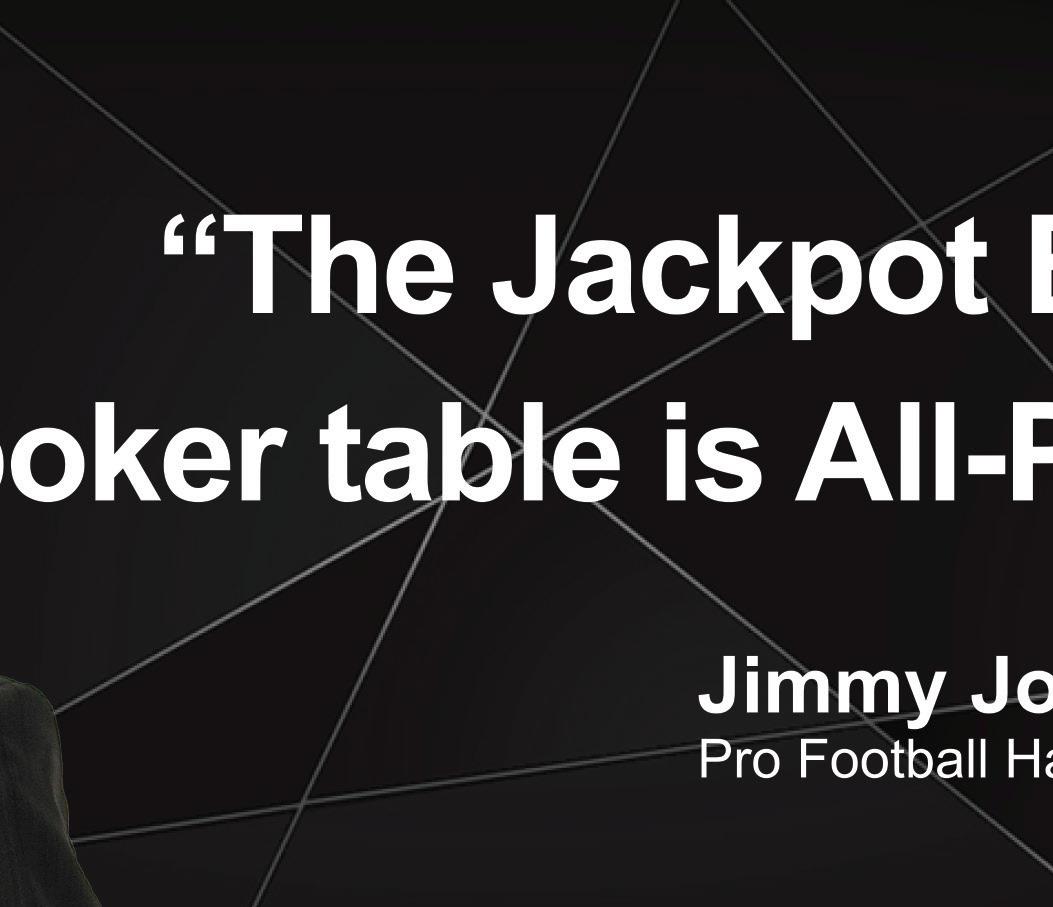




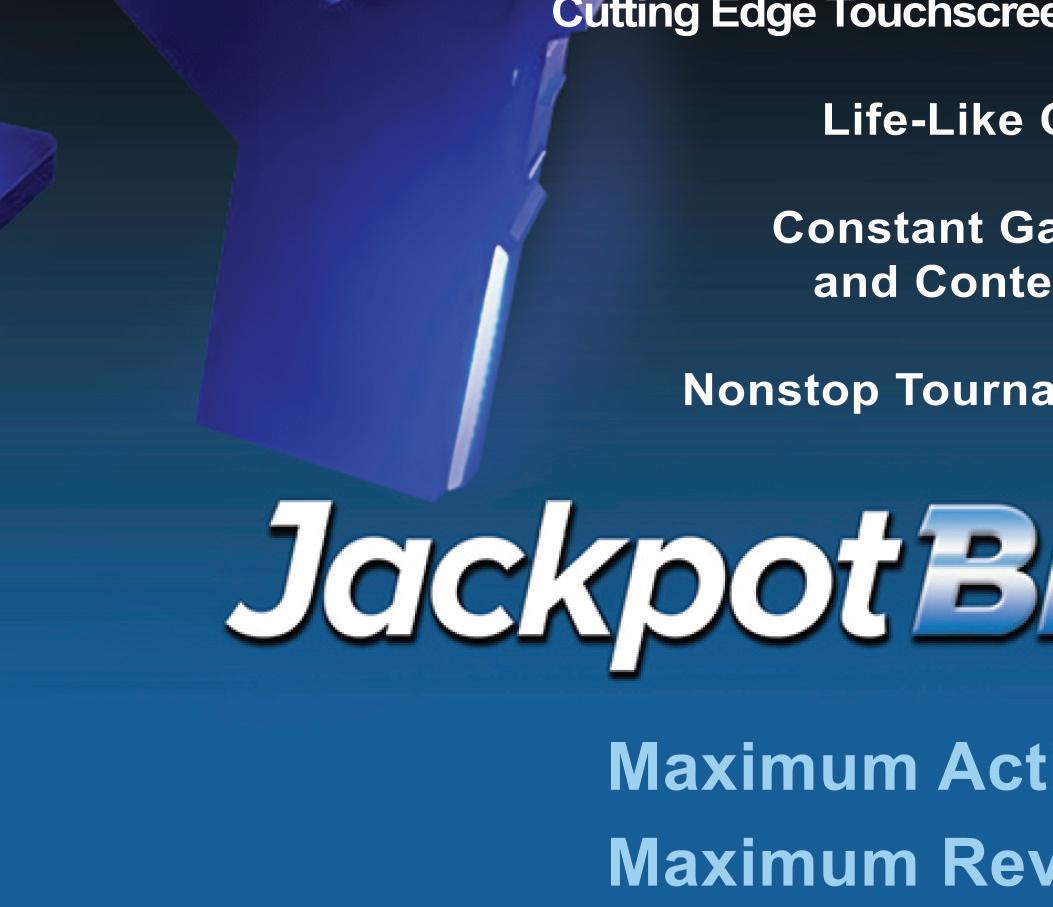



A LONG WAY TO GO




Stetsons and fedoras were omnipresent, rising above slot machines and facing dealers in early Las Vegas casinos, but under those hats, both the customers and casino employees were predominantly white male Americans; Las Vegas’ journey to diversity did not come easy.




THE TWO LAS VEGASES
A Black presence in Las Vegas is almost as old as the city itself, with economic migrants from all backgrounds making the journey to the desert outpost for work and a better future. As the town’s tourist economy grew, with the arrival of predominantly white construction workers in nearby Boulder City, the local population separated; the Black community was forced away from Fremont Street’s hotels, bars and casinos to the west side of the train tracks, where the infrastructure was less developed.


In the late 1940s and early 1950s, the Downtown saloons grew to more elaborate resorts on The Las Vegas Boulevard.

Legendary Black entertainers, including Sammy Davis Jr, Nat King Cole, Pearl Bailey, Harry Belafonte and Lena Horne frequently headlined the showrooms, drawing in customers to both stay and play. However, those same artists were unable to reside at the hotels or even be seen on the casino floor, as laws enforcing segregation were applied. The city was characterized in a 1954 article in Ebony Magazine, as “The Mississippi of the West."


An alternative nightlife scene grew on Jackson Avenue on the flourishing “Westside” for the predominantly Black community. The pinnacle of this movement was the short run of The Moulin Rouge, opening in June and closing in October 1955. This was the first actively desegregated casino in Las Vegas. Irrespective of the majority Jewish-owned property, it was a venture rooted in progressive idealism, a commercial decision to provide a gaming product to a particular demographic, or a bit of both; the property was highly influential in challenging the conservative narrative. As a
viable business, the timing was terrible, and it failed, joining The Dunes, Royal Nevada and Riviera in filing for bankruptcy. Unlike the others, it never reopened to its full splendor. Originally coming to town as a performer at the Moulin Rouge, William H “Bob” Bailey became a familiar face in Las Vegas. As an entertainer, lawyer, TV host, Civil Rights advocate and educator, Bailey was one of several early public voices advocating for change in the city, but from the outside. By the late 1950s, many of the performers and entertainers were demanding change if they agreed to perform in their showrooms; and in some cases defiantly challenging protocols by entering public spaces, knowing the adverse publicity would be damaging to business.
Although The Sands had employed Jimmy Gay in 1952, well before the property’s opening, he was one of the few Black executives inside the industry. In 1958, The Stardust offered Billy Daniels a residency; he was the first Black artist to achieve this type of deal. Conversely, Black customers
72 | GAMINGAMERICA
Regular Gaming America contributor, Denstone Group CEO and Vegas historian Oliver Lovat explores how Las Vegas desegregated and made way for diversity in the gaming industry, but still faces the shadow of a history of anti-Semitism, racism and sexism.
GAMING AMERICA | OLIVER LOVAT
were not awarded the same “favor” and were excluded from even entering to hear him perform.
The disparity of the Las Vegas experience, based on racial heritage, was laid bare.
TWO-WAY LEADERSHIP
Las Vegas was a curious melting pot, as in addition to Black migration, many Jews, Greeks and Italians facing discrimination in their adopted cities made their way out west. Some had opened businesses, including casino resorts (with backers from the east), engaged in professions and communal life, but there was a strong artery of racism running through the state’s politics. McCarthyite journeyman, Senator Pat McCarran, who represented Nevada in The Senate for 21 years, was a known anti-communist, racist, anti-Semite and xenophobe, noted historian Michael Green. McCarran had a list of enemies and frequently wielded his power against those that displeased him. Many of the casino owners towed the line.
As the Civil Rights movement took shape across the US, and with McCarran’s death in 1954, cracks emerged in Las Vegas’ segregated status. By 1960, four casinos – The Sands, The Riviera, The Dunes and The Flamingo (all having alleged ties with Jewish mobster Meyer Lansky) – operated on a non-discriminatory basis. For most, Black people remained barred.
The Moulin Rouge showed that integration was possible, and in 1960 the Black community organization, The NAACP, led by Dr. James McMillan and Dr. Charles West, called for change and an end to segregation in industry employment, access and hospitality participation within 30 days. Some within the Black community urged caution at confrontation, but a coordinated and highly public demonstration to “Shut The Strip” was called for on March 26. Many casinos resisted the change, some citing economic concerns, others challenging the principle. As locals, entertainers and campaigners from across the country readied to protest, the nation’s
media awaited the highly anticipated showdown.On the morning of March 25, in the coffee shop of the shuttered Moulin Rouge Hotel, The NAACP leadership met with newly elected politicians Governor Grant Sawyer and Mayor Oran Gragson, as well as with Hank Greenspun, the outspoken owner of The Las Vegas Sun, to resolve matters. At 6:00PM the talks concluded.
The outcome was that the strike was called off and the Strip resorts would desegregate, thus allowing Black customers to frequent the casinos and have the right to work in front-of-house positions. Although some casino owners, notably Benny Binion at The Horseshoe, ignored the new guidance, The Moulin Rouge Accords marked the formal end of sanctioned racial discrimination in Las Vegas, but certainly did not prove the end of inequality in the city.
Sarann Knight-Preddy, who worked in The Jackson Street Cotton Club (which was a small Westside gaming saloon) in the 1940s, went on to become the first Black woman to receive a gaming license in the state in 1950, when she bought The Tonga Club in Hawthorne, northern Nevada. However, when she later returned to Las Vegas, she found herself unemployable in gaming, as the city had instituted a city-wide ordinance banning women dealers in 1958. With the support of a campaign by the NAACP, she landed at Jerry’s Nugget (owned by Greek-born Jerry Lodge and his brother-in-law Jerry Stamis) outside the city’s boundaries.
EVOLUTION, AND A LITTLE REVOLUTION
After the Moulin Rouge Accords, there was an incremental embracing of the Black community, but many of the promised jobs were going to the back of house, in low-paid areas. When Caesars Palace opened in 1966, they hired front-line employees from minority backgrounds, notably Benny Figgins, who remained the final day-one employee at the property, dealing cards and sharing stories until his retirement in 2022.
But this was clearly not enough, and led Charles Kellar, Las Vegas’ NAACP President, to turn to the courts. Kellar’s action led to a consent decree in 1971, obligating Las Vegas operators to implement Civil Rights Legislation that 12% of certain job categories would be open to Black people. There was to be an end to the “jobs for the boys” mentality, with hiring and promotion to be based on inclusivity and merit.
Gay joined The Plaza as AGM, where he stayed for many years, also serving as the first Black member of the Nevada Athletic Commission, as well as a longstanding Executive Board Member of the NAACP, Culinary Local 226, National Conference of Christians and Jews, member of the Clark County and State Democratic Central Committees and President of the Negro Funeral Directors Association.
The decree was the catalyst for a wave of Black hiring on The Strip. Working with Bob Bailey to set up a training school for minority dealers, Frank “Lefty”
GAMINGAMERICA | 73 OLIVER LOVAT | GAMING AMERICA
"TODAY, WE ARE STANDING ON THE SHOULDERS OF GIANTS, AND THIS INDUSTRY OWES A DEBT TO THOSE WHO MADE OUR CITY BOTH WELCOMING AND FABULOUS AND NOT JUST WORDS ON A SIGN."
Rosenthal, (as portrayed by Robert De Niro in “Casino”) was now running The Stardust, and hired Clarence Ray and John Edmond at the casino, while Josh Isom ran catering. Odell Jackson Jr led food and beverage at The Hacienda, George Williams was Executive Chef at The Aladdin, William Smith ran equal opportunity compliance at The Del Webb portfolio, and Jackie Brantley and Faye Todd built careers at The Desert Inn.
In 1972, Ebony Magazine pictured 19 Black entertainers standing under The Caesars Palace marquee, promoting Harry Belafonte and Nancy Wilson, with the headline, “Once Segregated Town Is Mecca For Blacks Seeking Exciting Living.”
WOMEN TRAILBLAZERS
For women and low-skilled Black women in-particular, the opportunities were not so forthcoming. It was direct action that overturned Nevada’s 1971 proposed legislation on welfare cuts that targeted women with children, which had a particular punitive consequence for Black families. Led by Ruby Duncan, the predominantly female protestors disrupted casino operations on The Strip and blocked access to several resorts. The proposed legislation was overturned by the courts.
Nationally, the US Federal Government passed The Equal Rights Amendment in 1972, ending discrimination against women. Nevada did not immediately ratify the legislation.
Although it was Helen Stewart’s land sale
that precipitated the birth of Las Vegas in 1905, it was not until Claudine Williams and her husband Shelby moved to town in 1965 that the impact of women in gaming was felt on The Strip. The couple bought the Silver Slipper in 1965, selling to Howard Hughes as part of his acquisition program in 1969 for $5.4m, plowing the profits into The Holiday Casino. On Shelby’s passing in 1977, Claudine took on the role of President and General Manager of the resort, becoming the first woman to do so on The Strip. The hotel was sold to the Holiday Inn in 1983 and today operates as Harrah’s.
Downtown, another influential spouse, Jeanne Hood, ran The Four Queens on Fremont after her husband Dave’s passing. Under Hood’s leadership, the property expanded and renovated. Movie star Debbie Reynolds held aspirations to operate in Las Vegas, but her 1992 Hollywood Hotel and Casino was beset with problems and her licensing application process outlasted the resort’s viability.
Breaking barriers for women in the associated professions was Sierra Construction’s Kitty Rodman, who played a key part in the physical building of many of Las Vegas’ resorts and infrastructure; it became less rare to see women assume leadership roles in politics, business and law by the late 1970s. There was little evidence of this on the Las Vegas casino floor, however; change there was met with resistance.
Sam and Bill Boyd owned The Eldorado in Henderson, where they had successfully employed women dealers. When the
ordinance banning women dealers was overturned in 1970, they decided to implement their policy of hiring women at the newly opened Plaza on Main Street, where they were part-owners and operators.
“They called my dad a traitor because he came to Las Vegas as a dealer and they said now, Sam Boyd, you’re taking our jobs away; ladies belong at home with the kids and taking care of the house and you’re taking our jobs away; it isn’t right. He thought it was the right thing to do, so he did it.”
After a bold, but unsuccessful run for City Council, Sarann Knight-Preddy went back to casino ownership, opening The People’s Choice Casino, a stone’s throw from Jackson Avenue, and in 1989, bought the long-shuttered Moulin Rouge Casino. In 1992, it was placed on The National Register of Historic Buildings, but was destroyed by fires in both 2003 and 2009. Despite numerous attempts to revive the property, 900 West Bonanza Drive remains a vacant lot, and notwithstanding the huge changes across the City, it is still on the “wrong side of the tracks” for investment.
NEW TIMES, OLD CHALLENGES
The early 1980s were a difficult time for the city, as wider economic malaise, the MGM and Hilton fires and the rise of Atlantic City as a challenger (where many of the next generation of women in gaming found their start), all combined to put pressure on Las Vegas’ casino operators. This was also the decade when the era of true corporatization began in Las Vegas, with many established hotel chains
74 | GAMINGAMERICA GAMING AMERICA | OLIVER LOVAT
“NOT ALL OF THE ‘OLD-SCHOOL’ OWNERS WERE AS BENEVOLENT. RALPH ENGELSTAD, OWNER OF THE IMPERIAL PALACE HAD AN EYE FOR COLLECTING MILITARY MEMORABILIA, IN PARTICULAR NAZI MEMORABILIA, INCLUDING CARS BELONGING TO HITLER, GÖRING AND MUSSOLINI.”
acquiring Las Vegas’ resorts, while others like Circus Circus Enterprises went public.
Drawing a parallel between Civil and Labor Rights, long-time casino worker Hattie Canty led numerous strikes and protests as part of the Culinary Workers Union, before she was elected President of 226 in 1990, building the Union to one of the most powerful organizations in Nevada. Some resort owners engaged fully with the Union, whereas others resisted. Famously, Bill Bennett at Circus Circus and Sahara fed the striking union workers in their long-running dispute at The Frontier, spending over $1m on food alone.
However, not all of the “old-school” owners were as benevolent. Ralph Engelstad, owner of The Imperial Palace had an eye for collecting military memorabilia, in particular Nazi memorabilia, including cars belonging to Hitler, Göring and Mussolini. Reporter Jeff Burbank wrote that Englestad’s interests were indeed more than just collecting; on several occasions Nazithemed parties were held to mark the birthday of Adolf Hitler, in a room with 40-foot Swastikas draped the walls next to blown-up photos of Nazi rallies. Staff wore “Adolf Hitler – European Tour 1939-1945” clothing, and displayed full-length paintings of Englestad and Hitler in Nazi uniform, with the inscriptions “From Adolph (sic) to Ralphie” and vice-versa. Jewish employees of the hotel were found to cut the birthday cakes. Elsewhere, the hotel’s print room was alleged to have produced “Hitler Was Right” bumper stickers.
This was not the 1940, 50s, 60s or 70s, this was 1989. The Mirage was under construction and billions of dollars of investment were heading to the city. Once again, not a good time for bad publicity. Engelstad, worth over $450m, was fined $1.5m by the Gaming Control Board but was allowed to keep his license, operating the property until his death in 2002.
BETTER TIMES




The advent of the ‘megaresort’ and corporatization of the industry led to the need to hire tens of thousands, of both skilled and unskilled workers,


















in a relatively short period of time. Employment and hiring practices changed and the workplace culture adapted to those of any other large corporation. Las Vegas grew from a town of 35,000 people in 1950 to 700,000 in 1990 and over 2.9 million in 2023.


























“The gaming economy has benefitted the Black community here. Quite a number of Blacks have got good jobs in the gaming industry,” reflected Clarence Ray, who started by working in the Westside saloons, ended his career at The Dunes and served as a part-owner of several smaller gaming and hospitality enterprises across the city.
However, it wasn’t until 2002, when Don Barden acquired Fitzgerald’s on Fremont Street, that there was Black ownership of a major Las Vegas casino. Barden was to die in 2011 and the property is now The D. on The Strip. Cuban American, Alex Meruelo, also bought The SLS Las Vegas in 2017, restoring it to The Sahara with a full renovation in 2022. As the megaresort age continued, women took leadership positions at many properties in town, however, front-line women continued to face harassment in the workplace. The real change happened when human resources implemented zero-tolerance policies, replacing “management discretion.”










































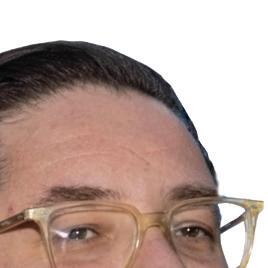
Slowly, the old behaviors that were once prevalent in the industry were unsustainable, as one generation of executives was replaced by the next. Incidents that would have been ignored in previous decades became highly public scandals, with career-ending consequences for executives.




The women in leadership roles actively supported each other across companies, a rarity in this competitive industry. They established a women’s network, promoting mentoring programs, leaving a legacy of good practice. In Las Vegas, many early female leaders have traversed into other roles in management of casinos, resorts and corporations, in law, governance and regulation of the industry, and are increasingly driving the future of the suppliers and technology sectors.
When, in 2019, Sandra Douglass Morgan was appointed the first Black Chair of the Nevada Gaming Control Board and when McCarran, Las Vegas’ primary airport was renamed after Harry Reid in 2020, there was collective consensus that Las Vegas had finally entered a new era.



FAREWELL AND WELCOME, AGAIN.

When people claim that Las Vegas was better in the good old days, ask them, for whom? Our industry bears a legacy fraught with discrimination, injustice and hardship, and the state, the city and the casino industry owes much to those who won those battles. Some won by patience, debate and negotiation, others by force, will and perseverance.
Las Vegas’ story is that leadership is not the exclusivity of management and financial success does not assure moral right. It also tells us that when change occurred in Las Vegas casinos, the primary color responsible was green; business came first. Emerging from colleges and universities, today’s industry professionals are starting from a different place to those working in the mid-20th century. Today, we are standing on the shoulders of giants, and this industry owes a debt to those who made our city both welcoming and fabulous – and not just words on a sign.
GAMINGAMERICA | 75 OLIVER LOVAT | GAMING AMERICA
OLIVER LOVAT Denstone Group CEO
THE IMPACT OF USING DATA FOR GOOD
Dr Kasra Ghaharian, Postdoctoral Research Fellow at the University of Nevada, Las Vegas’ International Gaming Institute, provides perspectives and insights on academic-industry research.
My personal career trajectory in the gambling field has not been a straight line, but there has been one constant: data. As an academic scholar, now at University of Nevada, Las Vegas (UNLV) International Gaming Institute (IGI), I have been involved in a number of academic-industry research projects, which have allowed me access to vast amounts of data. I view these initiatives as extremely valuable to the progression of knowledge in our field. There are, of
course, critics of this model who worry about the integrity of this research. I do not intend to argue for or against such initiatives; it will be quite clear from my past experiences and current endeavors that my commentary on that matter could be a little biased. Instead, I’d like to share a little about my personal journey with research and gambling data before providing some key takeaways on academicindustry research...
It’s 2009 and I just arrived back from the UNLV campus at my apartment complex after a full day of classes. I pressed the number for my apartment floor, but quickly stopped the elevator doors from closing to let a fellow resident on board too. I noticed his name tag, 'VP of Marketing,' adjacent to a well-known casino company logo. I thought to myself: “Go ahead. What’s the worst that can happen?”
“I’m a Master’s student at UNLV and

76 | GAMINGAMERICA GAMING AMERICA | RESEARCH
would love the opportunity to talk to you about your role, as well as share some of the research I am doing."
I’m glad I took the initiative because this chance encounter became a defining moment for my academic journey. After receiving a business card, I followed up with a phone call the next day. This led to a meeting the following week, which led to the use of the casino’s slot machine data for my Master’s Thesis, which led to the first published work on using math to optimize the casino slot floor.
I was ecstatic, especially after hearing about the experiences of my fellow peers struggling to get data for their research. Most of these students would end up designing a survey to investigate some phenomenon and, if they were fortunate enough, get a few hundred responses. I on the other hand had access to a mass of real-world objective data. With data from an actual casino and actual slot machines, the practical significance of my work was clear. This was the beginning of my passion for data analytics.
After working in the gaming industry for a number of years, I returned to UNLV for my PhD and, for my dissertation research, mined a trove of data made available via the IGI Payments Research Collaborative. The dataset contained over 90 million customer transaction records from a major gambling payments provider. With my Master’s Thesis I employed advanced data analytics for commercial interests, but during my PhD dissertation I became passionate about using data for good. Specifically, I used a subset of artificial intelligence (AI) called unsupervised machine learning to find groups of customers who may be at-risk of gambling problems. Once again, the real-world implications of my research were bolstered by the nature of the data; objective data from a real industry operator that reflected the actual behaviors of real people.
Now, as a Postdoctoral Researcher at IGI, I’m excited to be embarking on a
new industry collaboration supported by Axes.ai. Axes.ai is committed to using its data for good and acknowledges the integral role independent scrutiny and research plays in this process. Axes.ai Scholars at IGI will explore the use of novel AI and machine learning methods that have the potential to revolutionize harm prevention in land-based gambling environments.
Academic-industry research has played a crucial role in my development as a researcher and data scientist. These programs, when structured in a purposeful manner with ethics and integrity at the forefront, have the potential to provide great benefit to students, the academy, organizations and the field as a whole.
THE IDEAL RESEARCH PROCESS:
1) A data feed. There are hungry students ready, able and willing to devour data. They are eager to deliver high-quality insights by robust methods. They are highly motivated, given their imminent entry into the job market. They are also committed to methodological rigor, as a clear demonstration of the
scientific method is a requirement for graduation. Additionally, students will typically pursue novel research that has the potential to transform the status quo. All these factors – motivation to seek employment, robust research methodologies and innovative ideas – create an attractive proposition for industry stakeholders seeking to garner value from their data.
2) Crystal clarity. A chief concern regarding academic-industry research is that there is a chance of the benefactor influencing the research process. This is something that can be easily addressed through transparency; and is something we strove for with our Payments Research Collaborative. To enforce transparency in our methods, we recorded our protocols on publicly accessible repositories before initiating any analyses. We published our findings in peer-reviewed academic journals and also made subsets of our data and code publicly available. To be clear (pun intended), we did not pioneer these practices; and we give credit to our peers and others in the gambling field who have demonstrated and promoted the practice of open science.
3) Measurable impact. Impact factor, H-index, number of citations, among others are metrics used to measure the 'influence' of research. These metrics are important in academic circles, but do little to indicate the wider reach and practical significance of research. In medicine, for example, a piece of research highlighting the risks of a certain drug could be published in a high-impact academic journal, but it would be of little value if those findings did not reach those responsible for manufacturing the drug and/ or administering the drug to the public. The same holds true in gambling and academicindustry research can help bridge the gap in translating science to practice.
KASRA GHAHARIAN UNLV Postdoctoral Research Fellow
And none of this happens without collaborations with stakeholders throughout the gambling world. If any of this piques your interest in the way it captured mine all those years ago – UNLV, IGI and I are only an email away.

GAMINGAMERICA | 77 RESEARCH | GAMING AMERICA
COMMITTING TO RG AND THE ENVIRONMENT
Enrico Drago, CEO of IGT PlayDigital, speaks to Gaming America about its gameplan for expansion in 2024, and what sets IGT apart from other providers.
As more states embrace regulated sports betting and iGaming, what is PlayDigital’s game plan for entering those new markets?
IGT PlayDigital is well-positioned for expansion in the global iGaming market via our content portfolio and platforms, and in the US sports betting market via our PlaySports solution. We have the right systems, technologies and staff to move quickly on growth opportunities and expand into new markets. Over the last five-plus years, IGT PlaySports has quickly scaled its footprint in North America to more than 30 jurisdictions and over 90 sportsbooks. This growth can be attributed to many factors, including the vast expertise of our team, the quality of our technology and PlaySports’ ability to serve a wide range of customers spanning commercial and Tribal casinos, lotteries, racetracks and B2C operators such as FanDuel Group.
The dedication and expertise of our iGaming team, coupled with the quality of the PlayDigital solution, has also propelled our iGaming leadership position, particularly in North America. Last year’s acquisition of iSoftBet continues to help us meet our growth targets and bring casino games to players worldwide via our game aggregation platform that unlocks access to IGT PlayDigital’s native game library and more than 8,000 games by other content suppliers. Our Remote Game Server (RGS) and our vast library of proprietary games, omnichannel titles
and player-favorite licensed themes differentiate IGT PlayDigital and deliver meaningful value to our customers.
How have your current partnerships shaped the company’s 2023 trajectory?
H1 2023 was very strong for IGT PlayDigital, and I would expect that success to continue through the rest of the year. We’re grateful for our loyal customers, who partner with us to extract the most value from their IGT PlayDigital investments, and frequently communicate their goals and players’ demands. This dialogue enables us to tailor and evolve our products and services in meaningful ways that will help our customers achieve their short and long-term performance objectives, driving the sector forward.
For example, 2023 was a landmark year for PlayDigital and our longtime customer, BetMGM. In March we helped BetMGM launch Wheel of Fortune Online Casino in New Jersey, the first brand-led online casino in North America. Several months later, BetMGM was among the first operators in the country to offer players the Wheel of Fortune Triple Gold Gold Spin game, the first omnichannel Wide Area Progressive jackpot in the US. When PlayDigital partners have customers who embrace innovation, amazing things can happen. Most recently, we announced the launch of a bespoke game for Caesars Palace Online Casino, Caesars Cleopatra. The game
launched to much fanfare and high player interest. Similarly, IGT PlaySports continues to help FanDuel Group defend its position as America’s #1 Sportsbook. As FanDuel’s retail sports betting partner for the US, we work side-by-side to ensure our technology stack is evolving in real time with changing player preferences and emerging market opportunities.
What do you feel differentiates IGT PlayDigital from other iGaming and sports betting suppliers?
IGT PlayDigital is backed by IGT’s legacy in the industry as a champion of Tribal gaming and innovation, as well as its decades of history as a responsible global supplier to gaming and lottery operators. This legacy gives operators confidence in PlayDigital’s ability to understand their goals, opportunities and challenges. Long before iGaming and sports betting expansion, IGT’s commercial teams were earning the trust of operators worldwide and amassing player and industry insights. Online casino and sportsbook operators alike know that when they partner with IGT PlayDigital, they’re working with a company that prioritizes its customers’ success and operates with the highest standards in integrity.
More tactically speaking, our iGaming customers look to IGT PlayDigital to furnish games with the widest player appeal –games that got their start in land-based casinos. Storied games such as Cleopatra, Wheel of Fortune, Rich Girl and Double
78 | GAMINGAMERICA GAMING AMERICA | RESPONSIBLE GAMING
Diamond are titles that players actively seek out in casino environments and are comfortable playing. We continue adding to that omnichannel momentum with games such as Money Mania and Prosperity Link –both coming soon to the PlayDigital portfolio. When it comes to sports betting, our entire PlaySports enterprise was built from the ground up for the US market. Unlike some suppliers that transitioned an international team and technology stack, IGT PlaySports’ platform was designed specifically for the US market, has a Las Vegas-based trading advisory team and is led by one of the nation’s experts in the subject, Joe Asher.
How has the company pursued responsible gaming education and awareness in 2023, and what measures will PlayDigital take next year?

IGT prioritizes responsible gaming (RG) in all that we do, as it is a central element to our company-wide Sustainable Play initiative and underpins IGT’s approach to Positive Play. In addition to required employee training and long-standing relationships with leading research and advocacy groups, IGT maintains a publicly available Responsible Gaming Policy that outlines the company’s commitment and approach to RG. We also embed a range of RG features into our products and solutions. Last year, IGT became the first US supplier to achieve Global Gambling Guidance Group’s responsible gaming accreditation for sports betting, making IGT certified in responsible
gaming across all product segments.
Tell us about what PlayDigital has been doing recently for local communities. What programs or non-profits have you partnered with this year?
IGT is active in the communities where its employees live and work. The company supports a range of employee-driven programs, company-driven programs and our flagship community program, After School Advantage (ASA). I encourage PlayDigital employees to participate in these programs whenever and however possible. Just recently, IGT achieved an impressive milestone in Rhode Island with its ASA program, a global program devoted to providing young people with access to technology in a safe, nurturing afterschool environment, while promoting opportunities in digital learning centers. In July, IGT sponsored its 350th ASA program with a new technology lab at a local community center in Providence, RI, home to one of IGT’s corporate offices and workplace of many PlayDigital employees. Similarly, the PlayDigital team in San Francisco has a special relationship with a local charity organization called Farming Hope. The community-focused charity provides Bay Area families with farm-raised groceries, meals and other resources and my team in San Francisco genuinely
enjoys supporting Farming Hope’s mission by donating their time and resources.
As





more companies in the industry shift their focus to environmental preservation efforts, how does PlayDigital aim to address those issues?
Earlier this year, IGT introduced its Sustainable Play initiative. Sustainable Play represents IGT commitment to leading the gaming industry in global sustainability by celebrating our dedication to our people and planet. Sustainable Play is broken into four key pillars that guide our sustainability efforts: valuing and protecting our people, advancing responsibility, supporting our communities and fostering sustainable operations. One way our customers might see this commitment in action is via IGT’s partnership with Treedom, which enables IGT to reduce waste created at trade shows by giving away trees in a virtual forest, instead of distributing branded plastic and paper promotional items.
AMERICA RESPONSIBLE GAMING | GAMING AMERICA | 79
"THE DEDICATION AND EXPERTISE OF OUR IGAMING TEAM, COUPLED WITH THE QUALITY OF THE PLAYDIGITAL SOLUTION, HAS ALSO PROPELLED OUR IGAMING LEADERSHIP POSITION."
Enrico Drago CEO IGT PlayDigital
LONG-TERM RELATIONSHIPS: LONG-TERM GROWTH
Gaming America speaks with Pariplay North America VP Shivan Patel for an inside look at what's in store ahead of 2024.

This year, Pariplay has collaborated with a number of companies. How can we expect these relationships to evolve and benefit your customers?
Our collaborations promise exciting long-term growth. As we nurture these relationships, players can look forward to enhanced game offerings with titles from renowned providers, reaching more platforms. Additionally, these partnerships open doors to technology integration, resulting in smoother player experiences and innovative features. The expansion of our network means broader access to different markets, paving the way for more engaging gameplay and entertainment. Ultimately, players are the real winners here, as they’ll enjoy a richer and more varied gaming environment.
What are the biggest gains your partnering operators can have through using the Fusion platform?
Our Fusion platform aims to make it easier for game developers to distribute their titles, and for players to discover as much content as possible. We have over 14,000 games on offer, from over 120 providers.
The wide range of slots on offer will immediately add more value to any operator’s portfolio. Our Client Area, introduced earlier this year, also provides a unique point of service for marketing and compliance assets. Operators can save time and effort by sourcing game info sheets, rules, game assets and certification files in one place. We also
have retention tools to enhance player value and provide ROI for operators, with features such as Fusion Tournaments and Spin That Wheel.
Pariplay has had successful launches in New Jersey and Michigan. What other states are on the company’s radar in future?
We’re now licensed and able to operate in five US states and four Canadian provinces, so we’re definitely seeing strong growth in North America. It’s a promising market that we’ve been focused on for a while. Latin America has also been a market where we’ve seen significant expansion recently, and we’re definitely planning on







going even further in the near future. Our offerings put us in a good position to keep growing, and we’re waiting to see more states open their doors to iGaming. The ball is certainly rolling, and we'll keep a close eye on where it’ll land next.
What trends have you seen in player preferences and what titles from Wizard Games are getting the most traffic right now?
It’s safe to say the industry is no stranger to innovation – whether it’s new mechanics, new platforms ornew evolutions in tech, we’re always looking at how players enjoy our games and considering where to go next. Personalization and gamification have been on the rise recently, with an increasing amount of players looking for experiences tailored to them. An equal measure of personalization and engagement could see massive success. Mobile gaming has also overtaken desktops. Optimizing games to ensure they run just as well on small, portrait-oriented devices is crucial. “Bring in the Fish” checks those boxes and more. “Cup Glory,” our recent title released in time for the Women’s World Cup, has also seen similar results.
What products can we look forward to in the next 12 months?
SHIVAN PATEL Pariplay

 Vice President - North America
Vice President - North America
Increased offerings on our Fusion platform. We will be live in Pennsylvania and Connecticut in the next 12 months, and we are extremely proud to be able to offer our operators a wide range of content in more states. We’ll also have some titles of our own to look out for.

80 | GAMINGAMERICA GAMING AMERICA | IGAMING




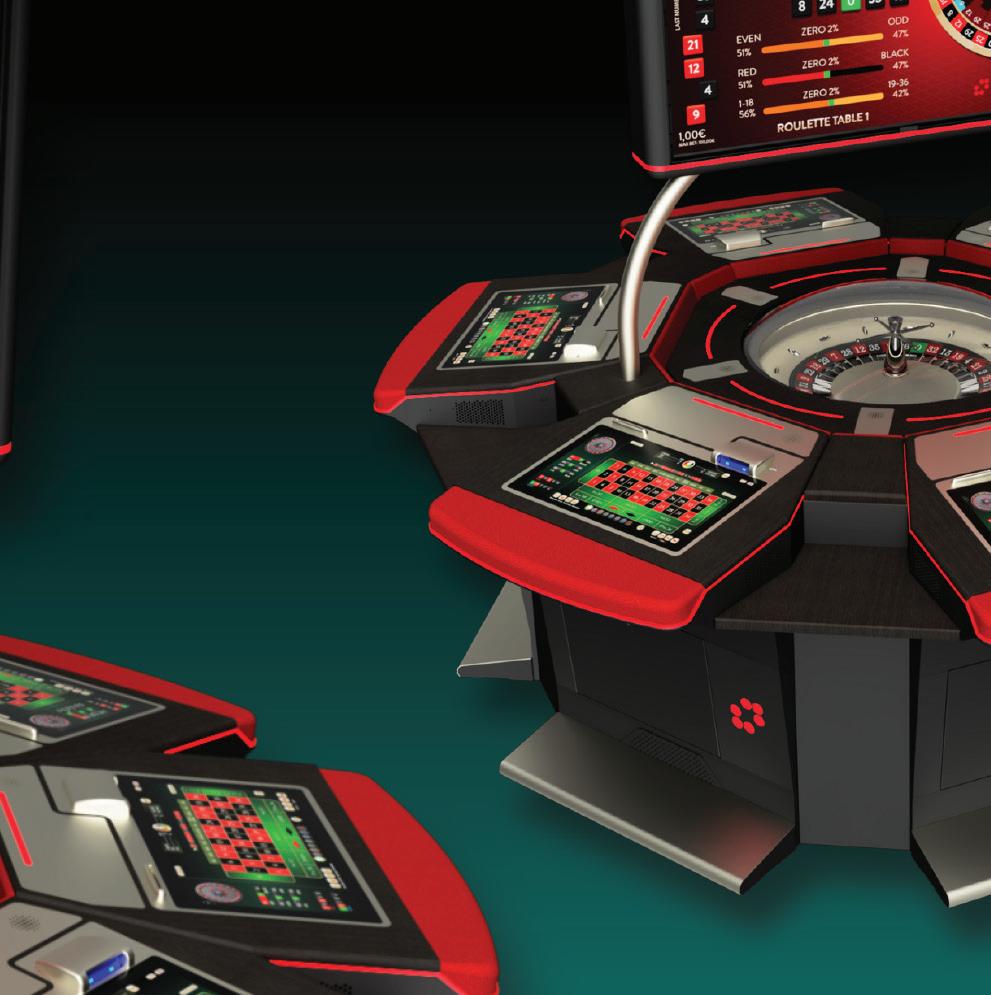
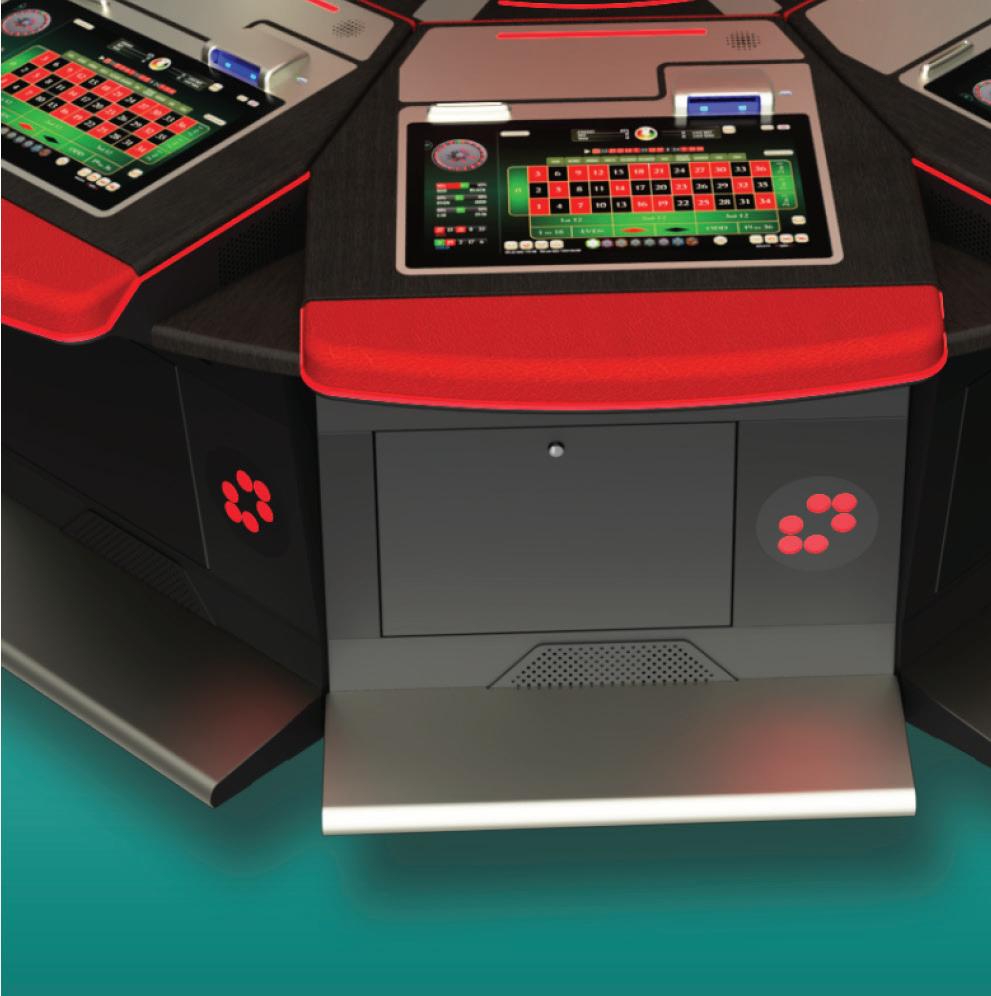



Omer Sattar, CEO of Sightline, has had his eye on one prize since the very beginning – cashless casinos. With developments in technology, he says we’re getting there. But to ensure that cashless is widely adopted, he believes operators need to be careful to choose technology that works well.

You’ve been in the payments industry for quite some time. How has it changed over the years?
Consumer behavior has been and continues to be the driving force in payment technologies. Whether it’s big banks who have supplemented the teller experience with walk-up and drive-thru ATMs; or it’s the creation and massive adoption of credit cards; or it’s pay-by-phone technology; consumer demand for increased convenience has been the driver behind every payment innovation. Throughout the evolution in payment technologies, there have been some constants. First, consumers want to know where their money is and that it is safe. Second, consumers want the freedom to spend their money when, where and how they want. Third, consumers want loyalty tied to their payments. Lastly, consumers don’t want to be charged fees for spending their own money.
Over the last 70 years, the fundamental trend in payments is the ease of access to your own money to pay for things when, where and how you want to pay for them. In other words, as consumer demand for convenience has steadily increased, payments companies have had to ensure payments are seamless and as safe as possible.
To us at Sightline, the “how they want
DRIVING CASHLESS
to pay” is fascinating. That’s what every casino operator and regulator should be thinking about. Consumer behavior has driven every evolution in payment technology for decades, and now the casino industry needs to decide to embrace the “how” so we can best compete in thelarger entertainment industry.
Sightline has been advocating for casinos to move to cashless technology for some time.
Cashless sometimes seems like a new conversation; however, the reality is, it’s been around for decades – we’ve just called it TITO (ticket-in, ticket-out). In the early 2000s, there were some calls to move to a completely cashless environment; however, consumer behavior dictated casinos maintain a cash element to payments.
Since then, there have been various iterations of cashless gaming; however, general banking and payments technology was not ready and, more importantly, consumer behavior wasn’t quite ready for it yet. In 2004, mobile phones were few and far between. Now, everyone has a mobile phone, and consumers are using their phones in ways we only dreamt of in 2004. Now consumers are using their phones to pay for everything, everywhere –grocery store, coffee shop, online shopping they do on their phones, you name it.
Now phone payments are just as, if not more, convenient than carrying a card in your traditional wallet. Consumers are carrying much less cash and are carrying their phones everywhere. And now consumers worldwide are using their phones for iGaming and sports betting, they are looking at brick-and-mortar casinos, strumming their fingers and tapping their feet, waiting for us to respond to their new gaming and payment behavior.
What do casinos need to do to execute a transition to the cashless way of life?
It’s not a light switch; however, it’s
not complicated either. What we need is innovation that is responsive to our consumers, and their new demands and preferences. Legacy systems are hard to change and it requires infrastructure; systems integrations matter.
Think of it this way: payment systems are built to move money. In the casino industry, a two-way system of moving money is essential because consumers aren’t just paying for a cup of coffee and moving on. They can pay for a game and can win money on that game. That bi-directional system requires a network. To move the industry forward, Sightline created a network called SPAN, short for Sightline Payment Application Network, and that is the key that allows us to move money in and out of game systems. Since we created it, we have integrated SPAN into dozens if not hundreds of systems, making widespread servicing of consumer demand for cashless payments possible. Just the way Visa and MasterCard were built to be ubiquitous in retail, we have been building SPAN for over a decade to be ubiquitous, but in gaming led ecosystems.
Which casinos or operators do cashless best and what makes them the best at it?
Today, several commercial operators are experimenting with cashless including Boyd Gaming, Penn National and Resorts World. What makes them better is their user interface. The best user interfaces reduce what is called “time to play,” meaning, the time it takes from the minute a consumer decides they want to gamble to the time they’re playing. Initially we thought the ideal time to play should be three minutes or less. During our conversations with the team at Apple, they pushed us to reduce that to just one minute. Now we understand that if we want broad and widescale adoption, our collective goal should be that the consumer should be able to download and play in less than one minute.
82 | GAMINGAMERICA GAMING AMERICA | TRANSITIONING

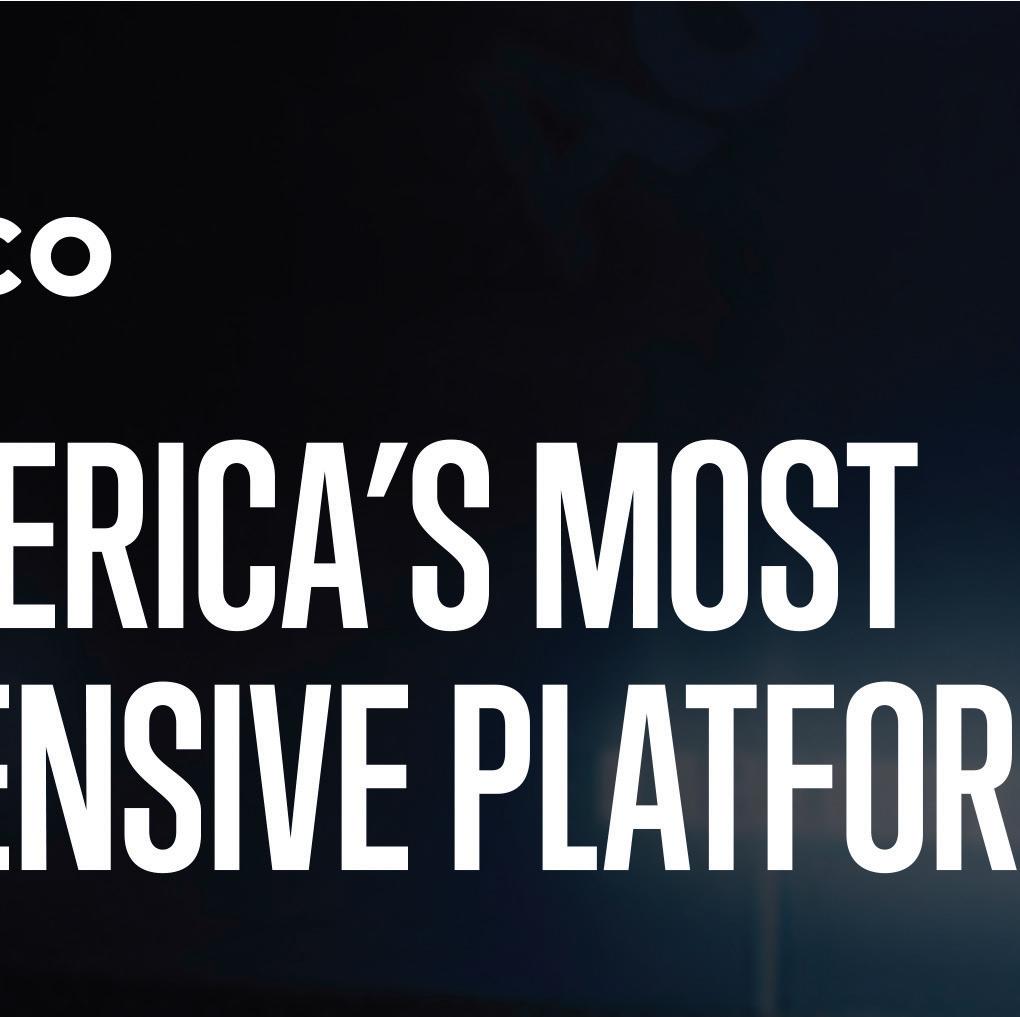




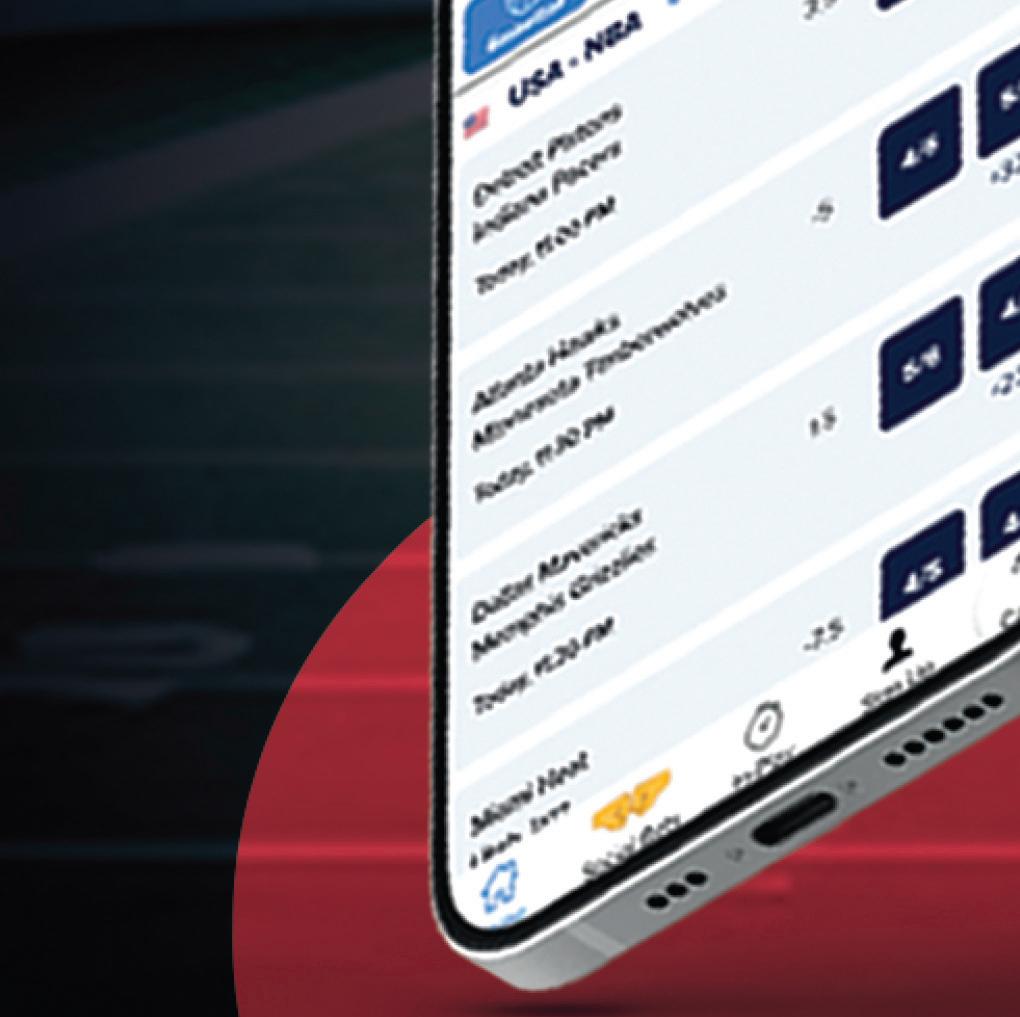


HAVE IT YOUR WAY

Dynamic Gaming Solutions CEO Mark Larson discusses how game developers are influenced by their players and communities.

Mark Larson, CEO of Dynamic Gaming Solutions (DGS), sees personalization and localization as two of the most critical components of success in today’s gaming industry.









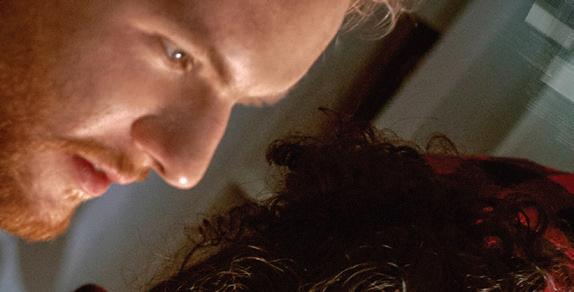




DGS is a third-party distribution and service provider of electronic slot machines, classic table games and other gaming solutions. What do you see as the biggest challenge in this niche industry?



A pain point we hear about often is

the prevalence of generic gaming solutions that are primarily designed for large corporate casino conglomerates. Our casino clientele seek games and products that will truly resonate with their markets and players. At DGS, we pride ourselves on understanding the uniqueness of each casino we work with and tailoring our recommendations accordingly. We recognize that success in one location may not guarantee success in another and our approach is centered on providing localized solutions for maximum impact.
What do you see as the biggest opportunity?
There’s a real demand across the US for tailored, localized gaming solutions and services. At DGS, this happens to be our speciality and it’s what sets us apart. We take pride in living and working in the markets we serve, recognizing the nuances and diverse characteristics of each region. With our expanding presence, now covering 17 states, we are bringing high-performing games and products to rural and Tribal casinos nationwide. Our client-centered approach allows us to be the single point of



84 | GAMINGAMERICA GAMING AMERICA | THE CASINO FLOOR
contact for all their gaming needs, fostering strong and lasting partnerships with our valued customers.







DGS was founded in 2016. How has the business changed over the years?
Over the past seven years, DGS has undergone tremendous growth and transformation. What started as a single location in Oklahoma City has now expanded to over 100 jurisdictions across the US. Our team has grown significantly, from a small group to now a robust and passionate workforce. Throughout this journey, we have prioritized building strong relationships with both our manufacturing and casino partners, seeking win-win opportunities and embracing our deep commitment to local markets. This approach has been a driving force behind our success and the ability to deliver effective and customized gaming solutions that truly resonate with our diverse clientele.





















How has the overall industry changed?
The gaming industry has undergone a remarkable transformation in recent years, driven by technological advancements and the entrance of new competitors. Additionally, the geographical expansion of various forms of legalized gaming in new states has played a significant role in shaping the landscape. For us at DGS, the key lies in recognizing the areas where these innovative gaming technologies can create a substantial and positive impact for our clients and their players.
Where do you see DGS going in the next five to 10 years?
In the next five to 10 years, I envision DGS solidifying its position as a trusted and reliable casino partner throughout the US. Our focus on localized support, customizable gaming solutions and our unwavering commitment to minimizing risk for our casino partners will be the driving
NUANCES WILL PLAY A CRUCIAL ROLE IN MEETING PLAYERS' EXPECTATION AND DRIVING SUCCESS IN THE MARKET."


forces behind our success. As we continue to build strong relationships with casino communities and their local players, our expansion will be fueled by the endorsement and support of those we serve. Together, we will continue to shape the future of the gaming industry and bring unforgettable gaming experiences to players nationwide.
Where do you see this sector being headed?



The gaming industry is on an exciting trajectory, driven by the dynamic interplay of players’ evolving preferences and manufacturers’ constant pursuit of innovation. Players increasingly seek personalized and engaging experiences, influencing the direction of gaming product development. Manufacturers and casino



operators, in turn, are focused on staying competitive by providing a regular flow of new products that exceed performance expectations. As the industry evolves, we see a clear trend towards maximizing return on investment in new games and equipment while mitigating risks associated with the introduction of new products. Local nuances will play a crucial role in meeting players’ expectations and driving success in the market. Overall, the future of the gaming industry revolves around personalization, performance, innovation, and a careful balance between risk and reward.
What are you most excited about when you think about DGS ?




























































I’m incredibly excited about DGS’ ability to create a positive impact, not only on casino floors but also within the local communities we serve. Our dedication to providing tailored solutions, building strong partnerships and delivering exceptional localized service sets us apart, and allows us to offer superb gaming experiences for our clients and their customers. Seeing the positive influence of our work in these communities is truly fulfilling and drives us to continue pushing the boundaries of what’s possible in gaming.
What is the best part of your job?
MARK LARSON Dynamic Gaming Solutions Chief Executive Officer


The best part of my job is the opportunity to drive change and foster innovation among rural and Tribal casinos. I’m deeply passionate about collaborating closely with our partners to shape the future of gaming for thousands of players. It’s a unique and exhilarating experience to see the positive impact we can make in the industry, and the communities we serve.

GAMINGAMERICA | 85 THE CASINO FLOOR | GAMING AMERICA
"LOCAL
THE FUTURE IS CASHLESS & MOBILE
Table Trac Inc. President and Founder
Hoehne discusses
Chad Hoehne, President and Founder of Table Trac Inc., has been eying a transition to a cashless, mobile experience on the gaming floor for some time.
Hoehne, who founded his company in 1995 to manage table games, is always ready to pivot. In the early 2000s, as he saw more gaming space being devoted to slot machines, he transitioned what was then known as Table Trac into a “complete back-of-house CMS system” that covered everything from slot machines to revenue audits.
Now he’s looking to take CasinoTrac –and the casino industry as whole – in a more modern direction, with a focus on

cashless transactions and player loyalty, and promotional experiences that can be had in the palm of your hand, on your phone, rather than at a gaming floor kiosk. It’s a transition Hoehne and CasinoTrac have been planning for since before the Covid-19 pandemic.


You founded what became CasinoTrac nearly three decades ago. How has your company changed over that time?
We’ve gone through quite a number of changes through the years. We started off in the table games management and table-games player-tracking space in the


mid-90s. We were doing player-game tracking systems both on table games and as the player-club host against several casino management systems in the early days of casino management player clubs being hooked on to an SDS. As the years evolved, and with promotional free-play credits coming on the scene, it then became clear the casino players’ club needed to be closely aligned or knitted into the CMS system or the slot system. And so that relationship changed at that point in time.
We realized that the space with the biggest need was really over on the slot floor; we saw a shift in the gaming floor space away from tables and towards the slot side. By
86 | GAMINGAMERICA
Chad
the future of cashless and mobile gaming, as well as reflecting on the journey to date for Table Trac, and CasinoTrac. In some ways not much has changed; in others, everything has...
GAMING AMERICA | CMS
2003, we had our first slot interface board created, programed, up and running and testing. By moving that forward, we went from a table games management, players’ club and promotional system to a complete back-of-the-house CMS system entailing both the slot-floor management, the rev-audit function associated with gaming floor operations – both in tables and slots – the player tracking, the marketing, the promotions administration and management.
In recent years, there is now a bigger call for things that are interactive and entertaining to the actual gaming floor. That entails player club promotional or loyalty kiosks that we’ve been doing since 2007, but those have been evolving over time. And we really made a major push on that within the last couple of years so that, not only do we have a depth of catalog of content for those players’ club loyalty kiosks, but we’re also agnostic as to the backend system that those kiosks operate with. So, we’re expanding our operations to be not just with CasinoTrac’s CMS system clients, but also with clients of other CMSs, as the demand increases.
You touched on this a little bit, but how have you seen the gaming industry during those 30 years change over time?
You know, that has two sides to it. In some ways, it hasn’t changed at all. And my other answer is it’s completely changed. I don’t know where to start. Looking at it from the systems side, systems have always been an integral part of gaming-floor operations since I got involved. In fact, when I founded TableTrac in 1995, it was because I was specifically looking at various systems within the casino environment and I found a gap at the table games back in 1995. That’s the genesis of bringing this company forward. But over the years, the systems part has supported various advances in player loyalty, player identification, hosting and automation in that area, so that not just a select few clients could receive benefits relative to the casino’s generosity and reinvestment. In earlier times, that was reserved for an
exclusive few players, with personal hosts who were keeping score in notebooks. But the systematic approach to player analysis, and then player promotional deployment and creation, is something that has been a big change over the years and continues to get more and more sophisticated. In our system, we have the module we call “Reflective Rewards,” which is reflective to the customer’s patterns and behaviors. It rewards them based upon specific, identifiable patterns that we feel warrant certain types of rewards.
Where do you see the next frontier for CasinoTrac?
Cashless. Absolutely. The advent of the acceptance of cashless technologies to the gaming floor, funding wallets from external sources and being able to bring that all the way to gaming is something that has been accelerated, I think, due to the Covid scare, but is now becoming mainstream. It’s an area where we were (before Covid) developing a mobile app that brought the functionality of the video screen and the player terminal window out onto people’s phones.
But it became more and more important as we added the financial functionality. So now your phone can not only serve as virtual cards to use around the gaming floor, instead
of the physical plastic card; but you can also drawdown funds and pass them on to the game that you’re connected with using the phone as the remote control. That’s a key area of several of our recent patents.
Very interesting. I assume that’s why you believe CasinoTrac will be well positioned to serve your clients going forward: because you’re already looking ahead. Or can you talk about why you’re going to be the company to help move the casino industry into the cashless world?
Well, first of all the architecture in our platform gives us the unique advantage in connecting to external, third-party financial services providers and we remain agnostic relative to those companies in providing access to all comers. We have interfaces with big names that you all know, and we also have interfaces already built with some of the up-and-coming ones you may not have heard of. So, by providing a platform that is flexible and can connect using latest technologies in a secure manner, we have positioned ourselves to accept the decisions of the operator and be able to implement them clearly.
If an operator is invested in one or another of the third-party financial services provider, we’re going to be there as a partner to connect with them and make their product a success; and be able to integrate that into the casino’s branded app for their customers that has the other player loyalty functions already built into it. Player loyalty functions, which heretofore would generally have been seen on the player loyalty kiosk, now move out onto the phone along with the financial services and you’ve got the complete package in the palm of your customer’s hand.
You’ve thought this through.
CHAD HOEHNE Table Trac Inc. President and Founder
We’ve been pursuing this from – like I said, before Covid – we had that vision of the players’ club moving out onto the palm of their hands in the personal devices of the clients. It was only enhanced by this rush now with the cashless portion.
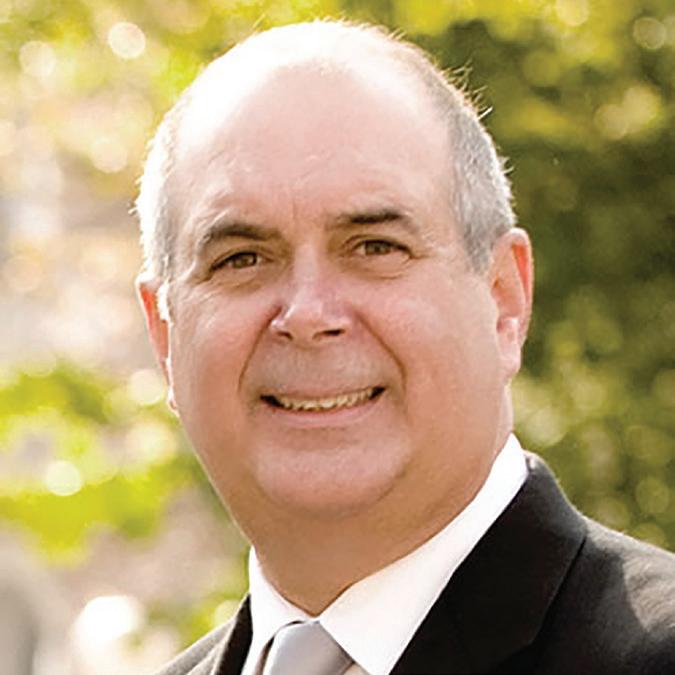
GAMINGAMERICA | 87 CMS | GAMING AMERICA
WHAT’S HOT IN SLOTS?





Gaming America speaks to Fiona Leung (Velvix), Dan Schrementi (Incredible Technologies), Steve Walther (AGS), Gerard Crosby (Konami) and Laura Olson-Reyes (Eclipse Gaming Systems).


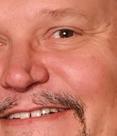







FIONA LEUNG Director of Game Design
Velvix
Fiona Leung comes from an eight-year background in game design. Her most recent role with Velvix includes leading a team of game designers and developers in the creation of titles for a new manufacturer targeting casinos across the United States and Asia.


DAN SCHREMENTI President of Gaming Incredible Technologies








Dan Schrementi has been part of Incredible Technologies since 2004, first joining as a marketing team member in the Amusement division. In 2011 Dan helped shape the company’s then-emerging casino gaming initiative and has since been an integral part of the division. As President of Gaming, Dan oversees all Gaming operations and leads commercial strategy.
STEVE WALTHER VP of Game Development

AGS



With nearly 30 years of gaming industry experience across multiple disciplines, Steve Walther has a broad knowledge of product management, gaming operations and casino systems with extensive expertise in product lifecycle management, casino marketing, software development, and organizational behavior. His experience spans global product planning, performance analysis, and strategic planning including gathering and prioritizing customer requirements, defining the overall vision and roadmap for products, and building launch strategies.
GERARD CROSBY SVP & Chief Games Product Officer
Konami


Backed by nearly three decades of experience creating and delivering casino games entertainment to diverse global markets, Gerard Crosby brings a depth of expertise to his role as Senior Vice President & Chief Games Product Officer for Konami Gaming, Inc., and its sister company Konami Australia Pty Ltd.



LAURA OLSON-REYES SVP of Marketing Eclipse Gaming Systems






Before joining Eclipse Gaming, Laura Olson-Reyes served as the VP of Marketing and Corporate Communications at AGS, and earlier, as the Executive Director, Community and Corporate Relations at Scientific Games (now Light & Wonder). She received the Great Women of Gaming – Proven Leader Award, was named in the “Women to Watch” by VEGAS INC, and won the Women Worlds Awards for The Communicator.

88 GAMINGAMERICA GAMING AMERICA | VIEWPOINTS
Dan Schrementi: The first priority of any slot design is summed up with one word “why.” The best games have a reason behind every aspect of the design to target a distinct goal. The critical attributes that make up the game, such as the game math, feature designs, branding, player pricing, all have to line up to a distinct segment of player to be successful. Games that don’t align well tend to fail, and those that succeed at mastering this delicate balance are the trendsetting games that have redefined our industry. At Incredible Technologies we’ve adopted a new game design methodology that spends more effort defining “why” before setting out to execute the project.
Fiona Leung: There are multiple priorities at the ‘front of the list’ when it comes to designing a new slot game: easy to understand, proven game mechanics, theme and storyline. The player should be able to understand what they are chasing in the game within the first minute of entering the base game. Game mechanics help us understand why successful games attract players. Don’t copy, but look at what’s working and decipher ways to further enhance the player experience. This could be a better pay table, adjustments to volatility, wider range of prizes, more potential to trigger free spins, etc. The theme itself is not enough to create a successful new slot game. Mechanics and themes need to complement each other. The game’s storyline needs to make sense and be convincing.
Gerard Crosby: We aim to create strong entertainment. Our parent company, Konami Group, has deep roots in video games and arcade games. And it is from that mindset and development approach that we look at designing new slot games — We think of it as entertainment. New creative designs should be fun, enjoyable, and rewarding. By prioritizing entertainment, we’re driven to explore the novel game mechanics, eyecatching graphics, unique characters, and strong mathematics that players want and operators need.
What is your first priority when designing a new slot game














Laura Olson-Reyes: Our first priority is to make sure that the game will entertain players. We look at the math model, bonus features and play mechanics to make sure they’ll all come together to offer a game that delivers high levels of player engagement. We also look at where it fits in our current portfolio; does it offer a feature or play mechanic that we don’t currently have, but that players are seeking? Finally, we look at the markets where we do business to ensure that the game will meet the demands of the players in those markets.
Steve Walther: When we design games, we focus on creating something that is relevant and resonates with players so they can have enjoyable experiences. These experiences engage our players which leads to profitability for our casino operator customers.
GAMINGAMERICA 89 VIEWPOINTS | GAMING AMERICA
Gerard Crosby: Graphics have changed dramatically. Slot cabinets once had static, printed graphics, primarily on the reel strips themselves. Today slot graphics are digital, moving animations that extend beyond the reels to large displays, to the buttons, between machines, and above machines. As a result, it is difficult for games to stand out. In a crowded visual market, strong branding is even more critical. Game graphics and sound need to be distinct and carefully designed in such a way to attract players walking by, while for the player on the machine these same graphics and sounds need to be make the game enjoyable to play.

Dan Schrementi: There was an era in slot cabinets where it was a race to what I call “obvious technology”. This would include things like single-channel audio to multi-channel, standard definition video to HD and then 4K. This race is over for now and a cabinet is not going to standout by just adding technology. To a player’s eye, all new cabinets are good. I think what’s changed the most about cabinet launches since Covid is that the industry is focusing more on simple cabinets with excellent software. Hardware gets the attention, but software is the fuel to our industry. There are certainly more innovations to be made in cabinet hardware, but the trend is less about extreme cabinet designs and focused more on the all-important game.
















Laura Olson-Reyes: It’s been exciting to see how slot cabinet design has evolved over the years. We have gone from cabinets with mechanical reels and game artwork printed on glass, to all digital displays, interactive touchscreen button decks, curved displays, fully digital spin buttons and phone charging stations. Portrait cabinets with massive 4K HD or Ultra HD displays are dominating casino floors, and companies are designing amazing merchandising around their cabinets that includes towers, walls, arches, digital toppers and integrated audio and visual components that draw players to the games from across the casino floor.

What has changed the most about slot cabinets over the years














































































Steve Walther: Improved design methodology and capability over the years have led to showcasing exciting game content better. We take advantage of newer technology like LED lights, premium sound systems, and powerful 4K graphics to both attract players and provide a richer gaming experience.






























Fiona Leung: I think its easiest to list out some of the changes that are seen across new cabinet development. These include: mechanical reels changing to virtual reels; high-definition screens (3D and 4D); physical size and dimensions of cabinets; connectivity between cabinets; advancements in player tracking systems; and augmented reality.



90 GAMINGAMERICA GAMING AMERICA | VIEWPOINTS

Dan Schrementi: Simple merchandising options in the “core” product segment have always been an ingredient to our strategy at Incredible Technologies. Giving operators ways to advertise their amenities and leverage their marketing on our game banks has always been a simple way to partner with the operator on a new placement. Additionally, we like to offer add-ons that allow a game to be taller or shorter depending on the operator need – big games continue to dominate our industry but operators still consider line of sight. Most important is the game design itself. As we offer a game to a customer, we are making a concerted effort to elaborate on the story of “why” we made the game. This helps operators determine what to place it near, how to configure it, and allows us both to determine a set of expectations.










Gerard Crosby: I’ve been in the industry for quite some time, and I’ll say there are a lot of good games and great ideas in today’s casinos. The landscape is competitive and it can be difficult to effectively place new product so it will be successful. We have to know how to place the right games, in the right areas, for the right type of player; in order to ensure our games integrate well. To do this, requires strong collaboration between game development teams and game sales teams to accurately communicate the nature of the product, as well as strong collaboration between the games sales team and the casino operator to place and configure the product for the correct intended players.






















































































Laura Olson-Reyes: As a partner to Tribal casinos across the US, we work closely with our customers to make sure we are providing them with a game portfolio that will entertain their players. We partner on floor placement and positioning and make recommendations as to how to configure the games, bank the games, and merchandise the games (when options are available) to ensure high performance levels. As we introduce games into casinos, we provide a digital asset kit to give operators a suite of tools so that they can easily and effectively launch the games and share the key features with their players.














Fiona Leung: Testing, marketing and observation. Quality assurance is crucial to ensure a seamless gaming experience for players and build confidence in the brand’s products with operators. We work closely with the casino to offer promotional materials and strategies that will cause excitement and introduce players to a new game title. We observe how players react to the new game and listen to player’s suggestions and concerns that help define necessary adjustments and shape future game titles.

Steve Walther: Our games appeal to multiple market segments across most markets in North America, so when a new casino opens, its customers are often familiar with our products and seek them out on the floor. We also create brand extensions of popular games like Rakin’ Bacon that already have a national following, so it’s easy for players to recognize them in new (and existing) casinos.









92 GAMINGAMERICA GAMING AMERICA | VIEWPOINTS
How do you make sure your games integrate well into a new casino
Gerard Crosby: The key trend at the moment is bonus symbols — those slot game symbols with the credit prize values displayed on them. It is a trend that emerged with the hold and spin-style features, and it continues to expand to more and more types of features. The bonus symbol trend has been very successful because players like games that are easy to understand and clearly show the winning potential. I consider it a good, worthwhile trend. We want players to easily understand the ways to win. The challenge is continuing to involve this trend to more diverse and fun entertainment, while still making sure it’s easy to understand. Chinese themes for games continue to be popular and for a good reason. The Asian culture is vast providing a whole host of iconic symbolism that speaks of wealth, luck, prosperity, and success. All the things that casino players are looking for when playing games!







Dan Schrementi: As industry analytics have gotten better there is clearly a narrowing band of popular features. The majority of top games are comprised of about four major feature sets. Player willingness to explore outside of that band of features is currently down but what is up is innovation within those features. The best games in the industry right now are those with subtle innovations and excellent execution within the confines of these popular player features. Markets have gotten more mature and players have, as well, in knowing their expectations before they sit down. Again, at Incredible Technologies, we’ve learned we have to spend the majority of our time really answering “why” we’re making a game to ensure its design is a value-add for a distinct player segment. Recent products where we’ve executed that the best are our top products.
Steve Walther: Building upon leveraging brand extensions, we see a growing trend of games with familiar, yet slightly different, mechanics. Whether that be the actual theme of the game like Rakin’ Bacon or River Dragons, or mechanics like ‘cash on reels’ or ‘hold and spin’, players like to see something new, but not too new. Features and bonuses continue to be a strong driver for the success of games, and it is important that the value proposition is clear to slot players. These propositions are important because there is so much product diversity and competition, that players today are making decisions quicker on what drives their interest and their spend.
Laura Olson-Reyes: Cash-on-reels continues to proliferate on slot floors as do hold-and-spin, or persistence, games. Perceived skill, like you’ll find in our Cash Arcade Series, is proving to be popular and gives the player the excitement of feeling like they have some control of the outcome. When it comes to themes, we see a trend toward nostalgia. Big Shake Neon and Big Shake Carnival offer a retro 1980s neon theme and a carnival theme, featuring the classic arcade coin pusher. You also see a lot of remakes of classic slot games. We’re introducing spin-offs of Mermaid Multipliers and Highway Hogs, that feature familiar characters and symbols, with upgraded bonuses, play mechanics, and 4K graphics.
Fiona Leung: Random bonus features where non-symbol-driven trigger mechanisms have gained popularity. These can occur during the base game and excites players with additional awards. Community features integrate social interaction among players in order to enhance the overall player experience. Buy bonus feature games that allow players to instantly purchase the bonus feature instead of waiting for them to trigger naturally.









GAMINGAMERICA 93 VIEWPOINTS | GAMING AMERICA
What trends are you seeing in the industry when it comes to features, bonuses, jackpots or themes
WHAT'S NEW?
Gaming America takes a look at some of the market's newest and most exciting gaming products, available for land-based players across the country.
GET ENCHANTED BY ECLIPSE’S NEW ‘WAYS OF THE SORCERESS’ SLOT



Eclipse Gaming will exhibit its latest products at the Oklahoma Indian Gaming Association (OIGA) Conference and Trade Show August 14-16 in Tulsa at Booth No #107.


Eclipse will spotlight its Impact 49 slot cabinet at OIGA as well as debuting some of its new slot games such as Ways of the Sorceress.

This slot will be filled with sorcery, magic and the potential for other-wordly wins.
Ways of the Sorceress, will feature a mystical sorceress called Sorceress Ventura who controls magical orbs of light that award credits, free games, multi-level jackpots.
The game will exhibit enchanting graphics and immersive sound effects that bring the world of the sorceress to life.
Ways of the Sorceress orb symbols will also
allow players to win up to 5,000 credits x bet multiplier, up to 25 free spins and a major or minor jackpot will also be up for grabs.
During the base game play, the player may collect an orb symbol to enter the Orbs of Lights Bonus. Orbs can appear on reels two, three, and four, with prizes awarded based on the number of Orbs won.



The free spins are awarded in the Orbs of Light Bonus. During the free spins bonus, the Witchcraft Wilds feature and additional orbs may be awarded.


Other Eclipse titles to be shown at OIGA include the new Bandits Bounty Series, Bandidos and Outlaws. Another Eclipse booth game feature, Spin Big Gears of Wealth will showcase the third game in Eclipse’s ‘Spin Big’ series.
Ways of the Sorceress is the first in a ‘Ways of…’ series of slots, soon to be followed by Ways of Wu.
94 GAMINGAMERICA GAMING AMERICA | PRODUCT REVIEWS
“THIS SLOT WILL BE FILLED WITH SORCERY, MAGIC AND THE POTENTIAL FOR OTHER-WORDLY WINS.”
GAMING ARTS: DEAL OR NO DEAL
Gaming Arts, in partnership with Banijay Brands, the commercial arm of media and entertainment powerhouse Banijay, is proud to announce that Deal or No Deal™slot games will premiere in Q4 2023.
This exciting new product line will launch with two complementary themes, Golden Briefcase™and Briefcase Breaker™, released on the 49”portrait VertX® grand cabinet.



















These games will revitalize the familiar Deal or No Deal™ brand on casino floors with fresh content and exciting gameplay. Players will be put in the hot seat in the Deal or No Deal briefcase feature, experiencing the same pulse-racing excitement as the hit television game show.



The players’ fate is truly in their own hands, whether they choose to take a







generous banker’s offer, or push their luck until the end. Players will come back again and again for the thrill of beating the banker and winning big!




But the fun doesn’t stop there, the games also include dynamic free games, a dramatic jackpot feature and linked progressive prizes to keep the excitement sky high. A playerselectable multi-denomination screen allows the player to choose a denom and bet that is comfortable for their bankroll.



For players that crave only the action of the Deal or No Deal briefcase feature, the Buy-A-Feature option allows the player to instantaneously win the bonus without the need to play through the base game. This Buy-a-Feature option can have additional multipliers up to 10x, multiplying the potential prizes to huge amounts.


















NOVOMATIC AMERICAS: THUNDER CASH GOLD LINK AND THE SPELLBOUNDING IRISH GRACE
Tap into the enchanting allure of the Emerald Isle with Thunder Cash Gold Link – Irish Grace, a spellbinding new progressive slot machine game that weaves together the magic of Ireland and the excitement of the jackpot chase.










Players should feel the thrill surge through their veins as they spin the reels of Irish Grace. The whimsical wild symbol, a master of disguise, steps in to complete winning combinations, seeking the elusive gold pot and the enigmatic special expanding symbol. Players will keep their eyes on the reels, for these symbols hold the key to unlocking untold riches.


The heart of the game lies within the lock’n’win feature. Unleash the power of the gold pots by landing six or more on the reels. Each pot boasts secrets, from credit prizes to free games, and even the coveted mega bonus and super bonus free game wins. Watch in awe as the gold pots lock in place, and the remaining reels transform into a realm of their own, offering three initial respins. The magic
doesn’t stop there – with each additional gold pot the respins reset, and the fortunes soar higher.



Will they be the one to collect a screen full of gold pots, claiming the legendary grand prize? Or will they seize the opportunity to win the major jackpot, mega bonus, or super bonus free games? The luck is the players, and the rewards are irresistible. As the free games feature unfolds, a special expanding symbol emerges at random, expanding to cover entire reels, ready to shower players with wins, no matter where it lands. The elusive wild trinity knot symbols hold the secret to an extra 10 free games, ensuring the journey is filled with endless surprises. With 25 fixed lines and five enchanting reels, Thunder Cash Gold - Irish Grace offers a top single spin win of 1,000 times your bet, while the volatility level keeps the suspense electrifying, boasting a hit rate of around 20%. Explore the game’s different variations, each offering their unique magic, with payout percentages ranging from 88% to 95%. Available on the Diamond X J Curve, 1.55.
Get ready for players to embrace the charm, superstition and sheer excitement of Irish Grace.



GAMINGAMERICA 95 PRODUCT REVIEWS | GAMING AMERICA
DITRONICS: CASH DISPENSER SOLUTION DTX-510D; INCREASING CASH ACCESS SERVICES






































































































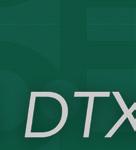



































Since 1998, through the nation’s gaming growth, Ditronics has steadily evolved as a single-source provider of technologies for cash access services. As the gaming industry evolved, the need for cash-dispensing devices was identified providing speed, accuracy and security in cash handling. The software available with these devices used scrape technology which severely limited their functionality in gaming. Through its experience in providing cash access services, Ditronics identified an industry need. The need being, casinogoers gaining access to their cash, with casino properties needing to handle that cash. Thus, Ditronics launched its new cash dispenser solution (the DTX-510D) directly interfaced with casino management systems (CMS) and integrated with cash access services, powered by our proprietary DTX-Link Software.
As a result, Ditronics has developed a way to make that cash handling more efficient. The DTX-510D is designed with features which accommodate various functions of cash management and customer cash services such as; dispensing cash or issuing tickets for cash advance and check cashing, ticket redemption and issuance/split cash, jackpot processing/payout and general cash and ticket issuance for other applications.

The DTX-510D/Link system supports multiple cashiers, a coin or coinless operation, a screen scrape option for specialized applications and a robust reporting, monitoring and control system that can handle one to hundreds of DTX510D/link cash dispensers. This must-have device conveniently fits securely under a standard 36” counter with greater access for cage cashiers and floor attendants.
The DTX-510D coupled with the link software is a simple, economic and convenient solution to your cash management needs. In an industry quickly taking on a cashless image, most players still want a cash option. Either way, Ditronics continues to define the future of funds access with a fully integrated suite of products and services, including a digital wallet with mobile banking functionality.

96 GAMINGAMERICA GAMING AMERICA | PRODUCT REVIEWS
“THE DTX-510D IS DESIGNED WITH FEATURES WHICH ACCOMMODATE VARIOUS FUNCTIONS OF CASH MANAGEMENT AND CUSTOMER CASH SERVICES.”












ARE YOU READY TO REVOLUTIONIZE YOUR CASINO WITH AI? AXES.ai, your one stop shop for all things CASHLESS and CLOUD BASED Our Casino Management System Offers the Following... Does Yours? Access data 24/7, real-time, mixed with demographics Real-time multi-denominational and multi-game data Real-time connection to multiple data warehouses One cloud-based system SCHEDULE YOUR DEMO AT G2E! SEE YOU AT BOOTH 2844 Sales@axes.ai | 702.444.6931
UNLOCKING THE THRILLS: SCREAMING MANSION BY VELVIX TO DEBUT AT G2E


Velvix is set to cast a spell on casino operators just in time for Halloween at G2E 2023 in Las Vegas! Among a thrilling lineup of new game titles making their debut at the event, ‘Screaming Mansion’ stands out as a perceived persistence game brimming with captivating features to keep players engaged.




















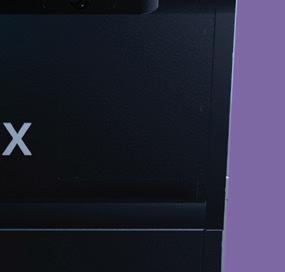








This spine-tingling slot game kicks off with a minimum bet of 80 credits, featuring a progressive jackpot and two exciting bonuses. Players will be captivated by the eerie candle symbols that, when collected, can lead to credit prizes reaching up to 10 times their total bet. Additionally, the base game also offers bonuses by activating the top bonus reels, adding an extra layer of excitement to the gameplay.

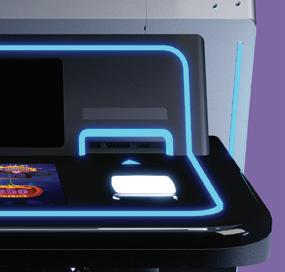








But the true scream-inducing moment arises with the Screaming Jackpot Feature, randomly triggered during the base game by populating the trees on the screen with more bats. When this spine-chilling feature activates, players will find themselves inside


the mansion, ascending a spooky staircase. During this thrilling adventure, multiplier wins await, offering players the chance to claim up to 60 times their total bet or even the coveted Grand Jackpot.
game and other new titles from Velvix, be sure to visit Booth 2416 at this year’s G2E Las Vegas. Don’t miss your chance to add a touch of Halloween magic to your casino floor!

that can be triggered from the mansion’s eerie graveyard, players by simply landing a single candle games. Keep in mind that the free

Adding to the suspense, ‘Screaming Mansion’ introduces a Free Games Feature that can be triggered from the base game. Transported to the mansion’s eerie graveyard, players can unlock substantial credit prizes and multiple bonuses with each spin by simply landing a single candle symbol on the reels during the free games. Keep in mind that the free games feature can be retriggered, with a tantalizingly low hit rate of just three!


Beyond its heart-pounding laden with hidden surprises, enhancing effects, players will be immersed in a

















Beyond its heart-pounding gameplay, ‘Screaming Mansion’ is laden with hidden surprises, enhancing the overall gaming experience. With spine-tingling music and sound effects, players will be immersed in a Halloween adventure that promises excitement year-round.
For a closer look at this hair-raising
98 GAMINGAMERICA GAMING AMERICA | PRODUCT REVIEWS
"WITH SPINE-TINGLING MUSIC AND SOUND EFFECTS, PLAYERS WILL BE IMMERSED IN A HALLOWEEN ADVENTURE THAT PROMISES EXCITEMENT YEAR-ROUND."








